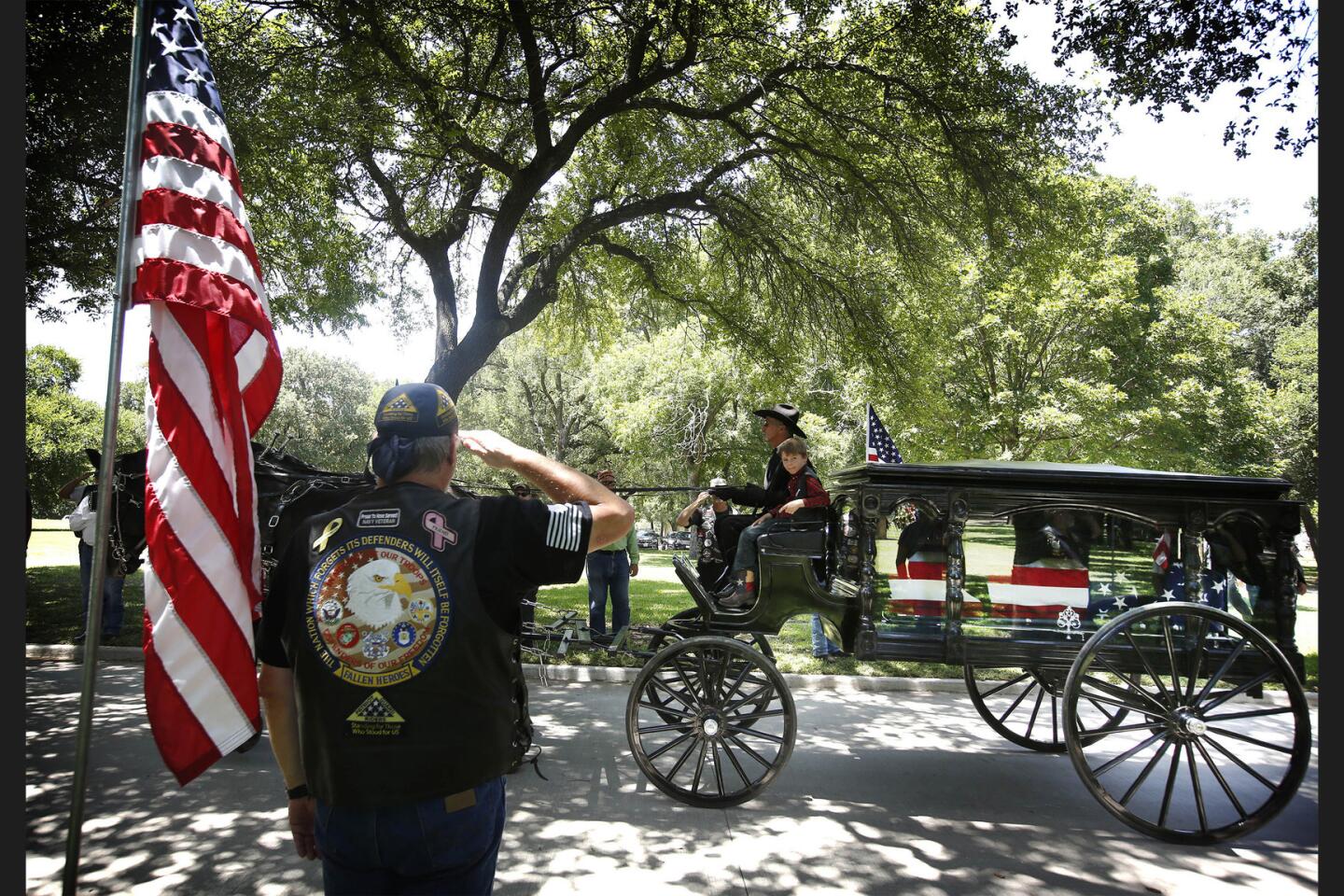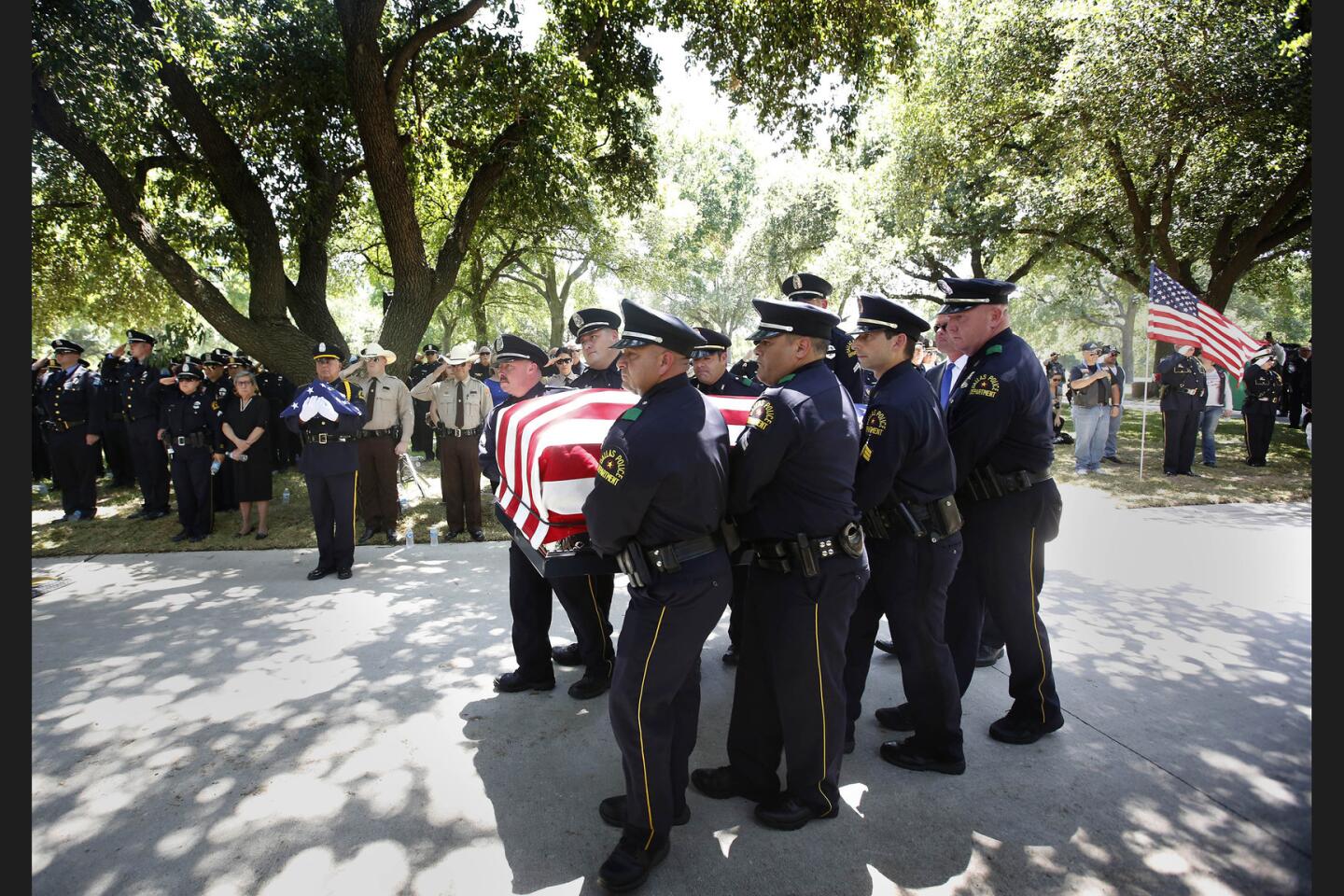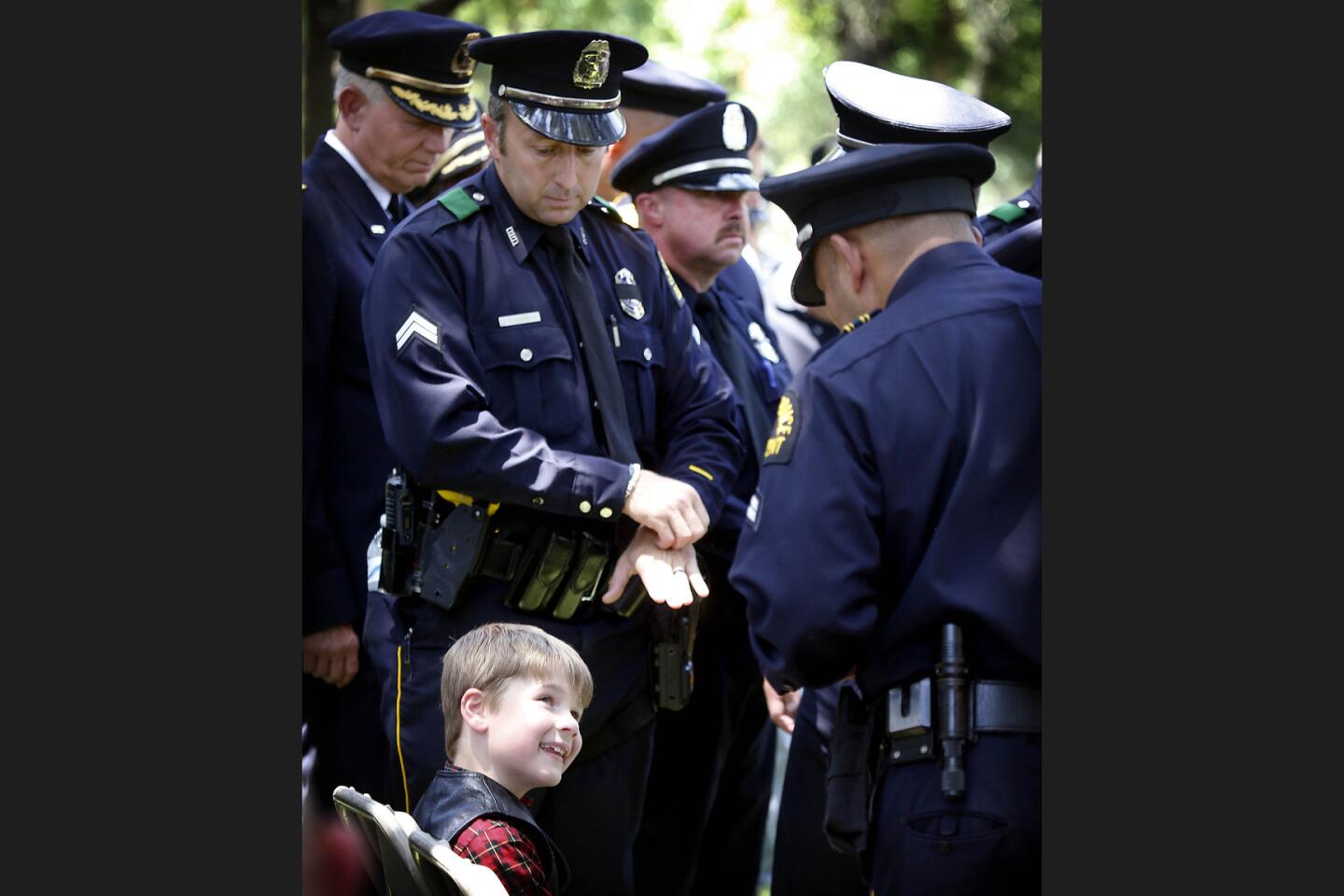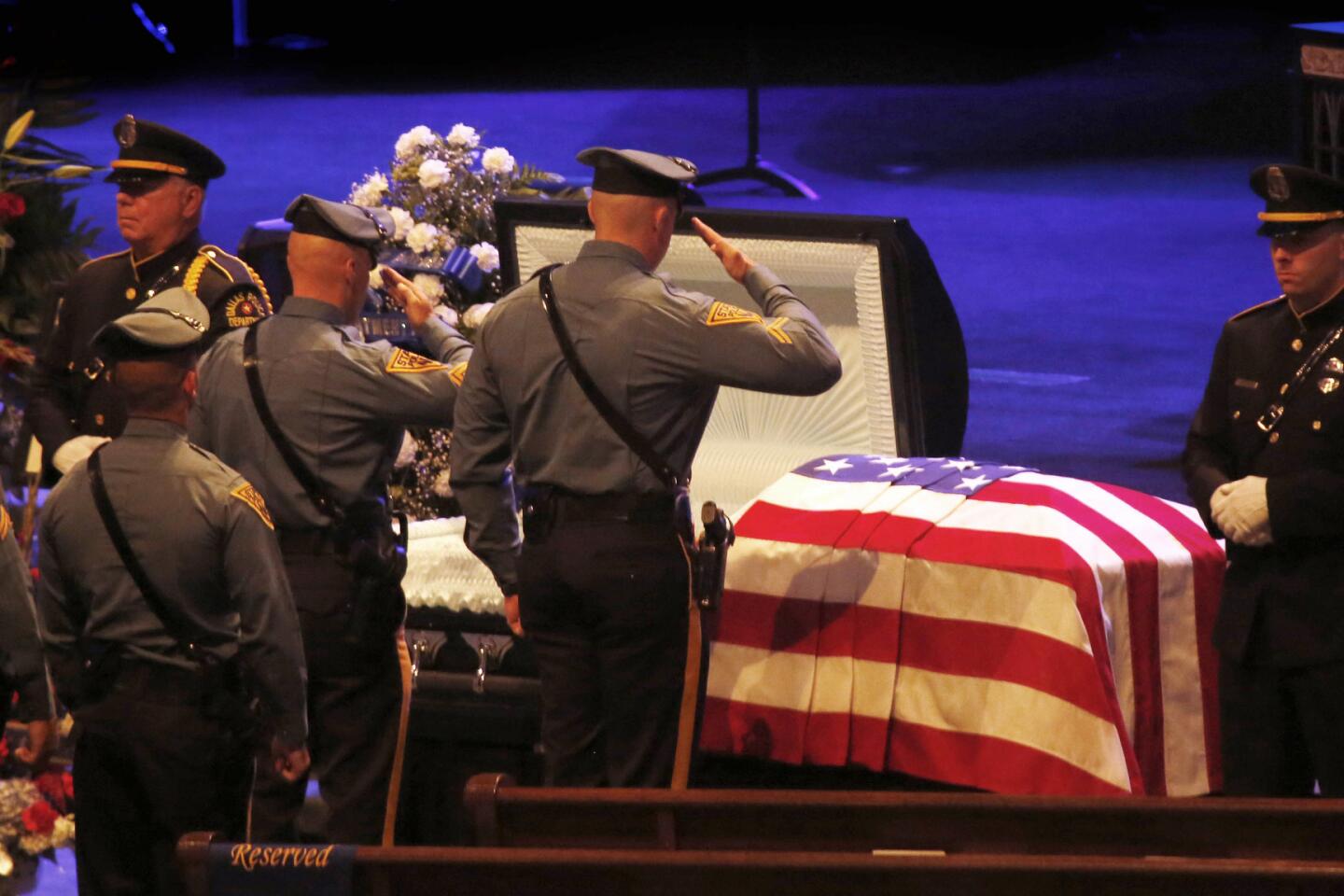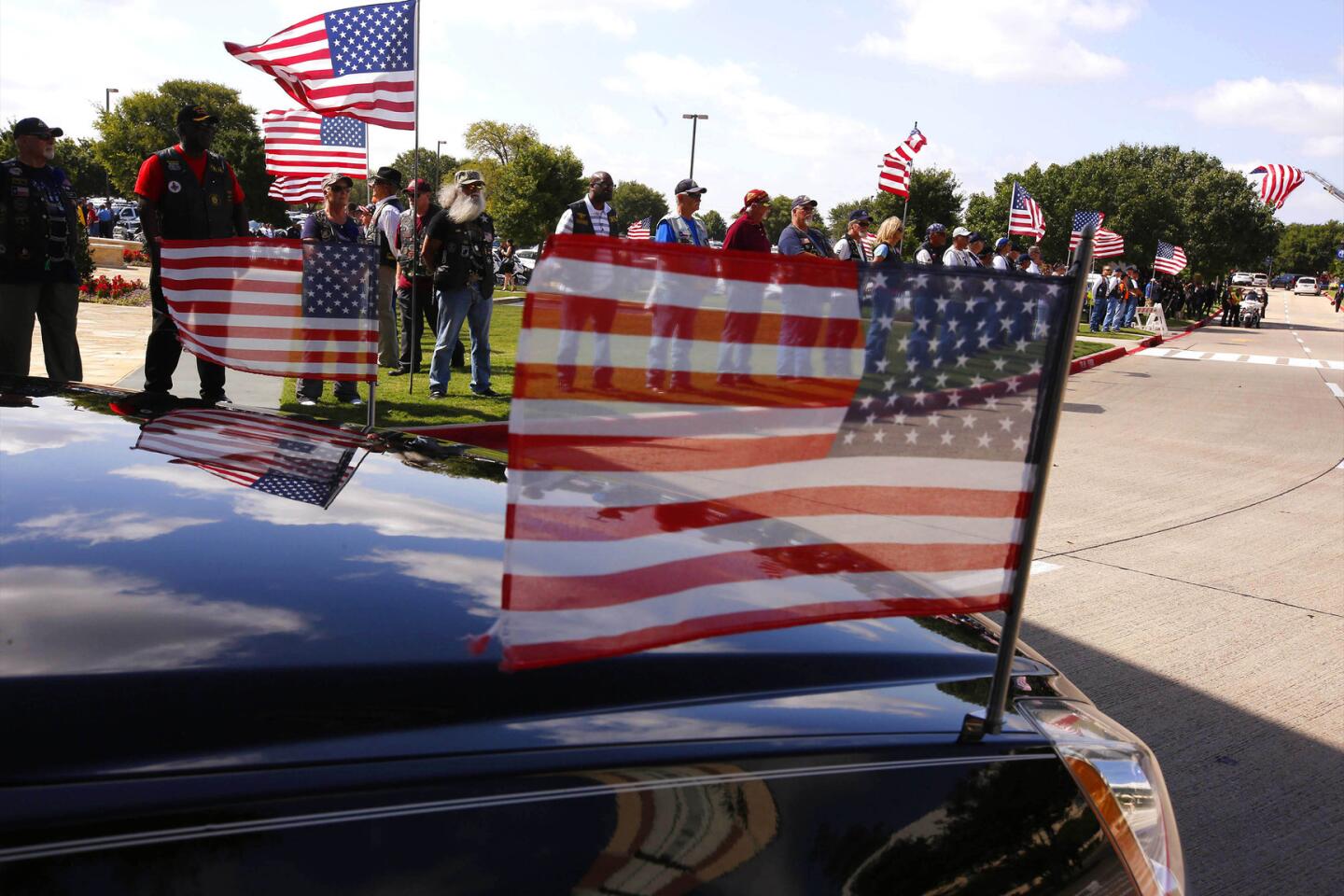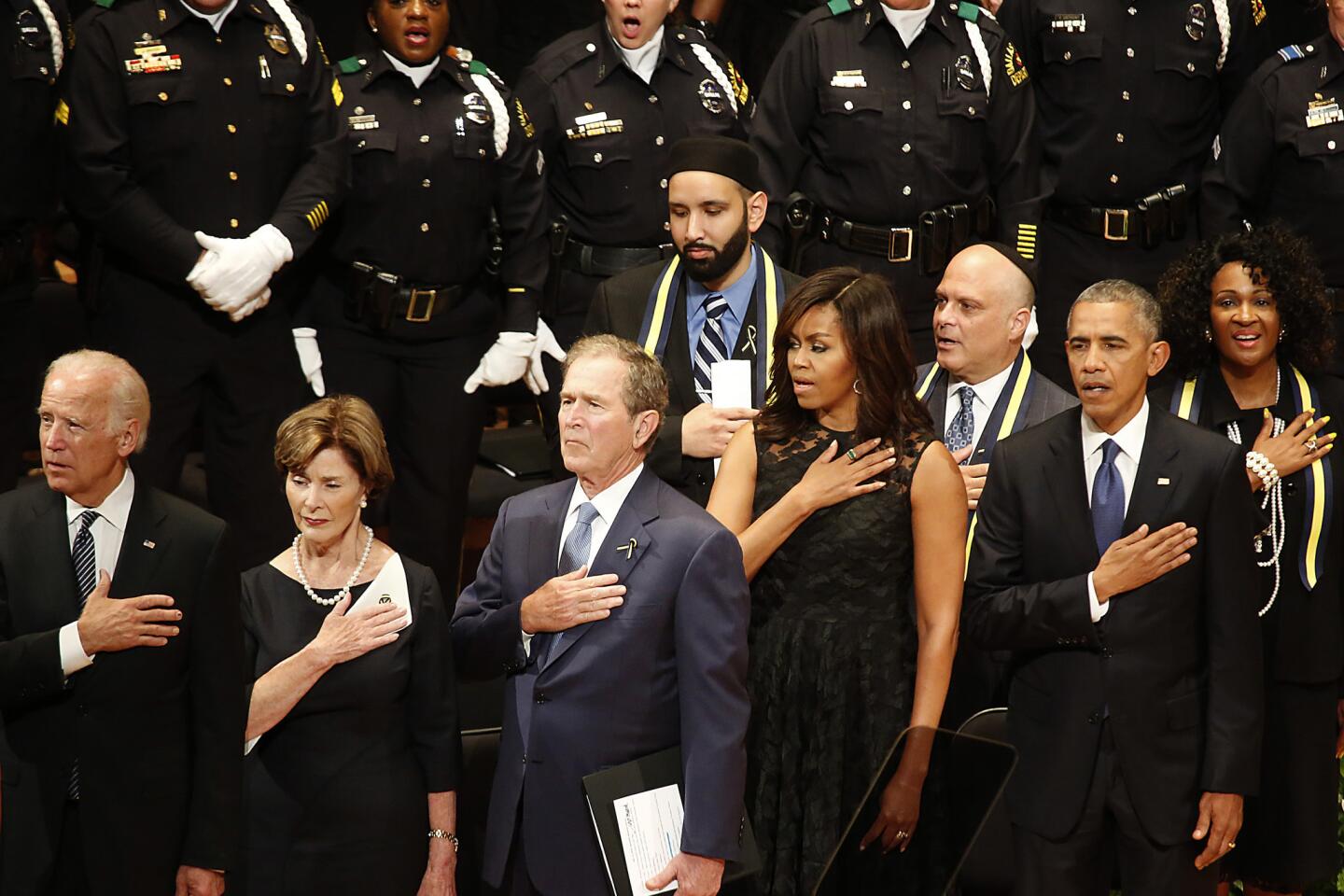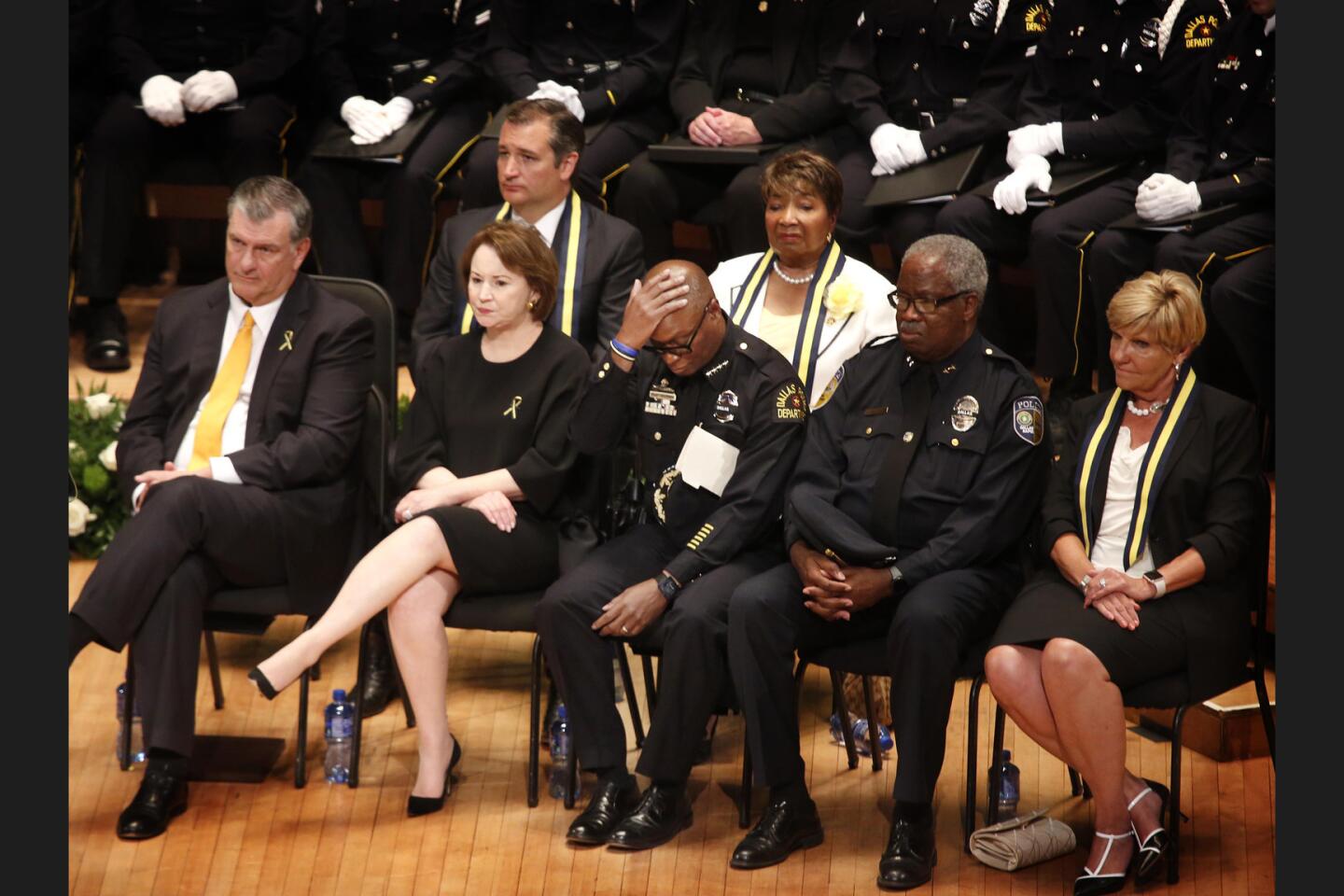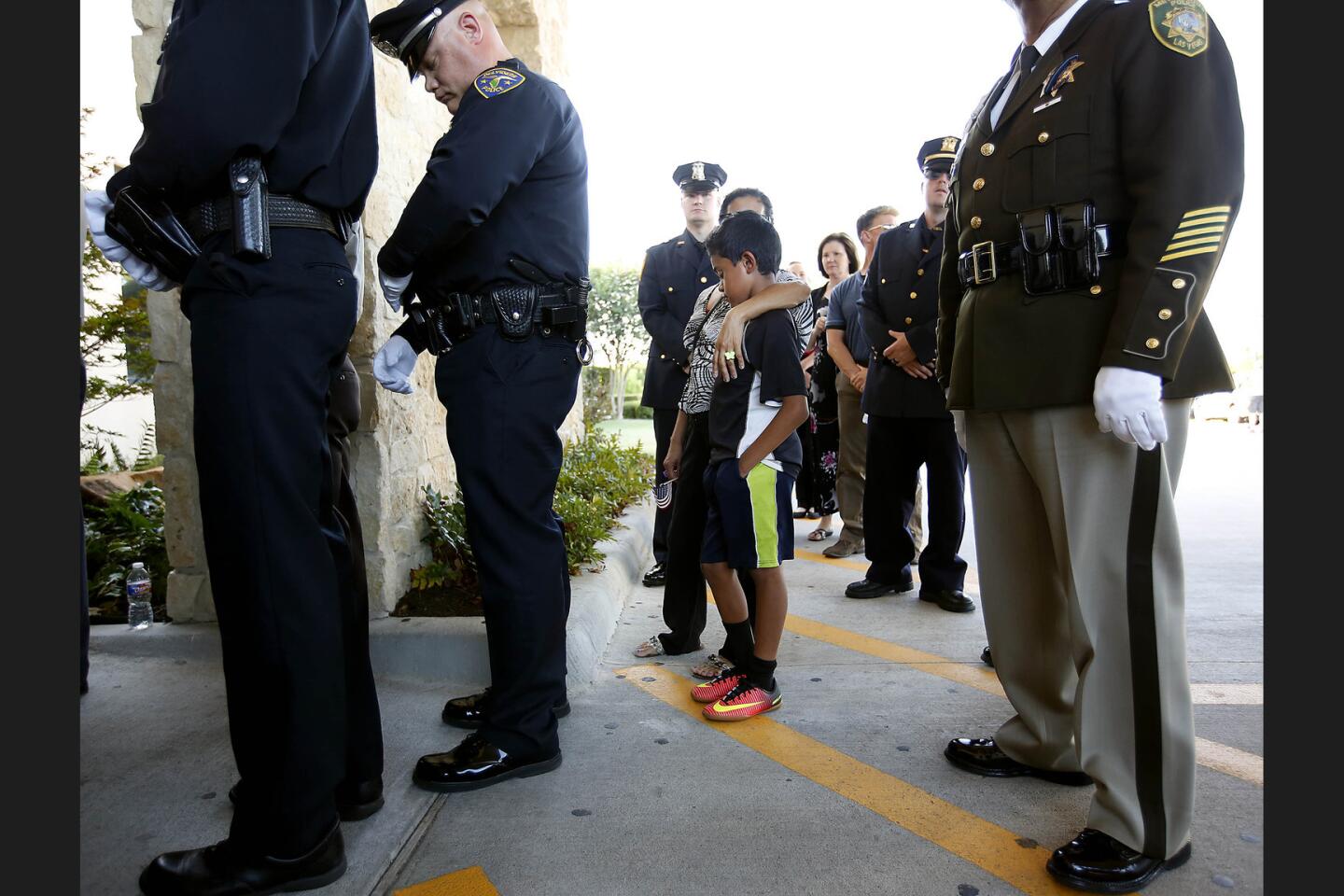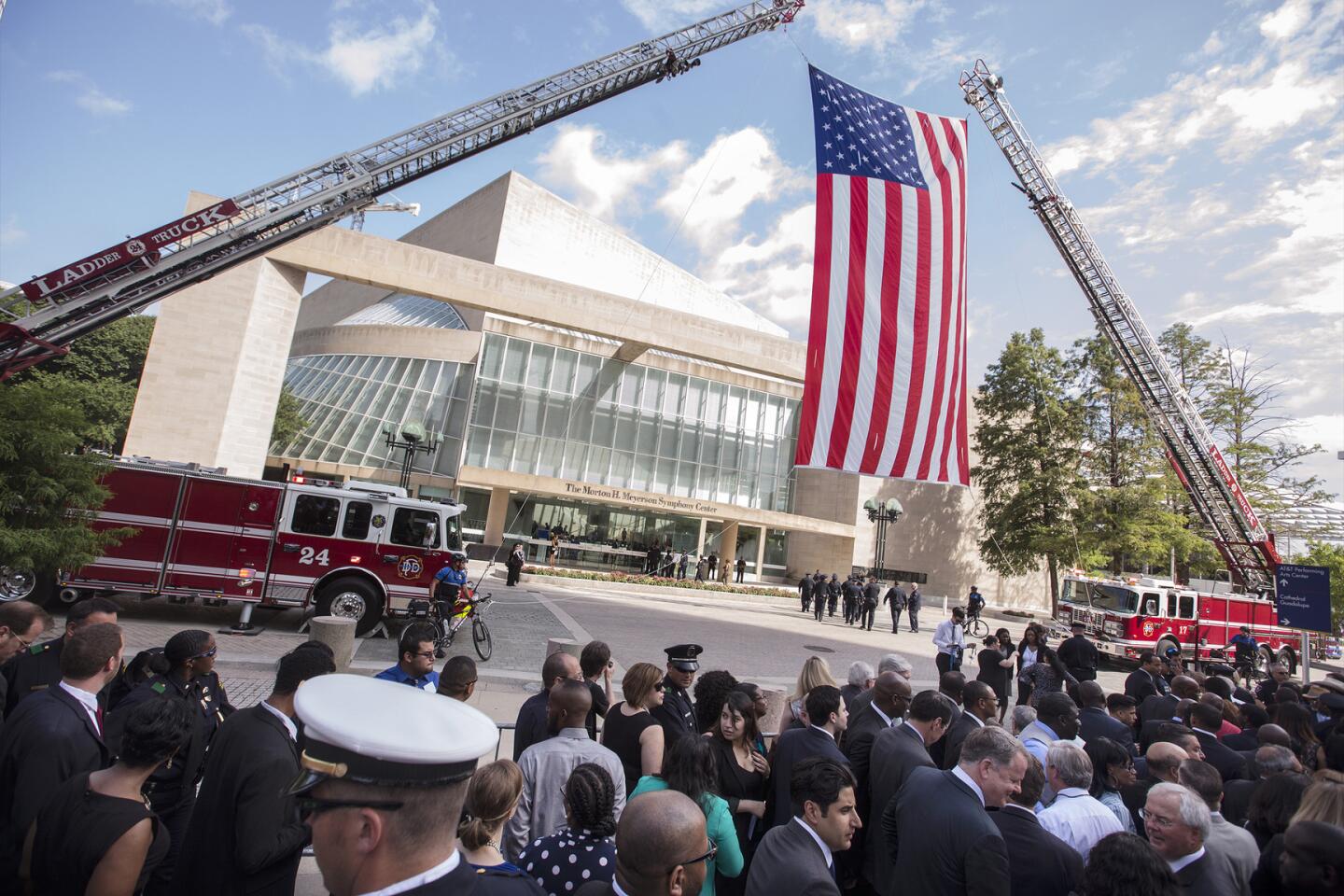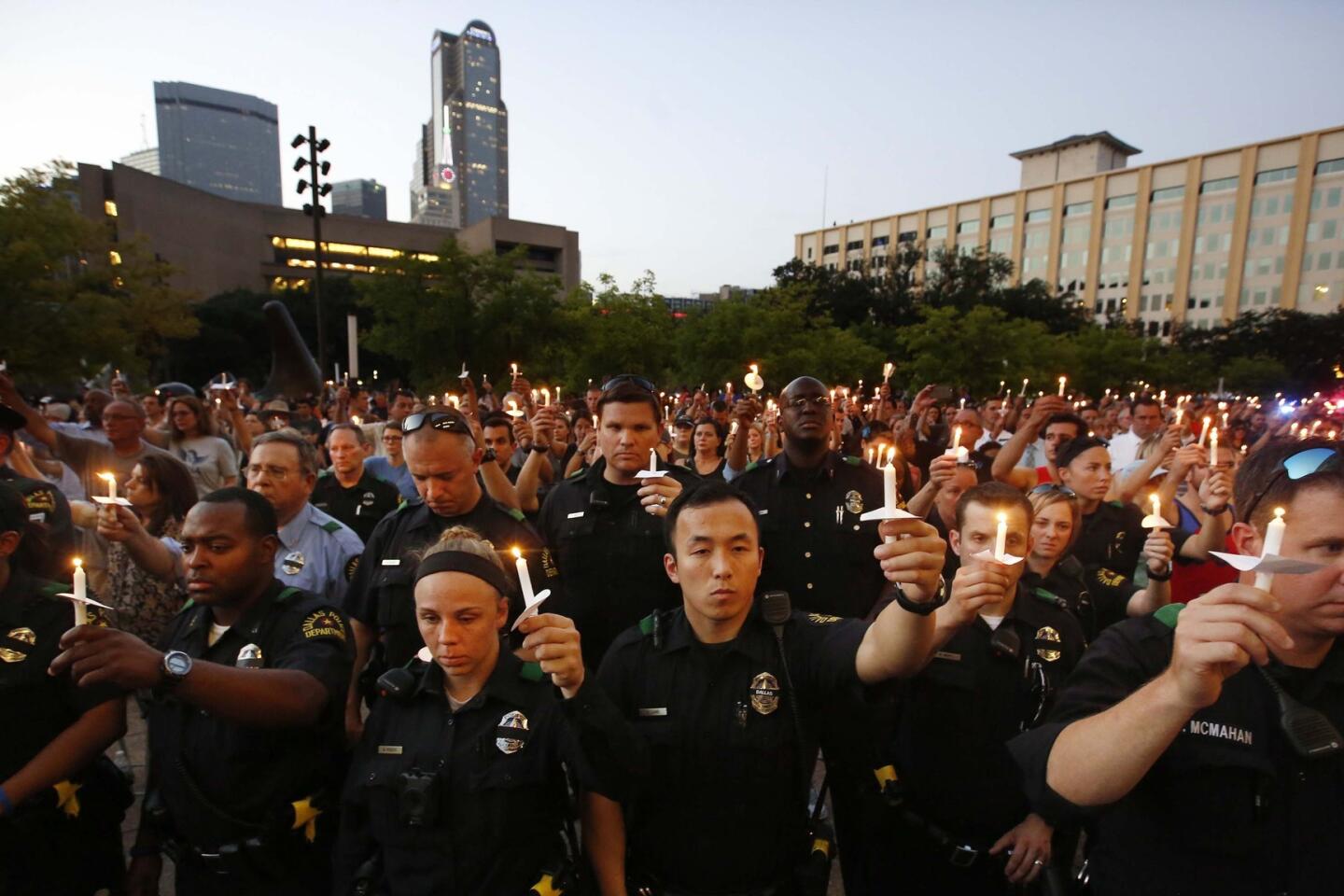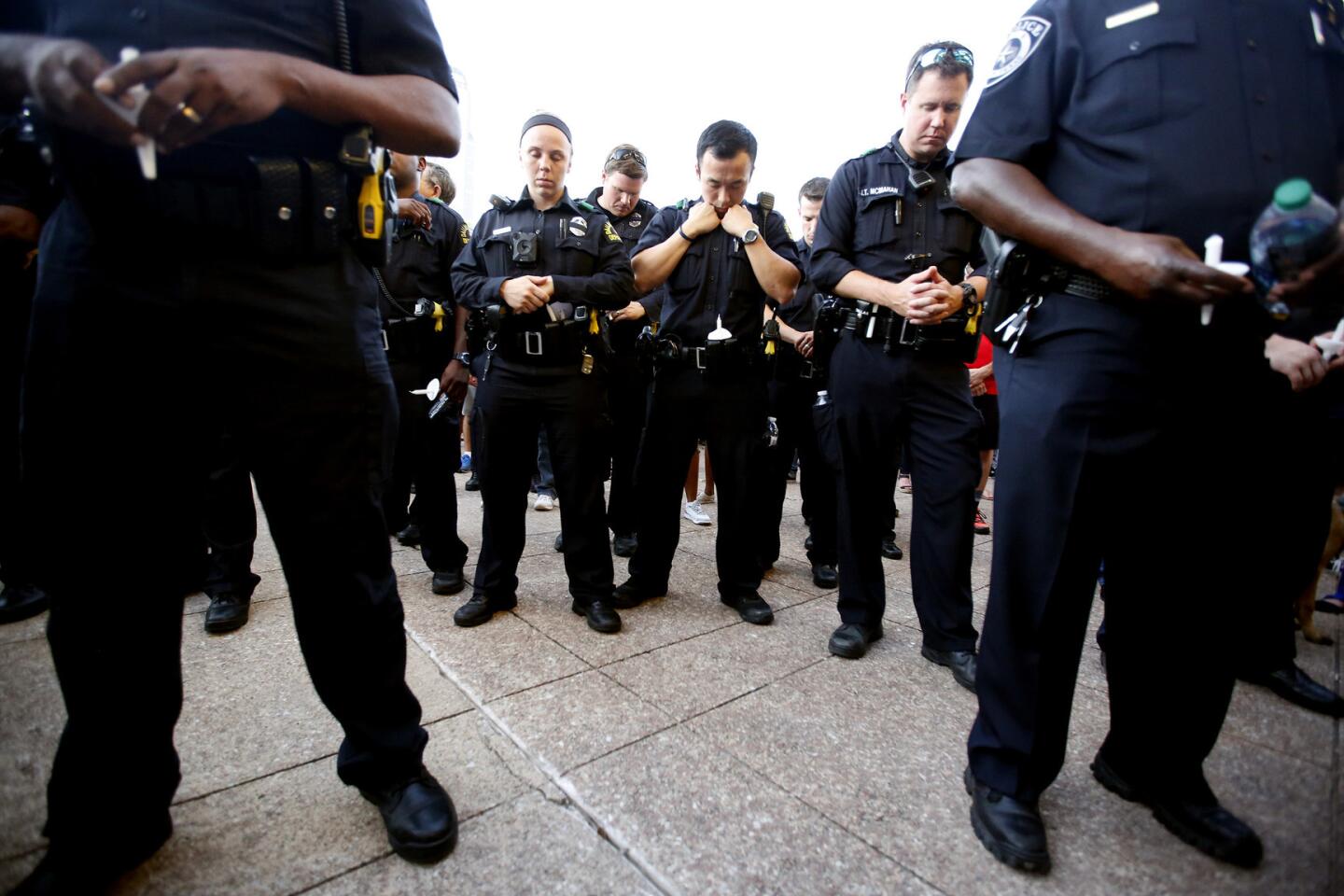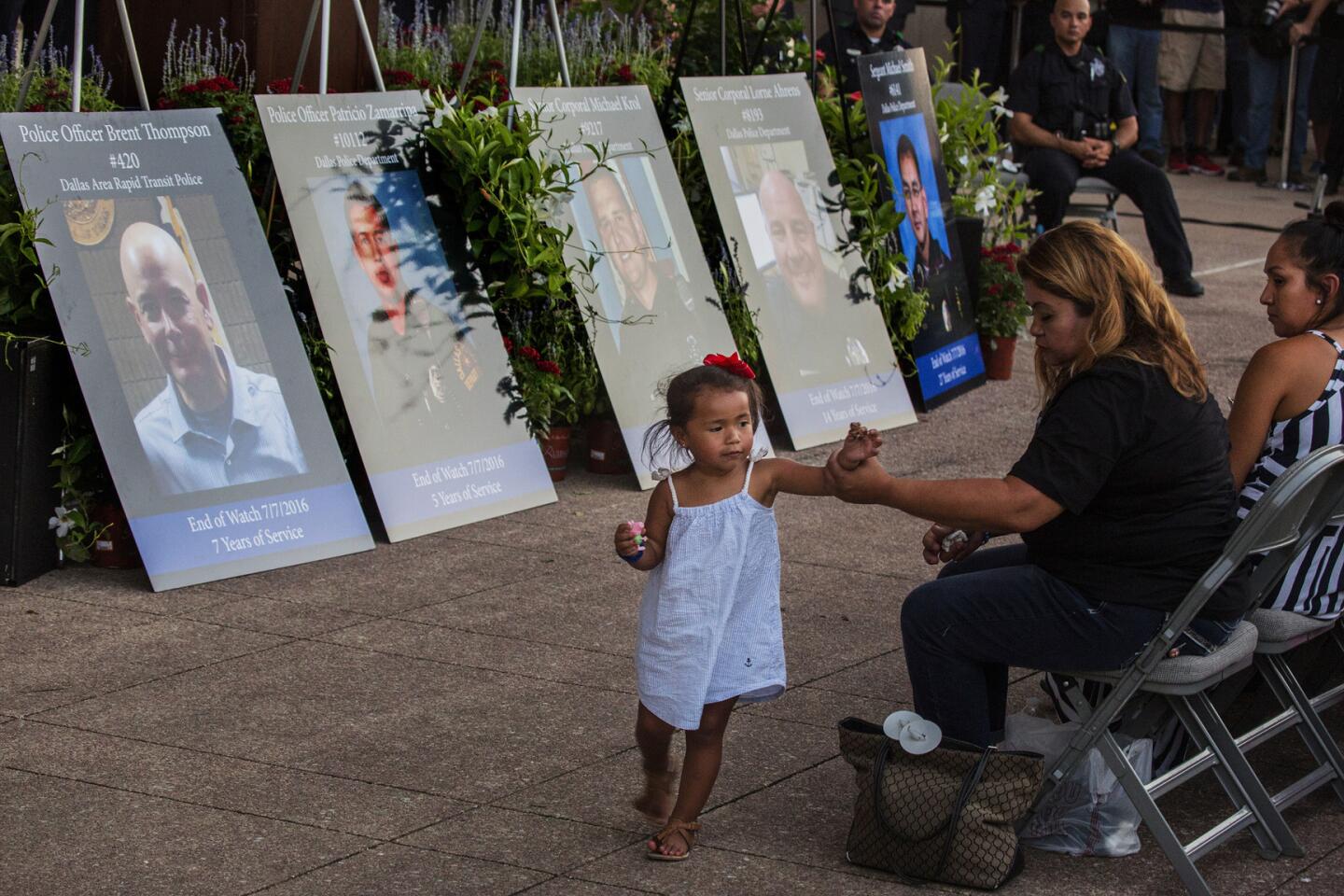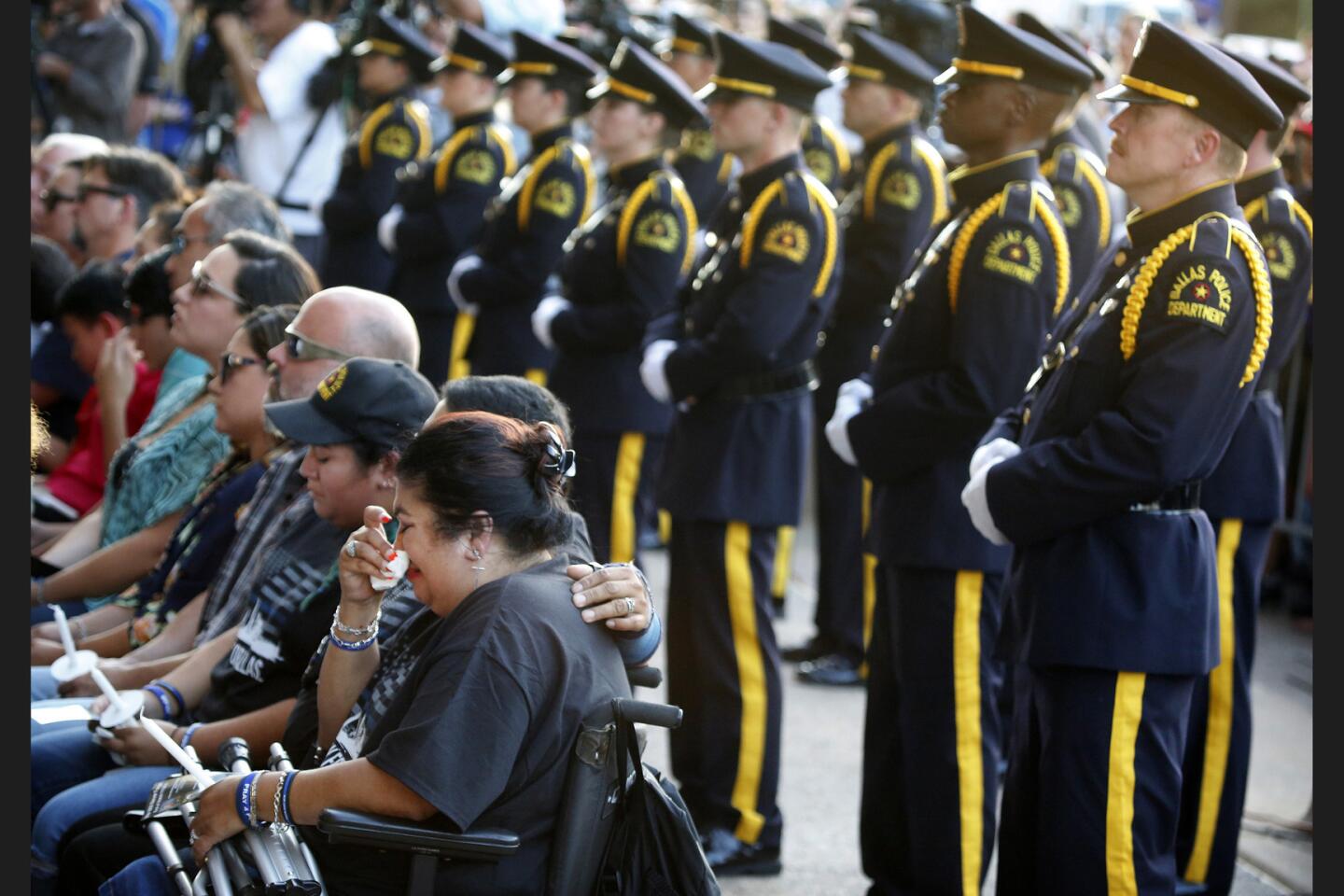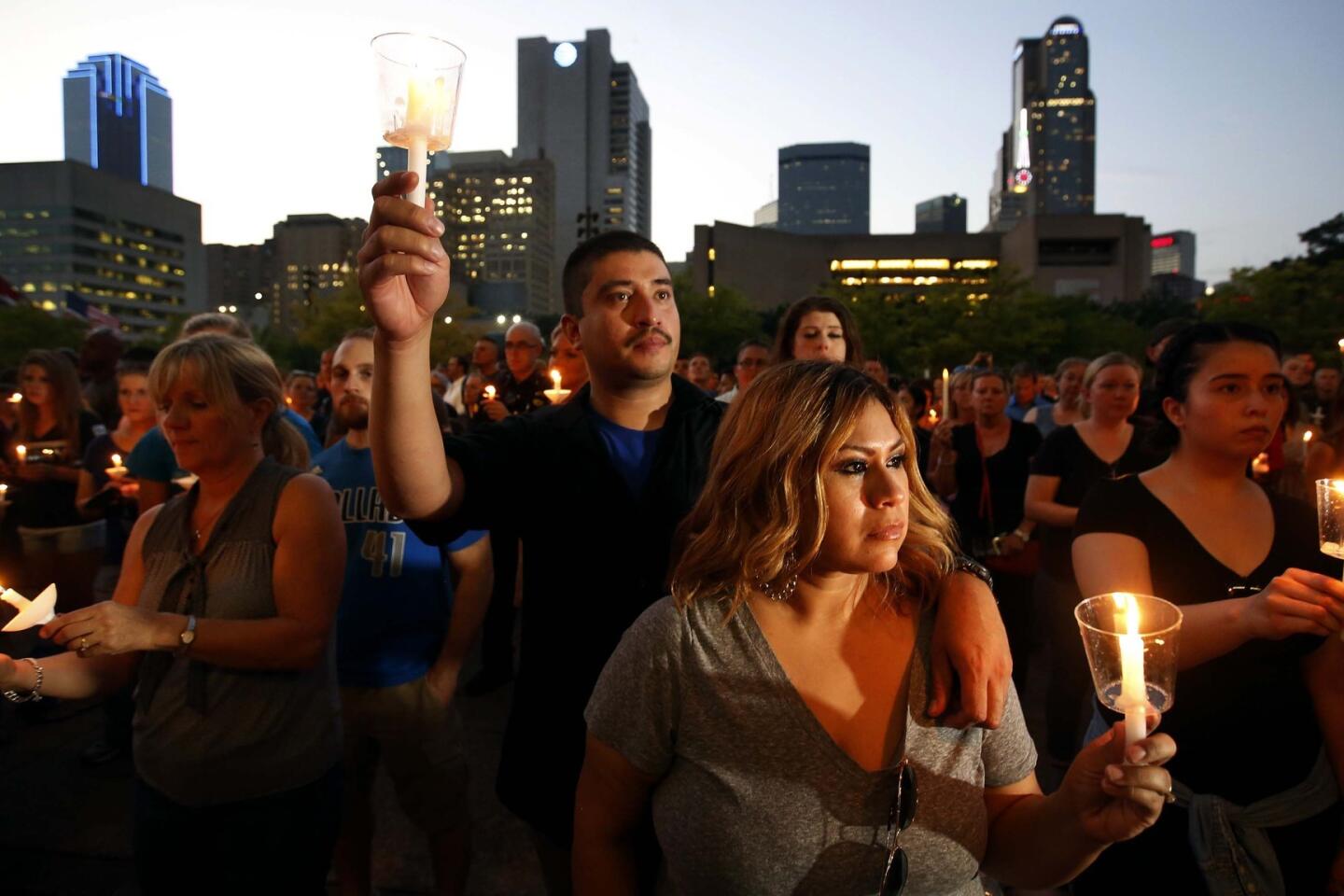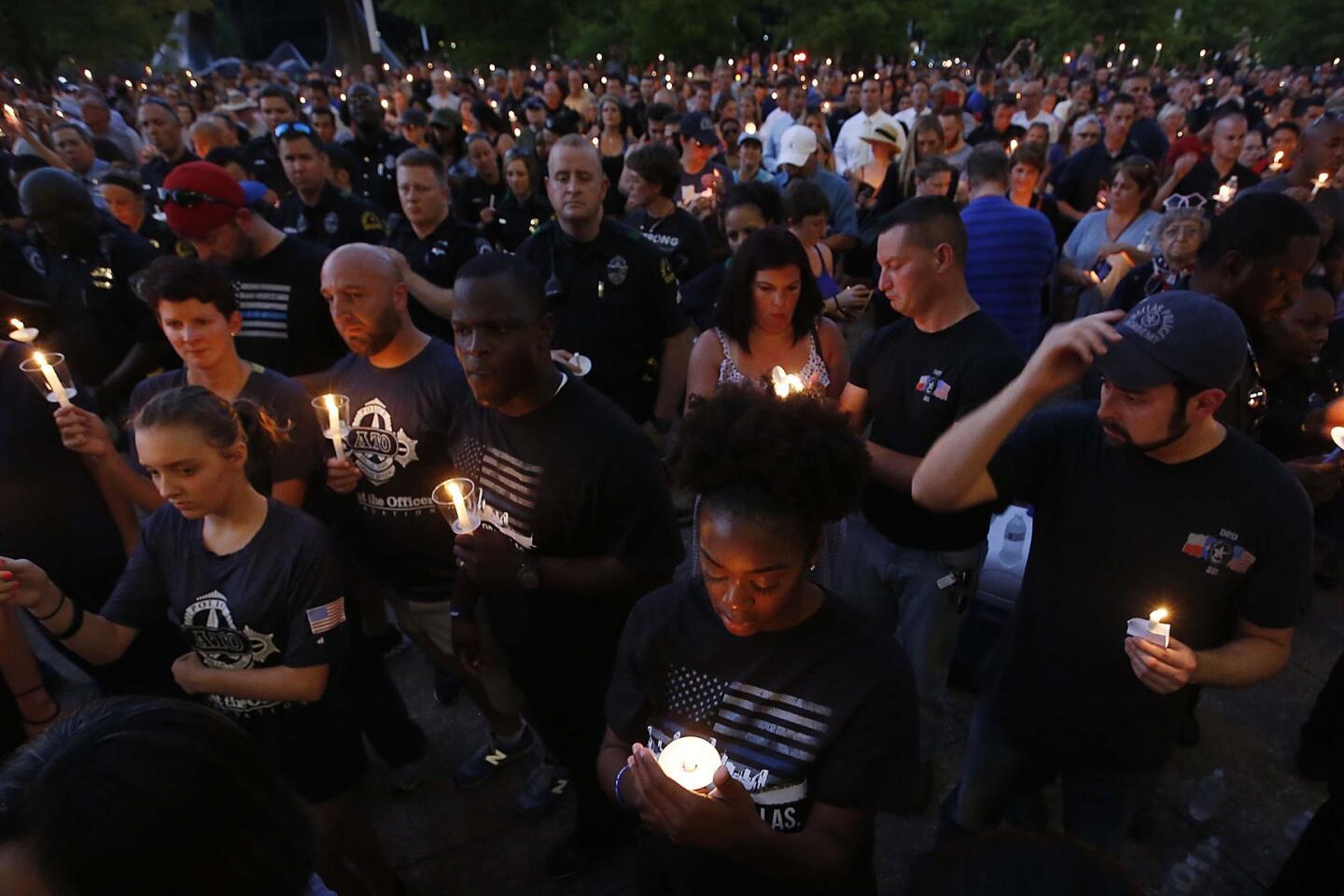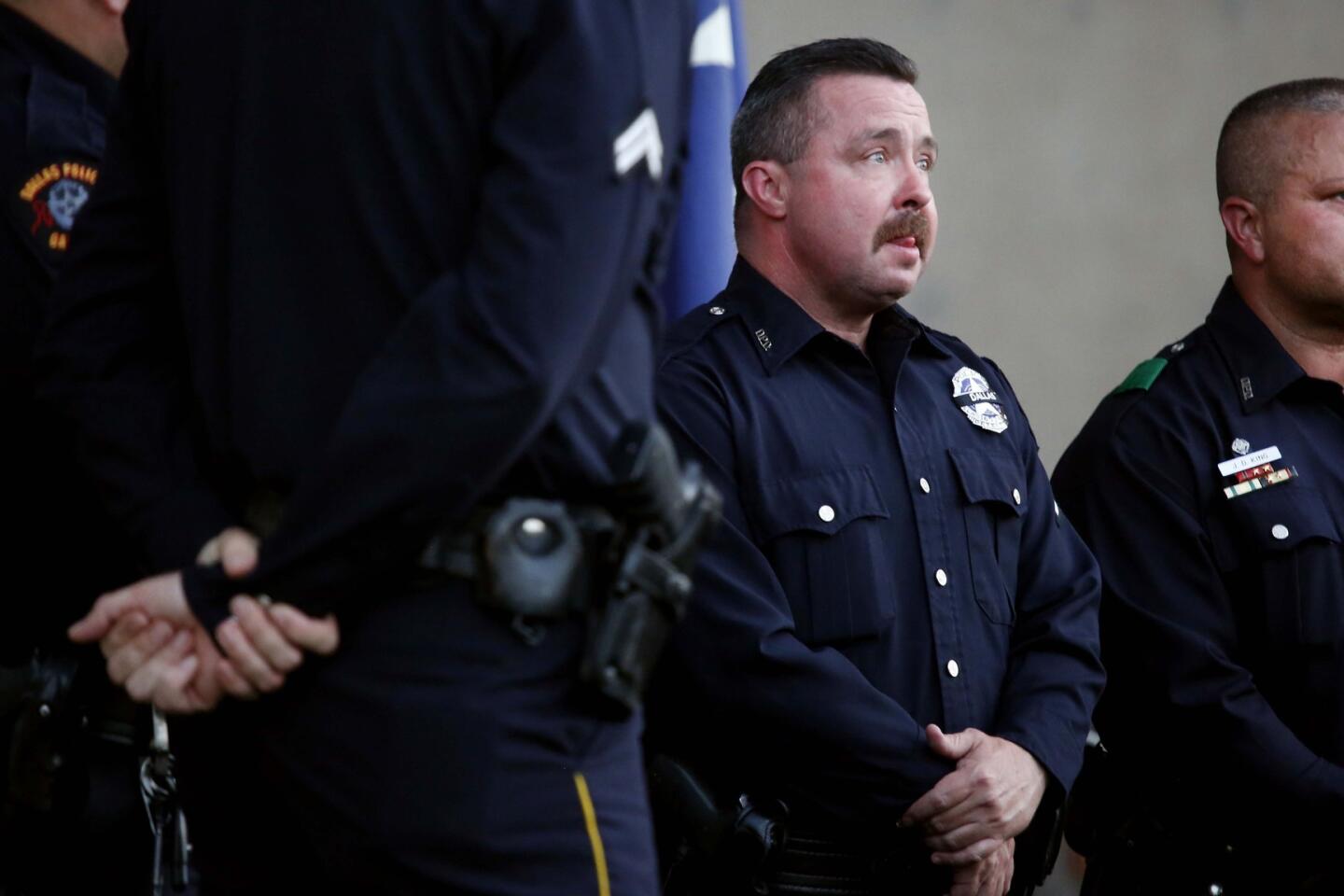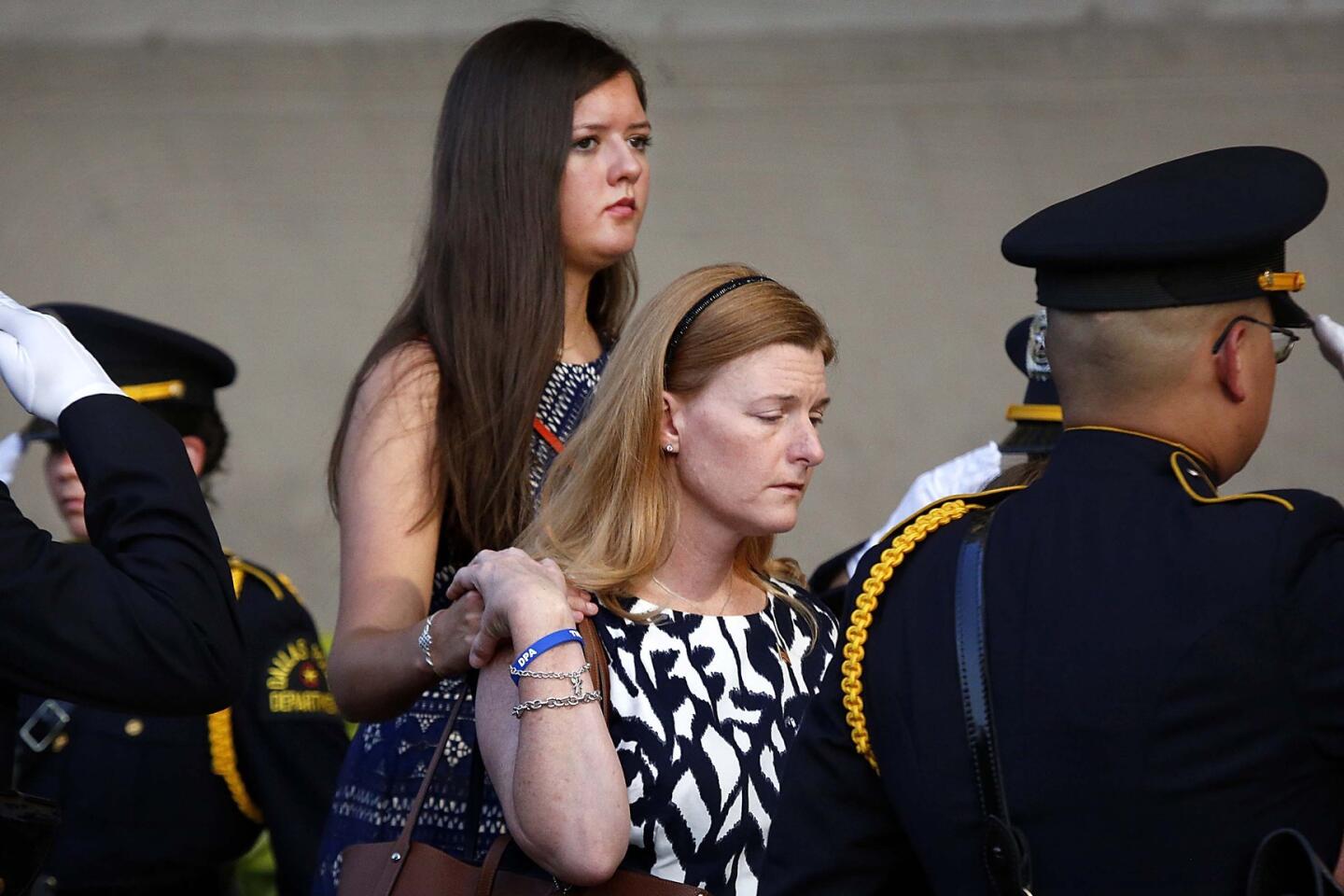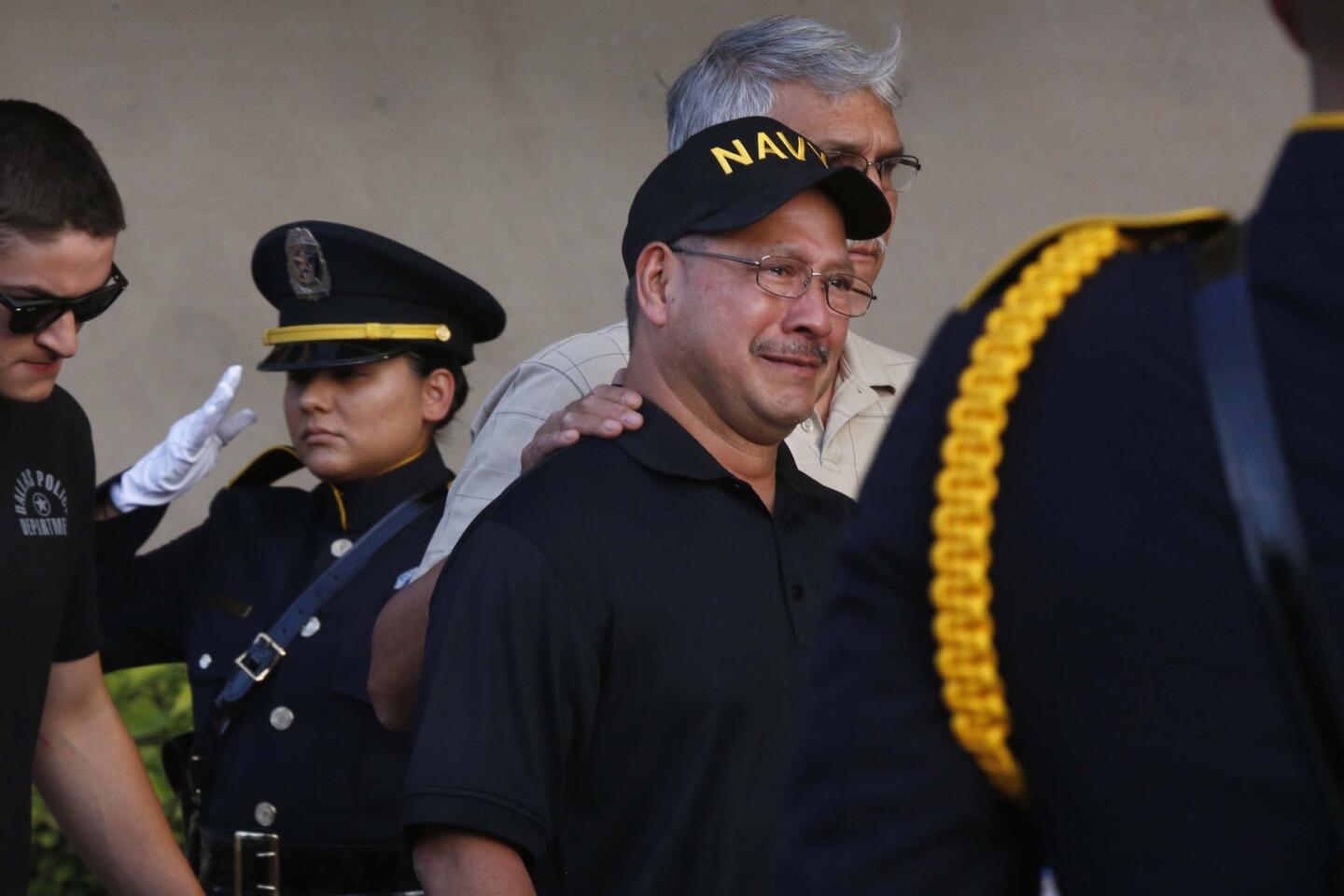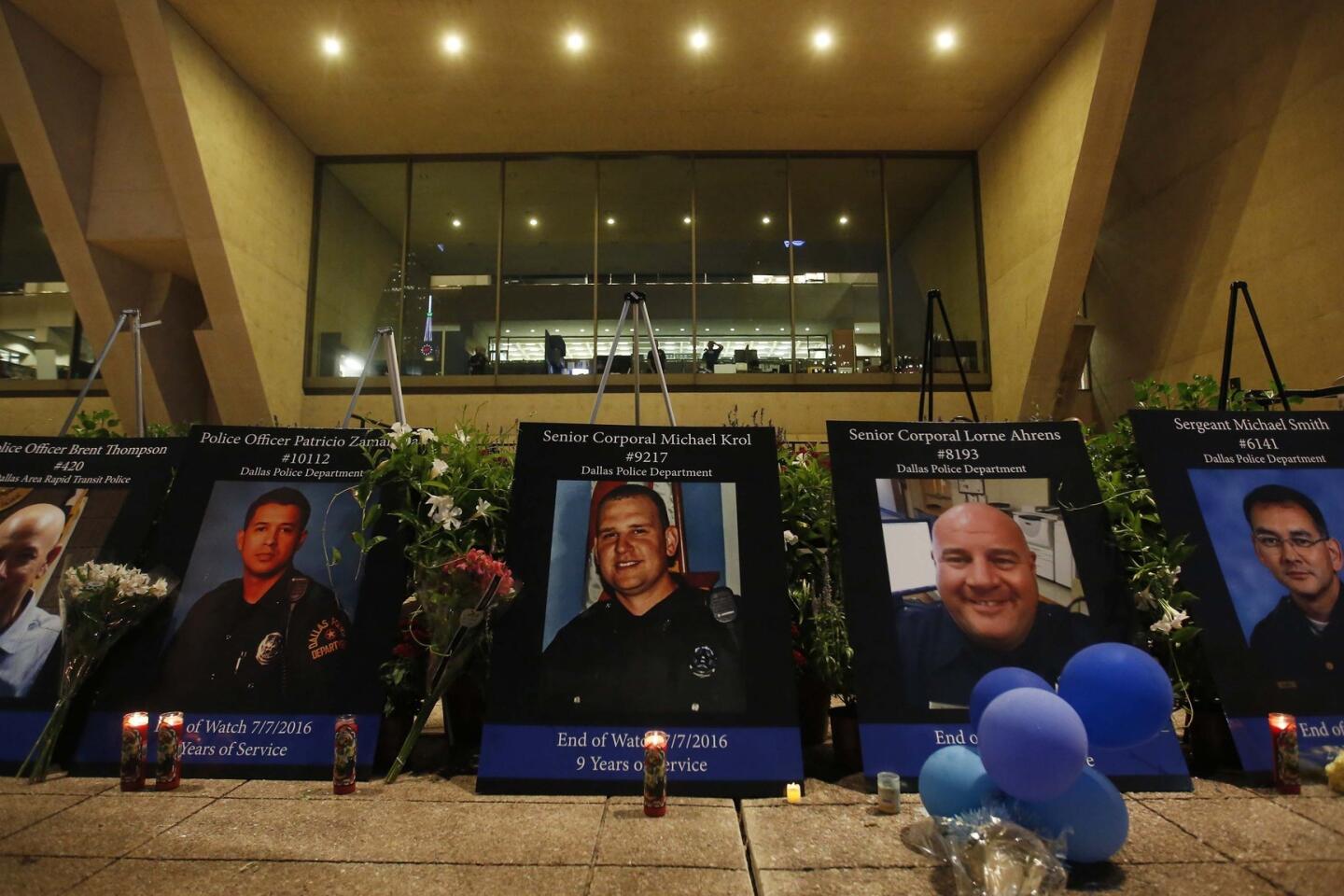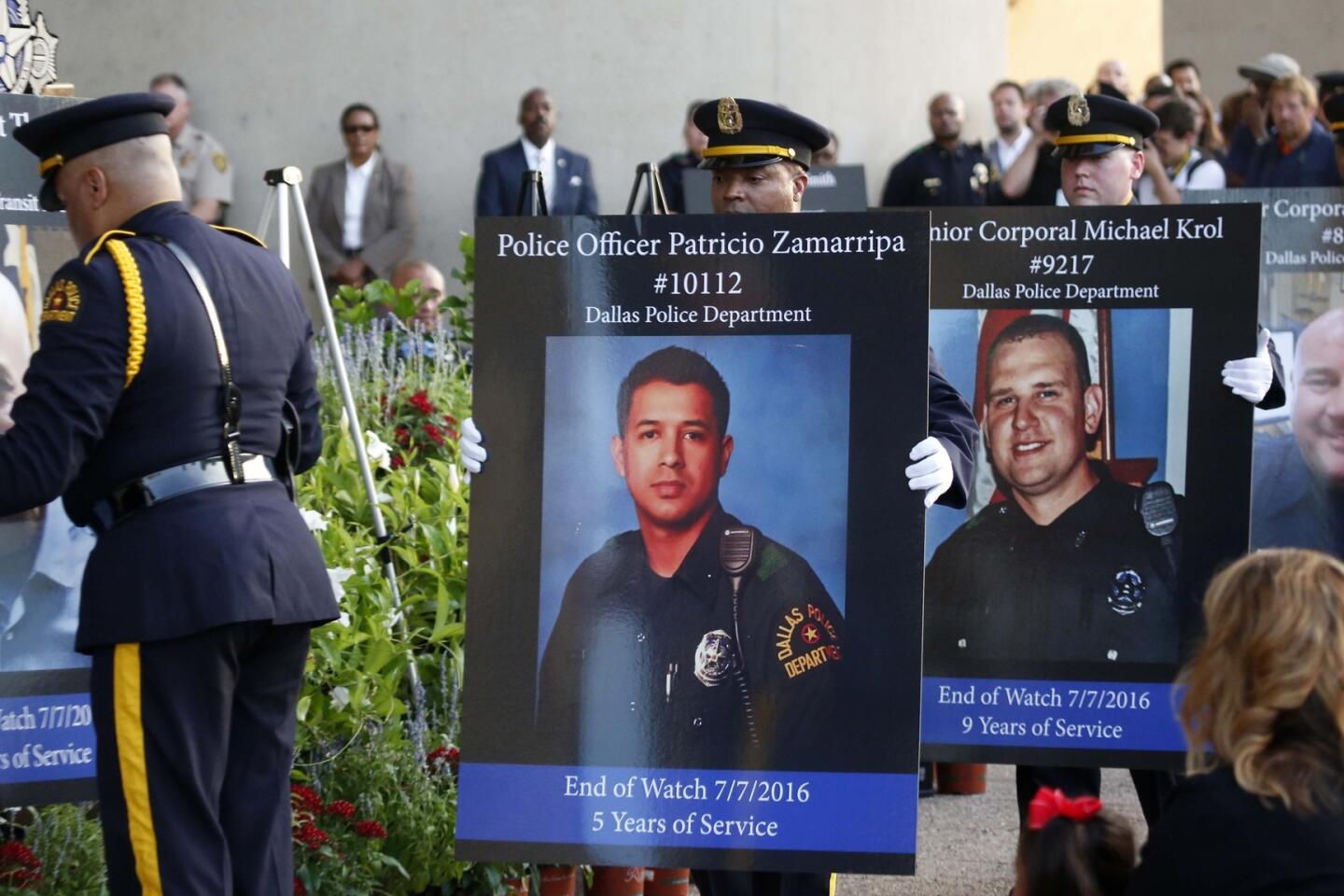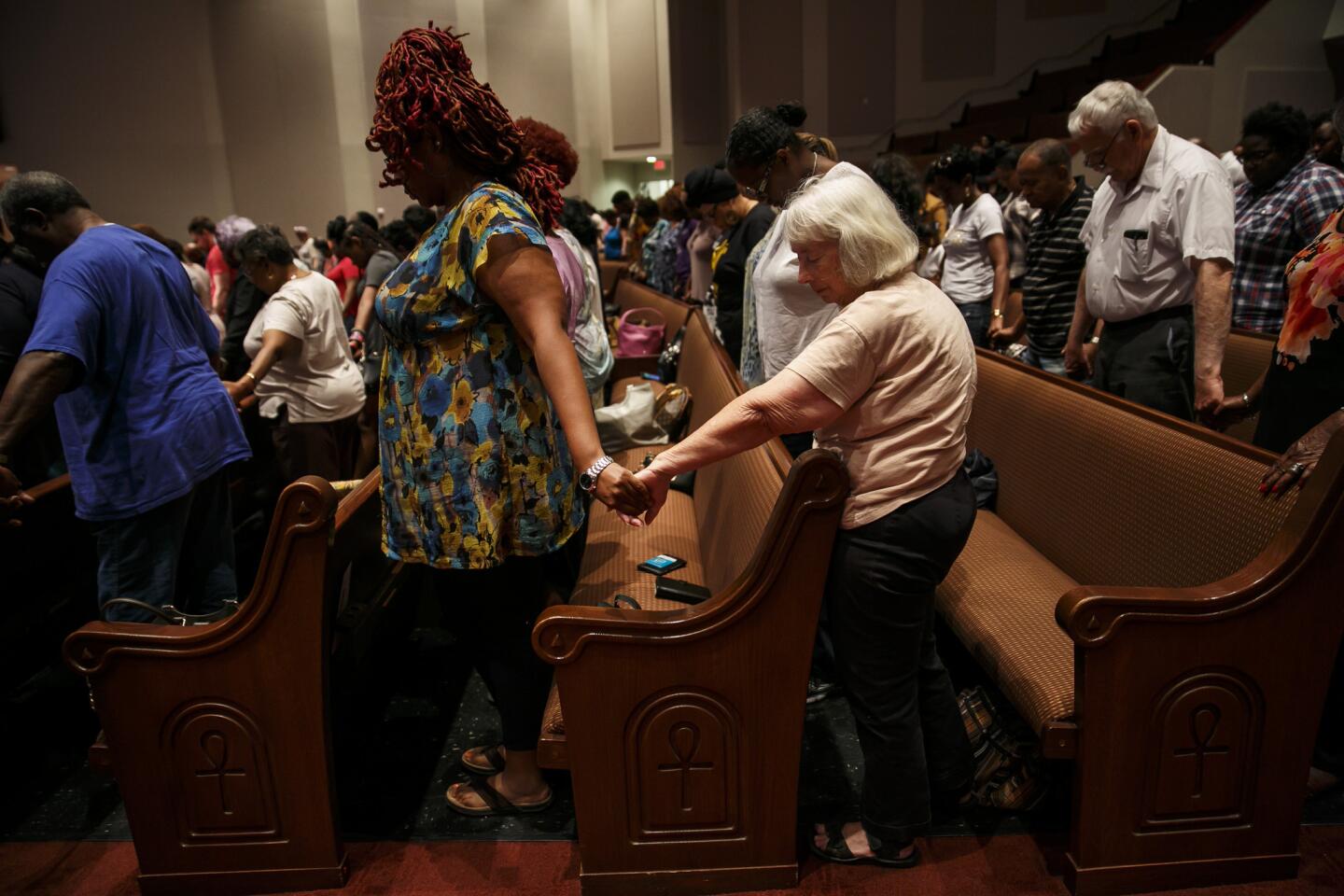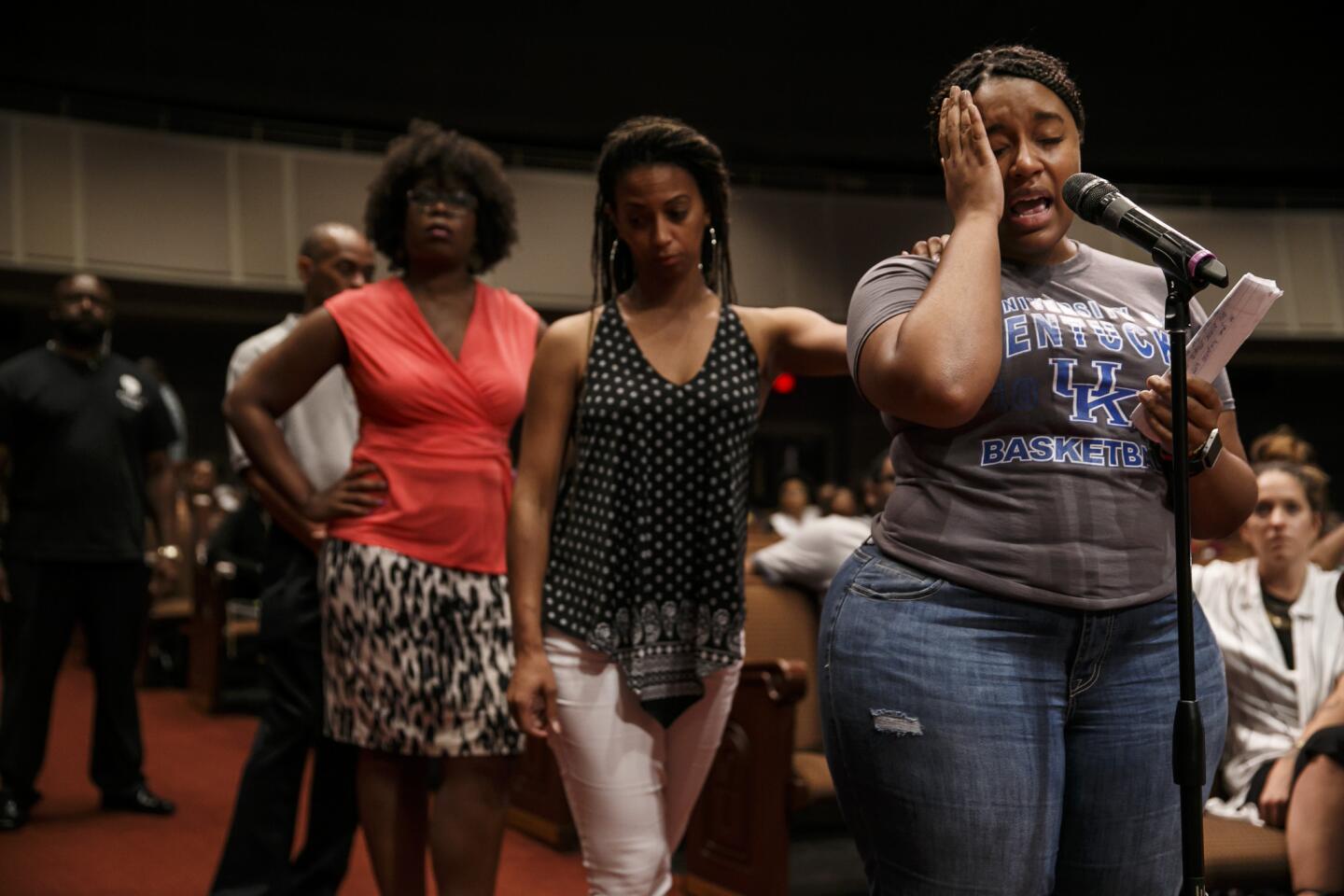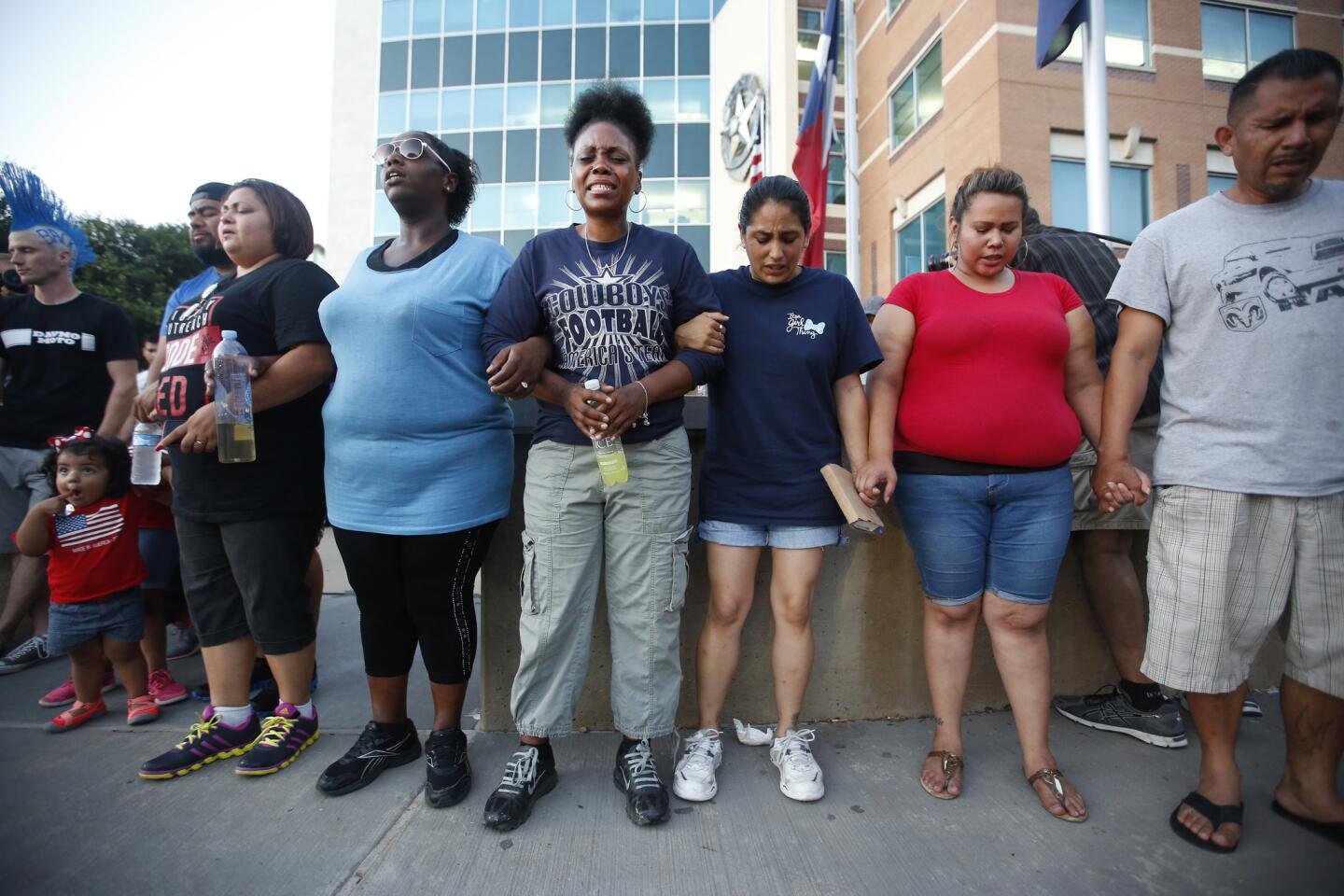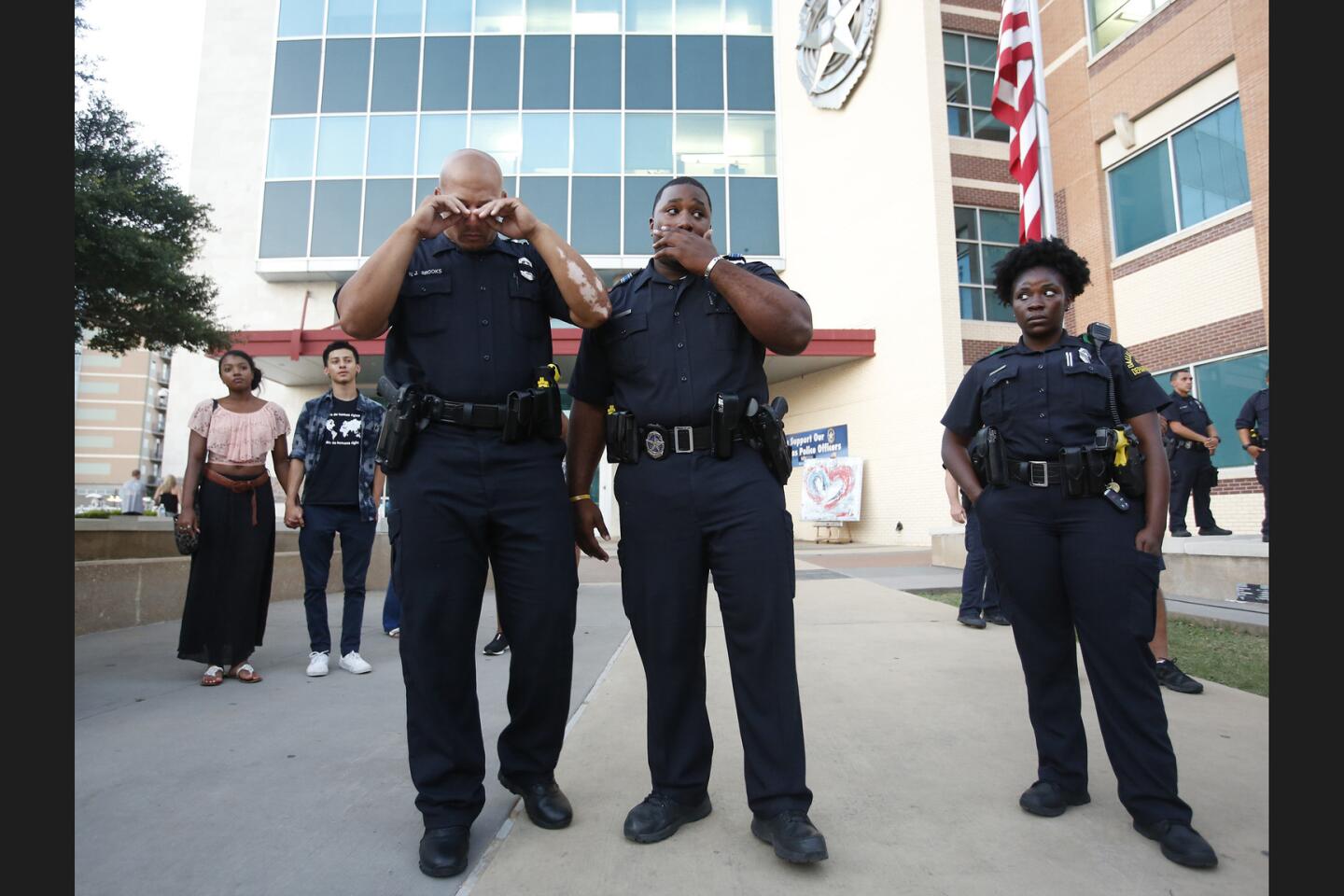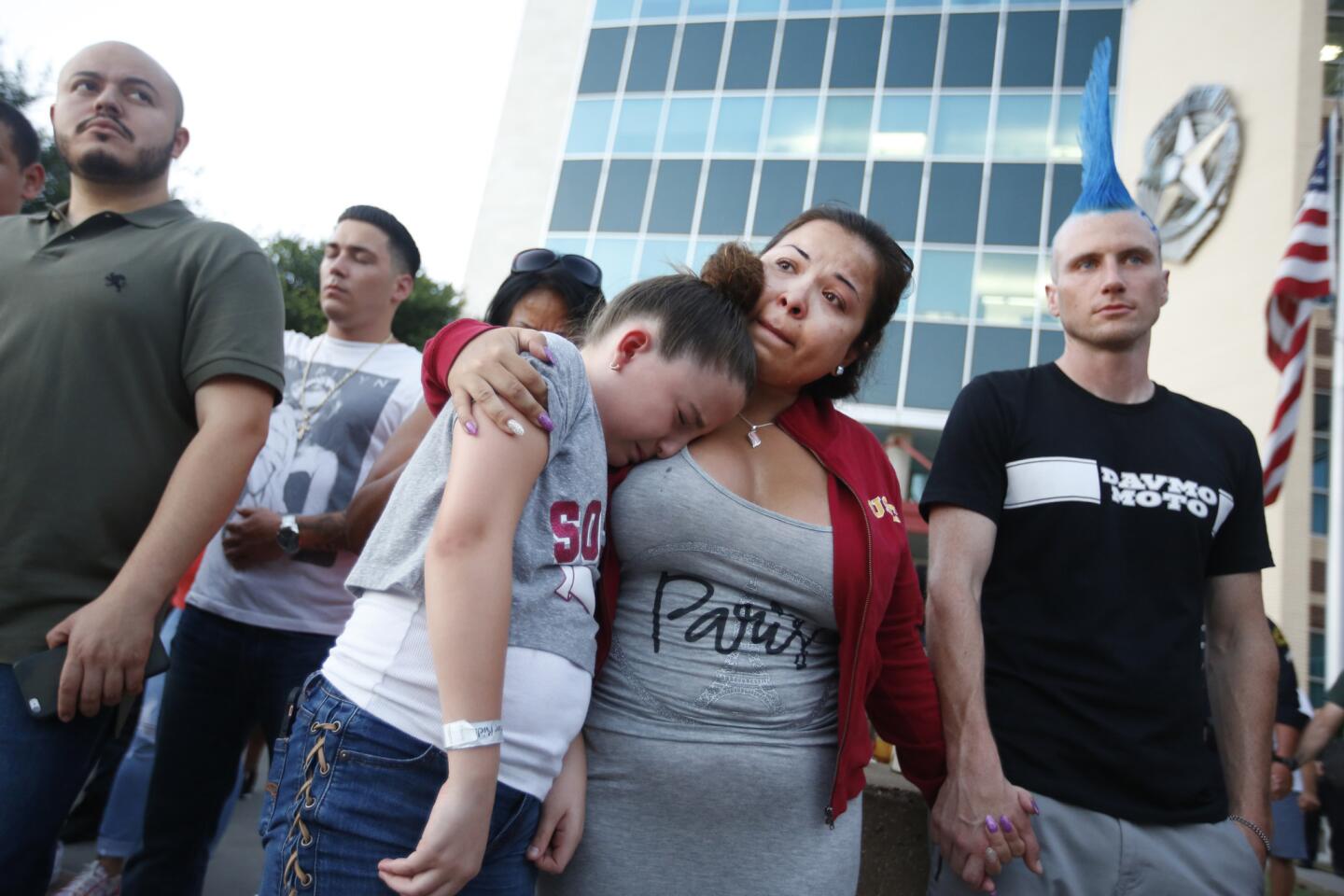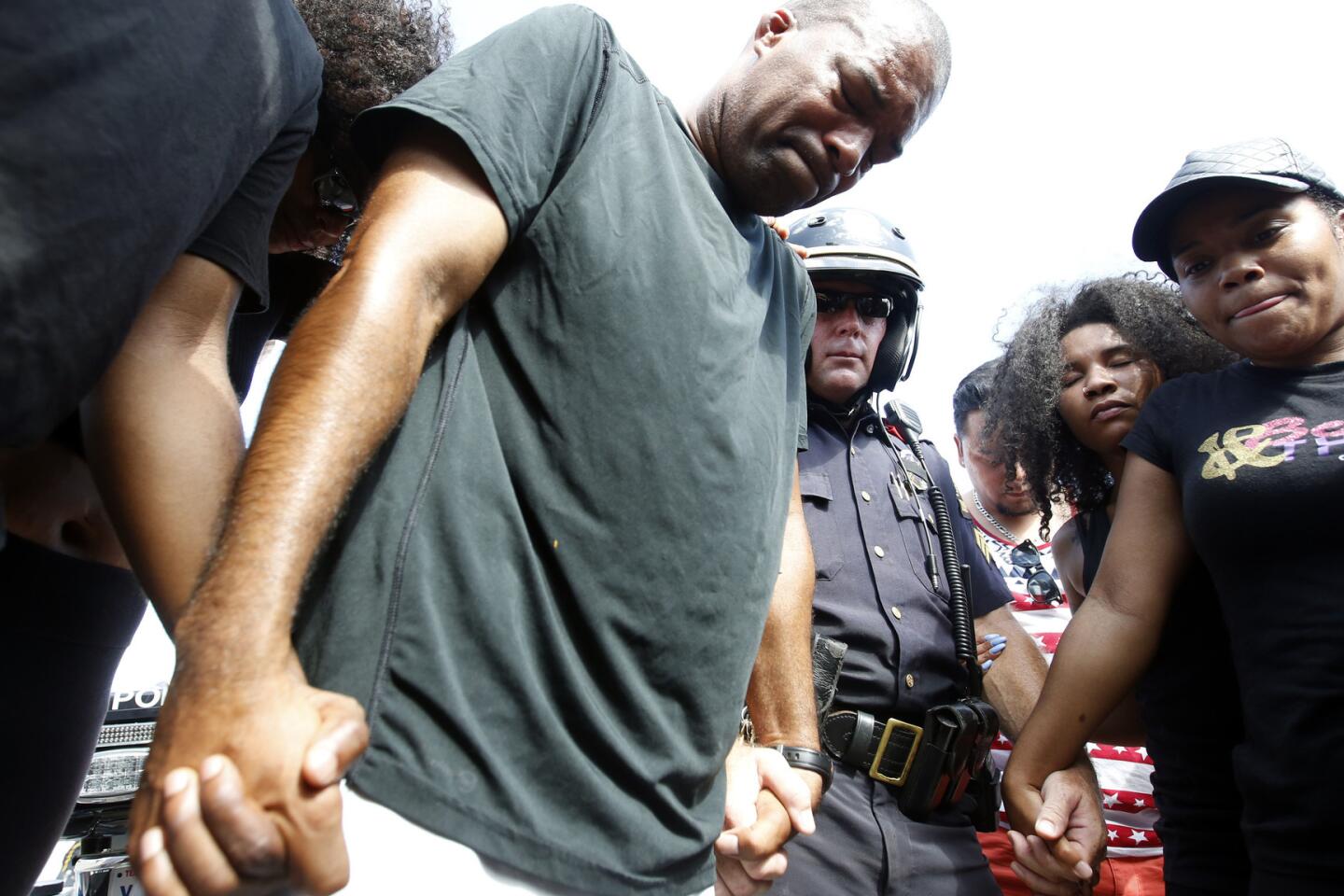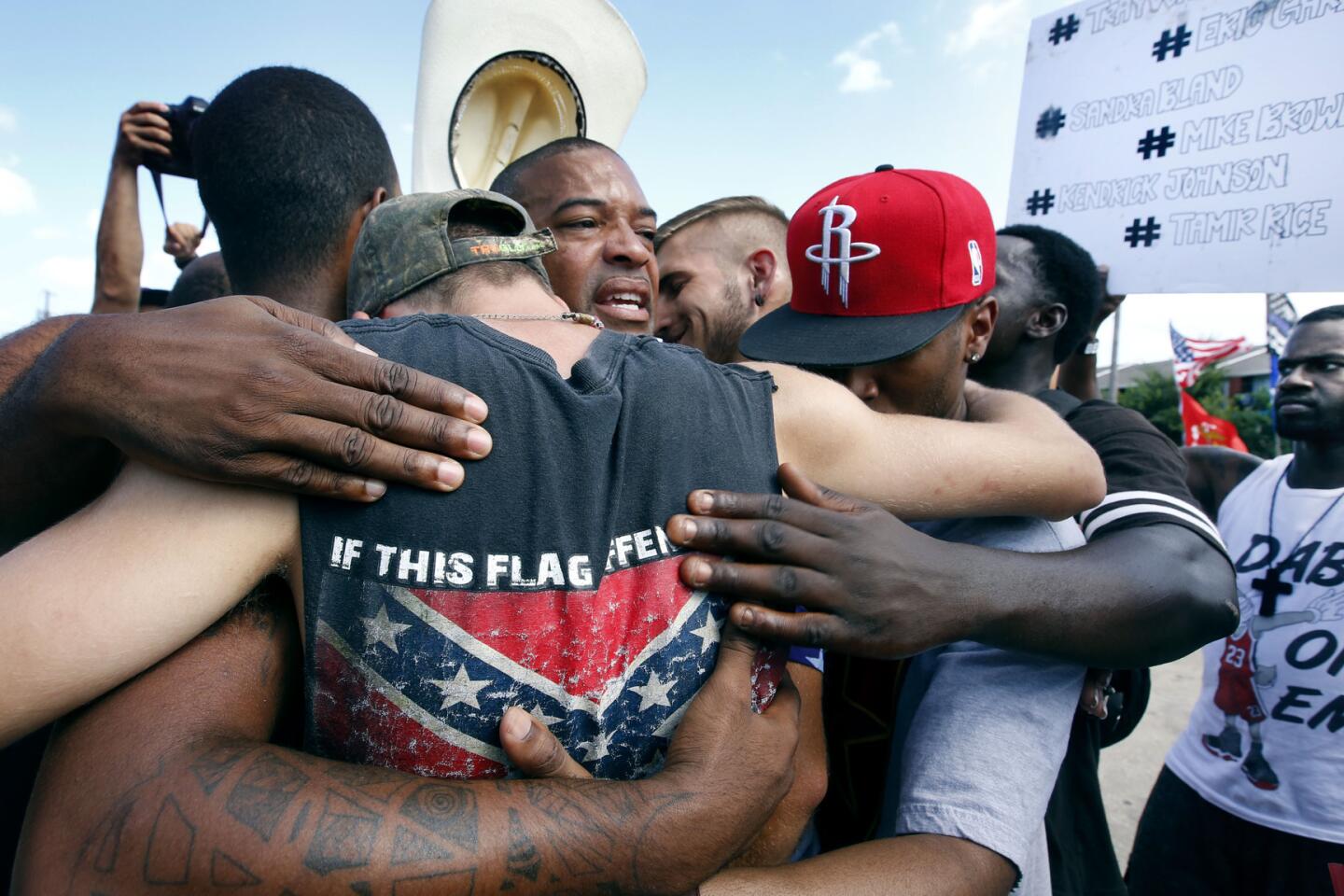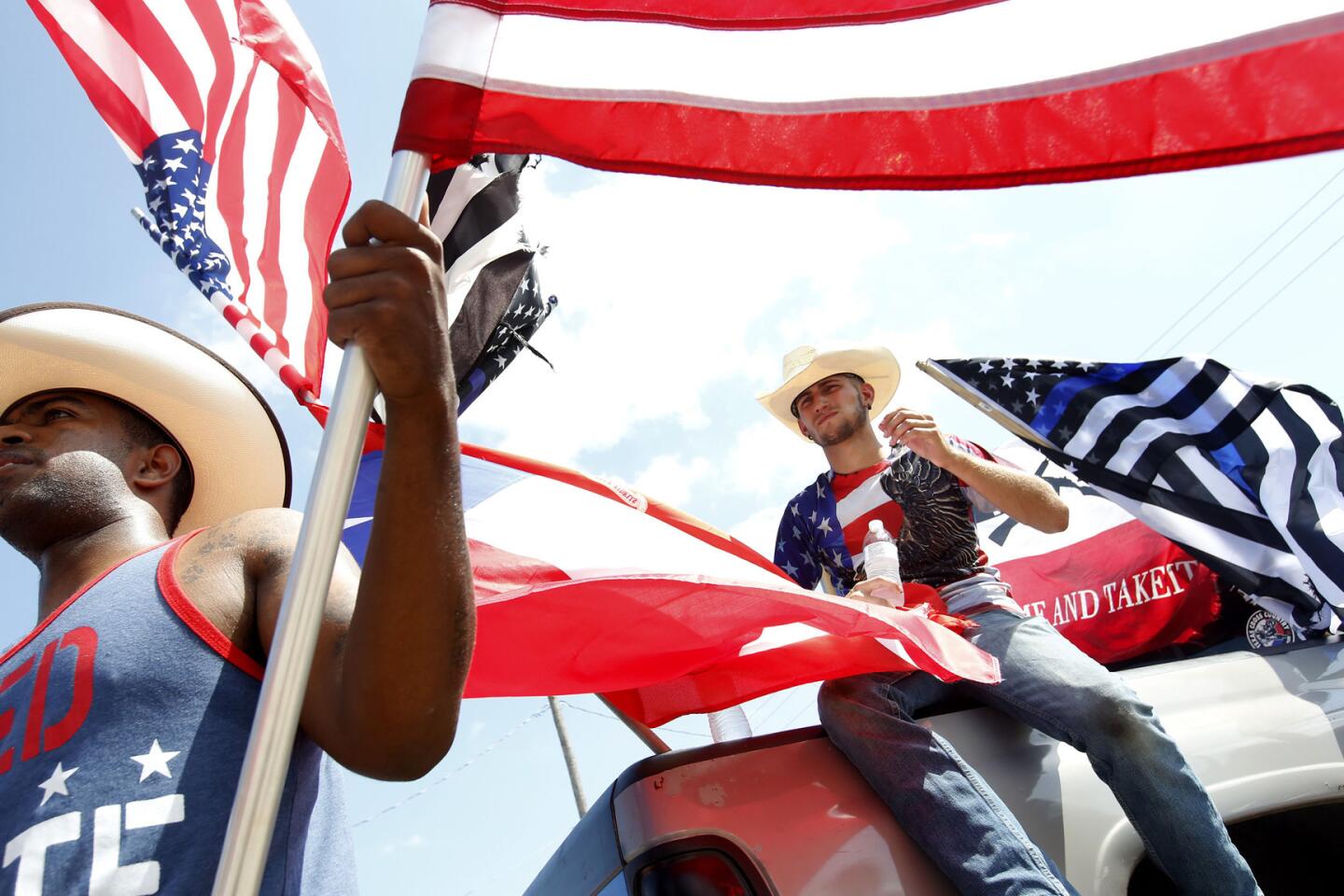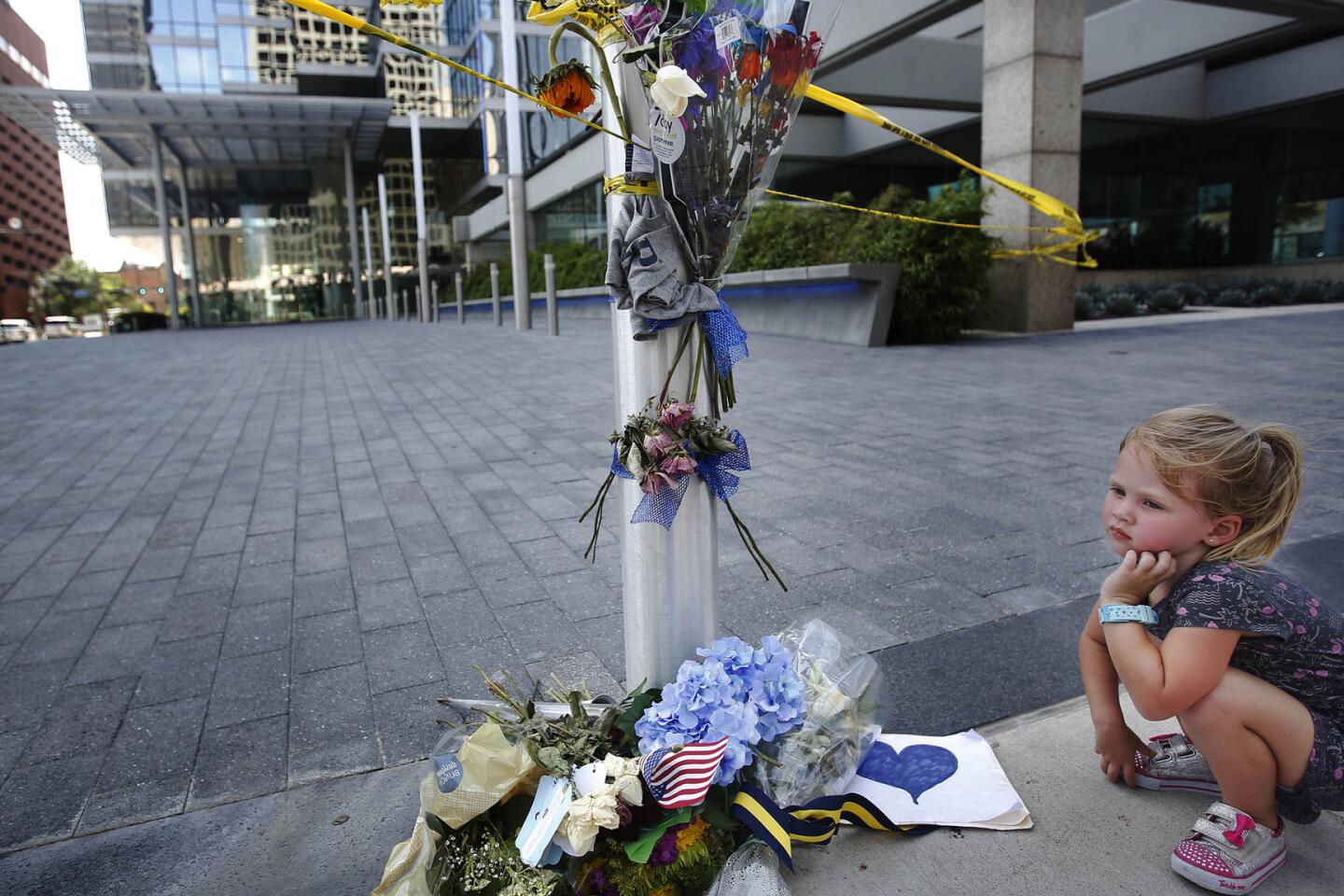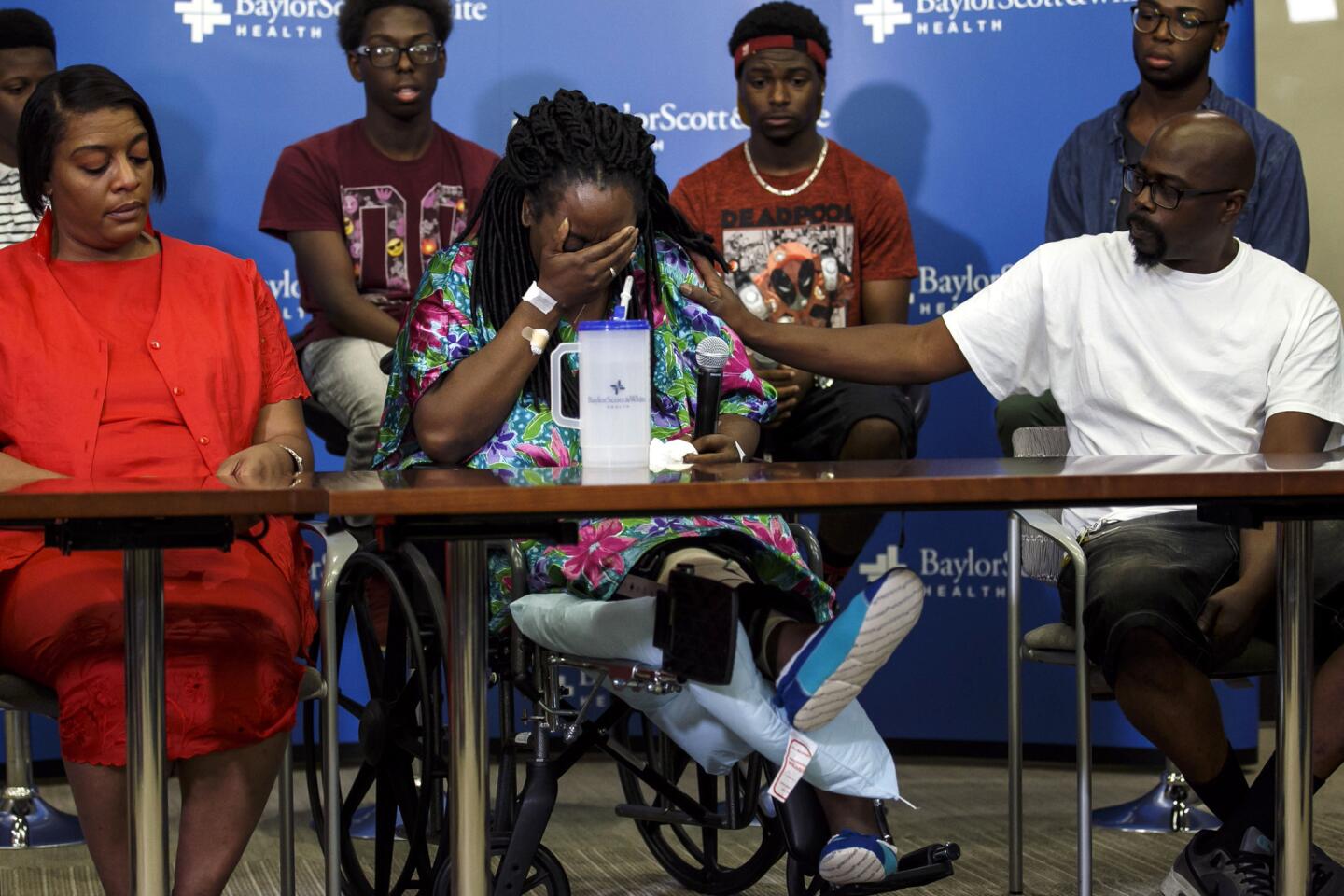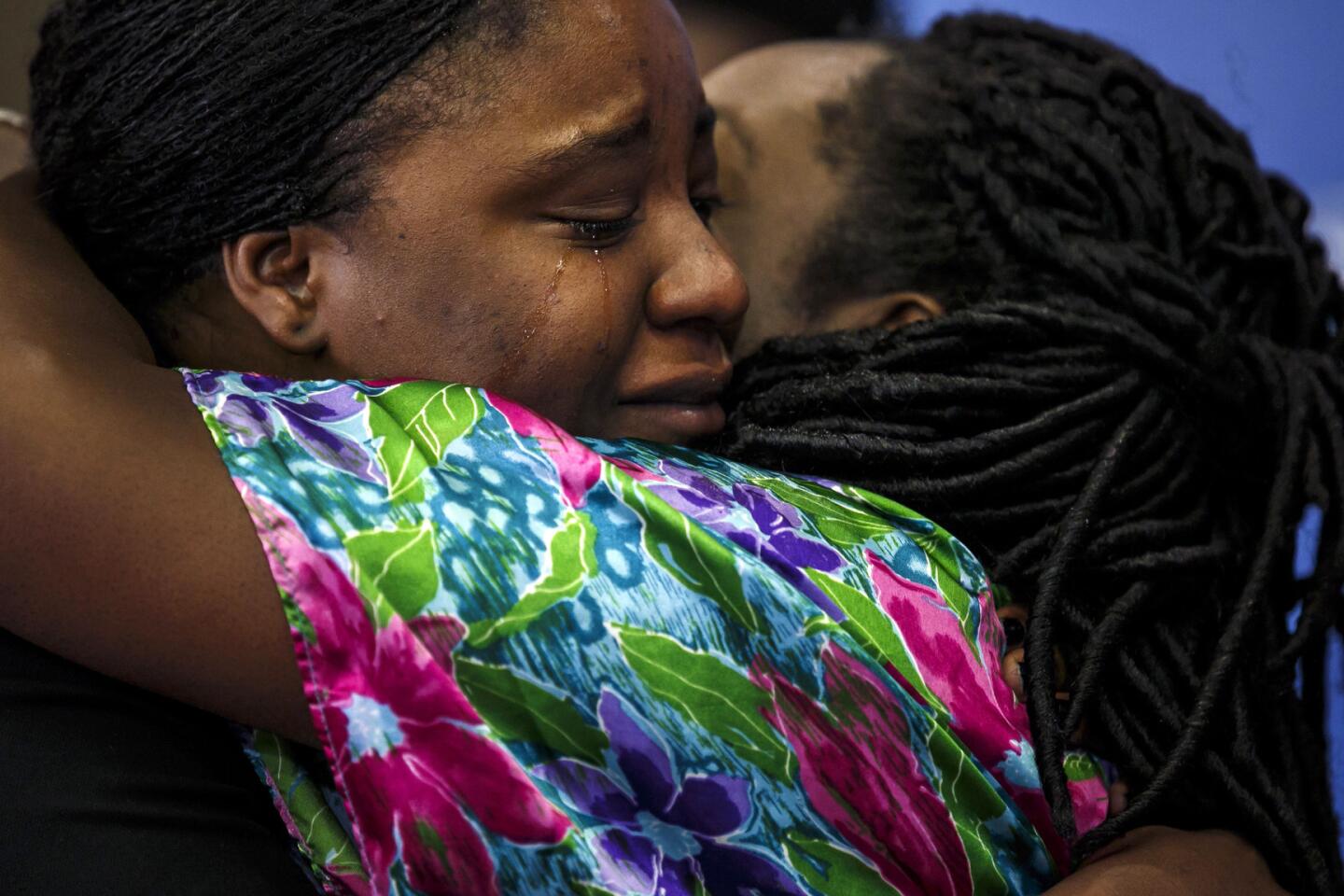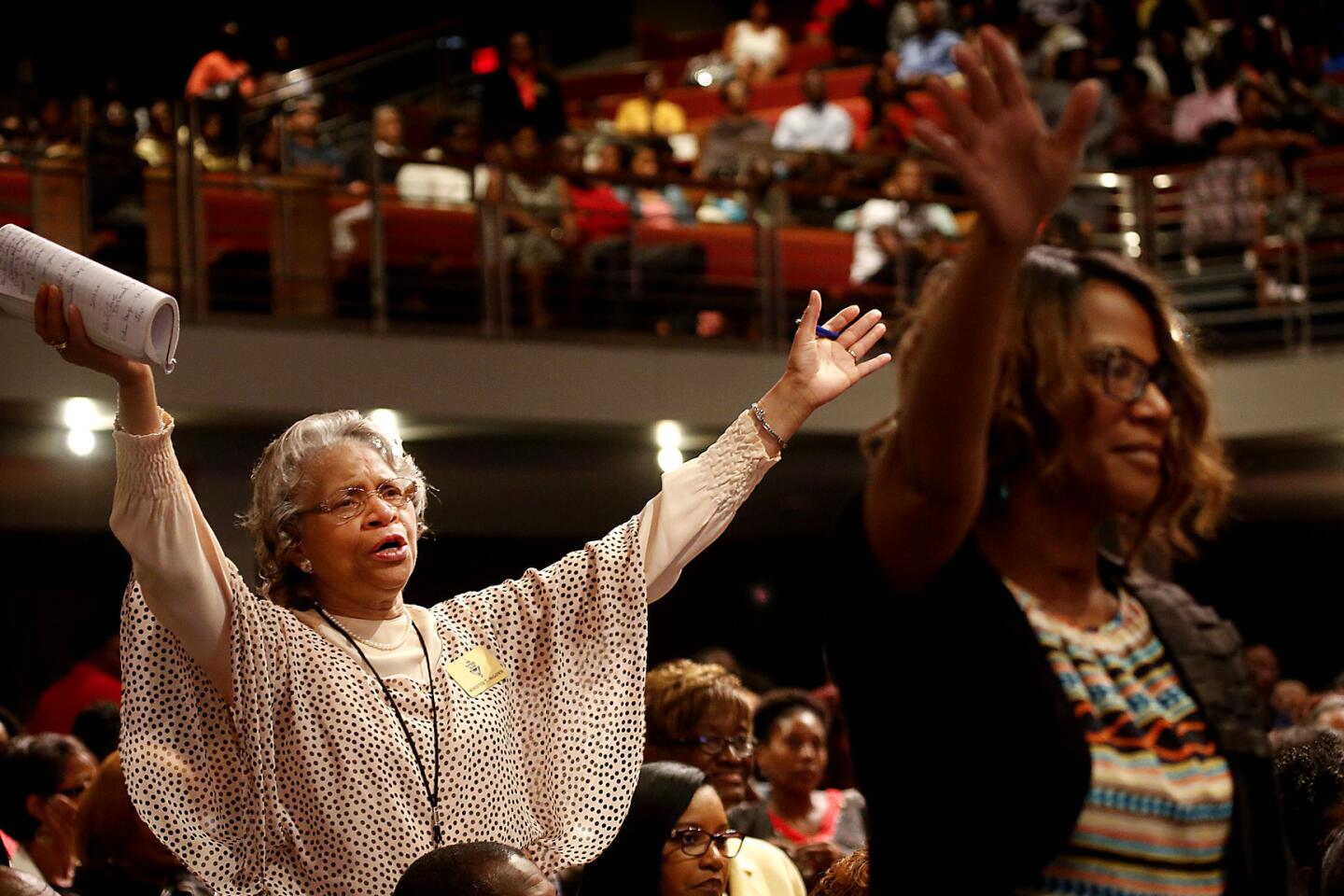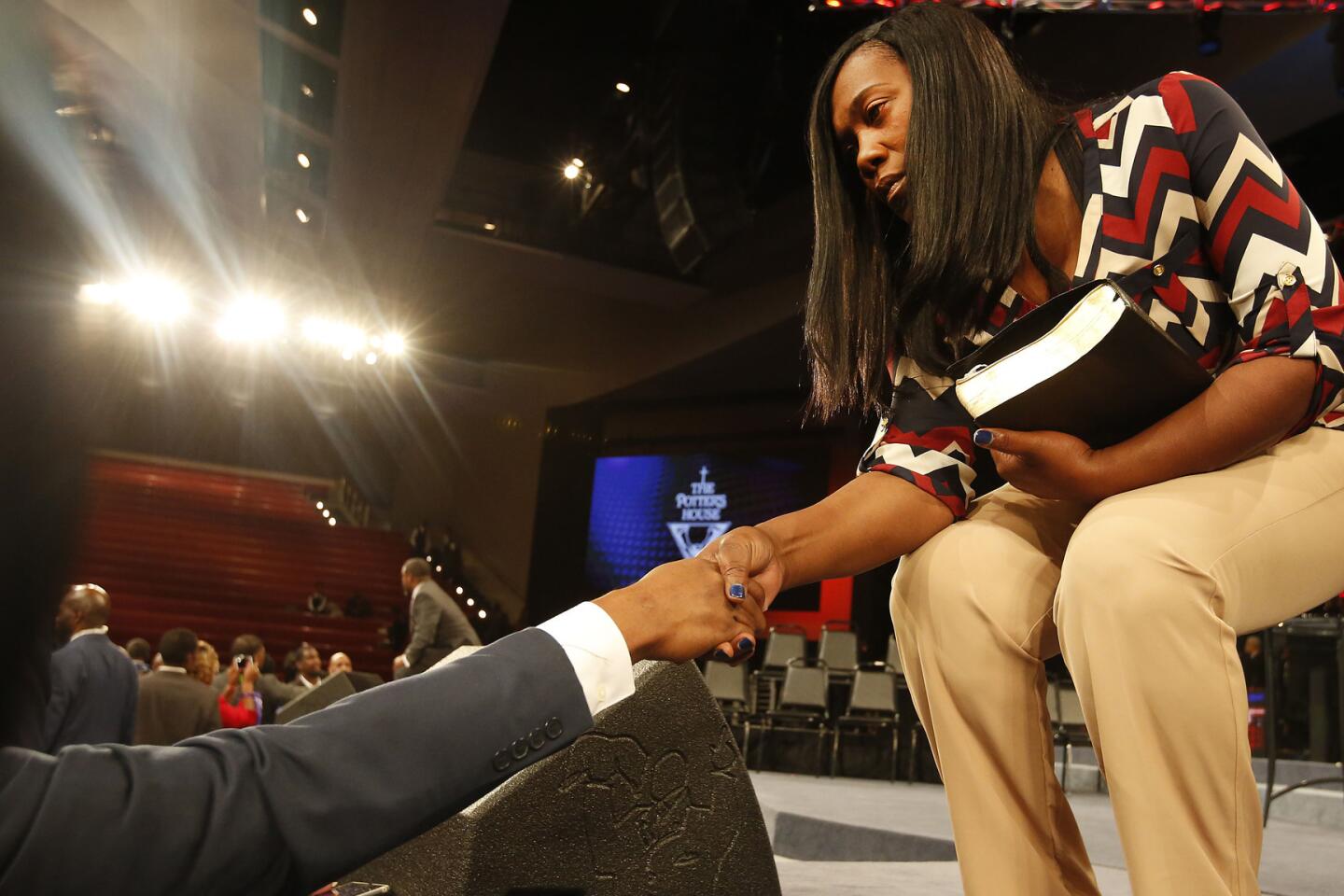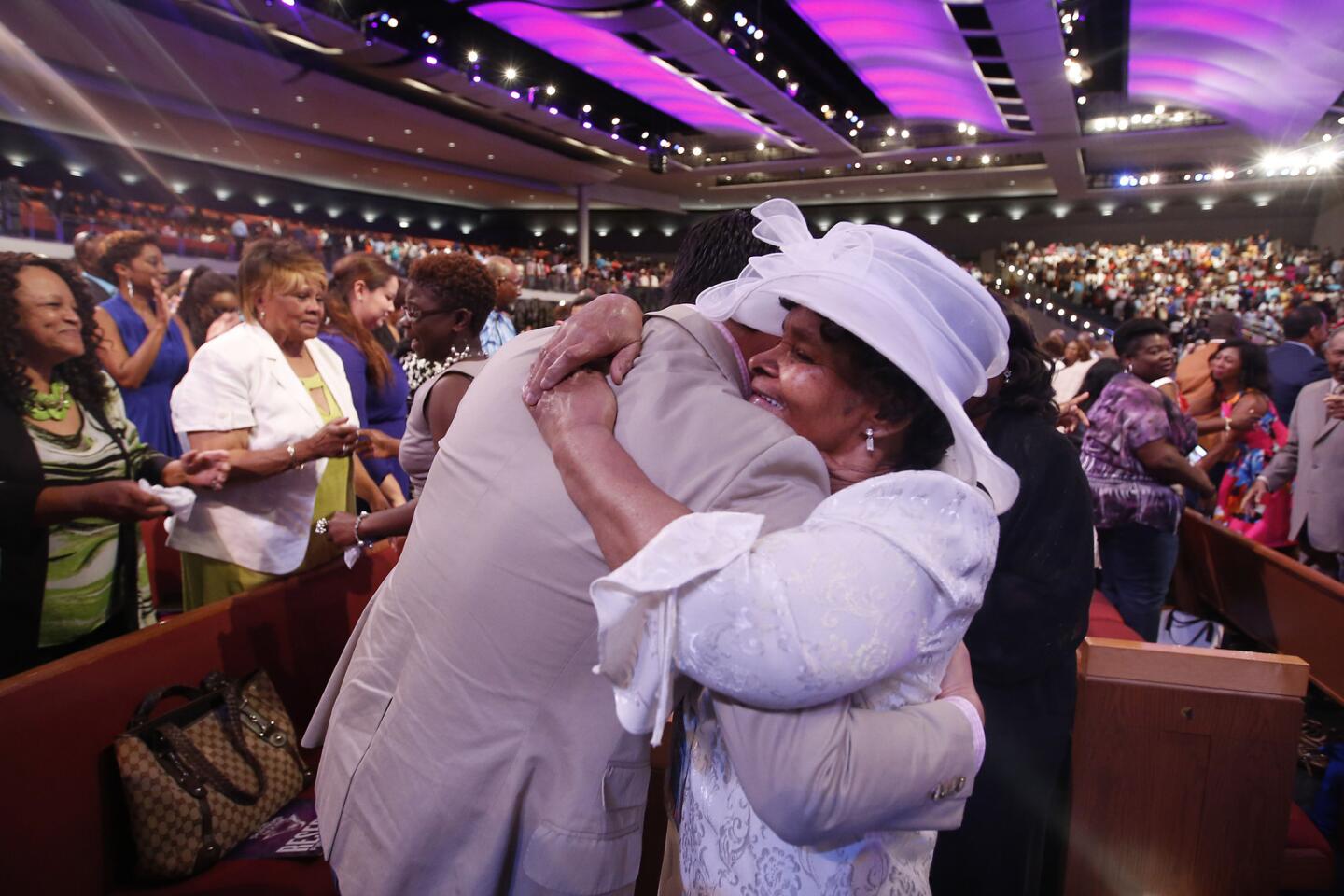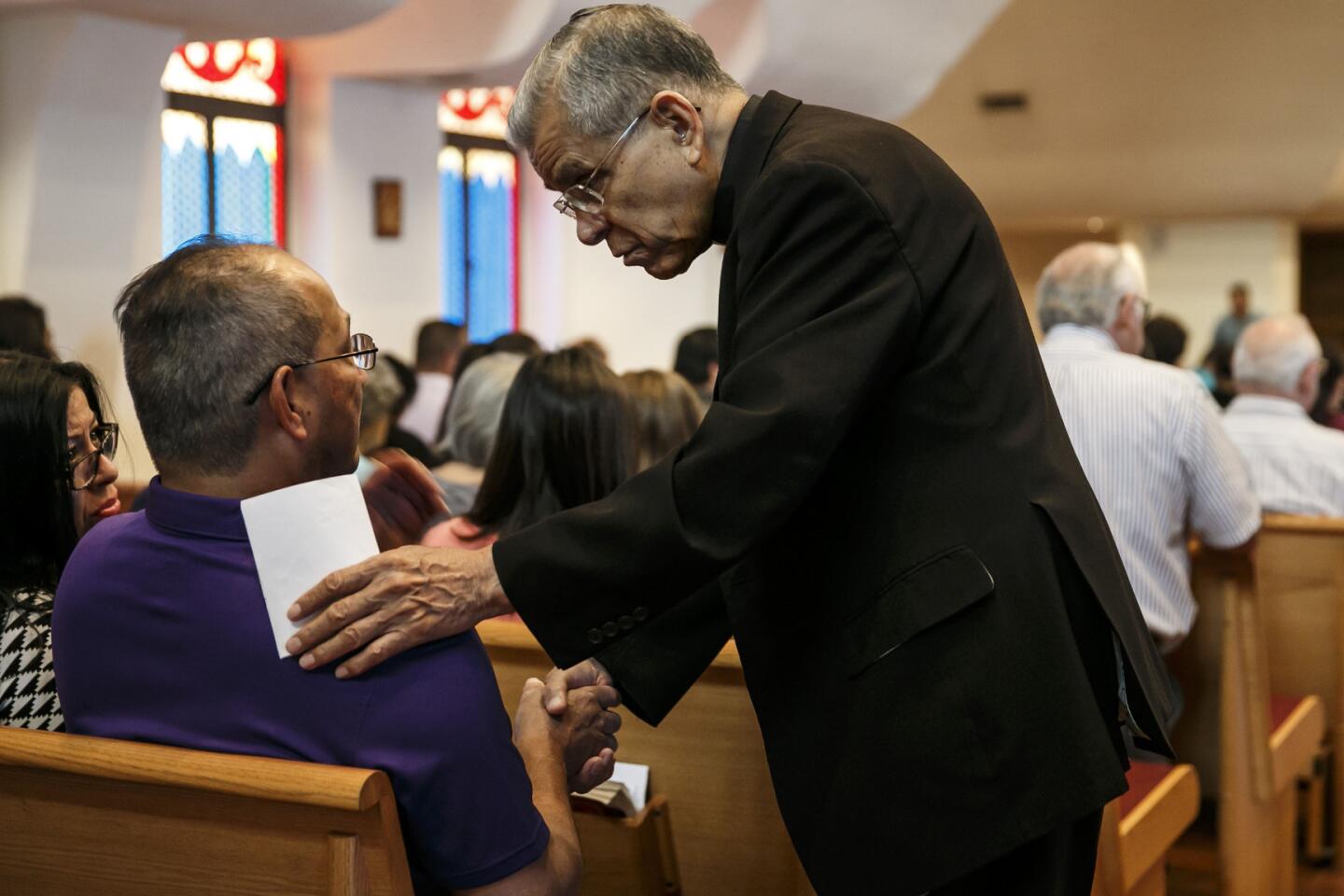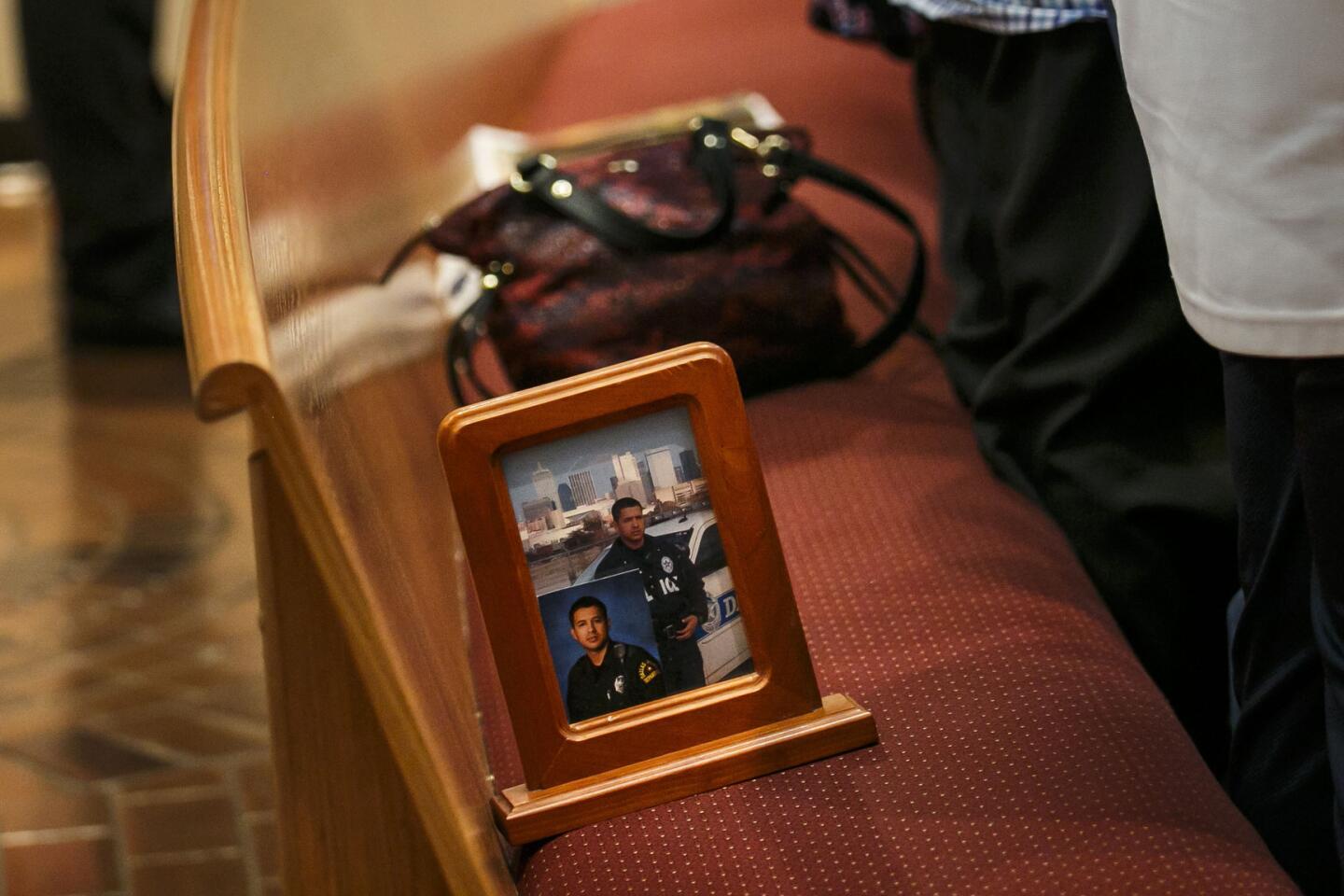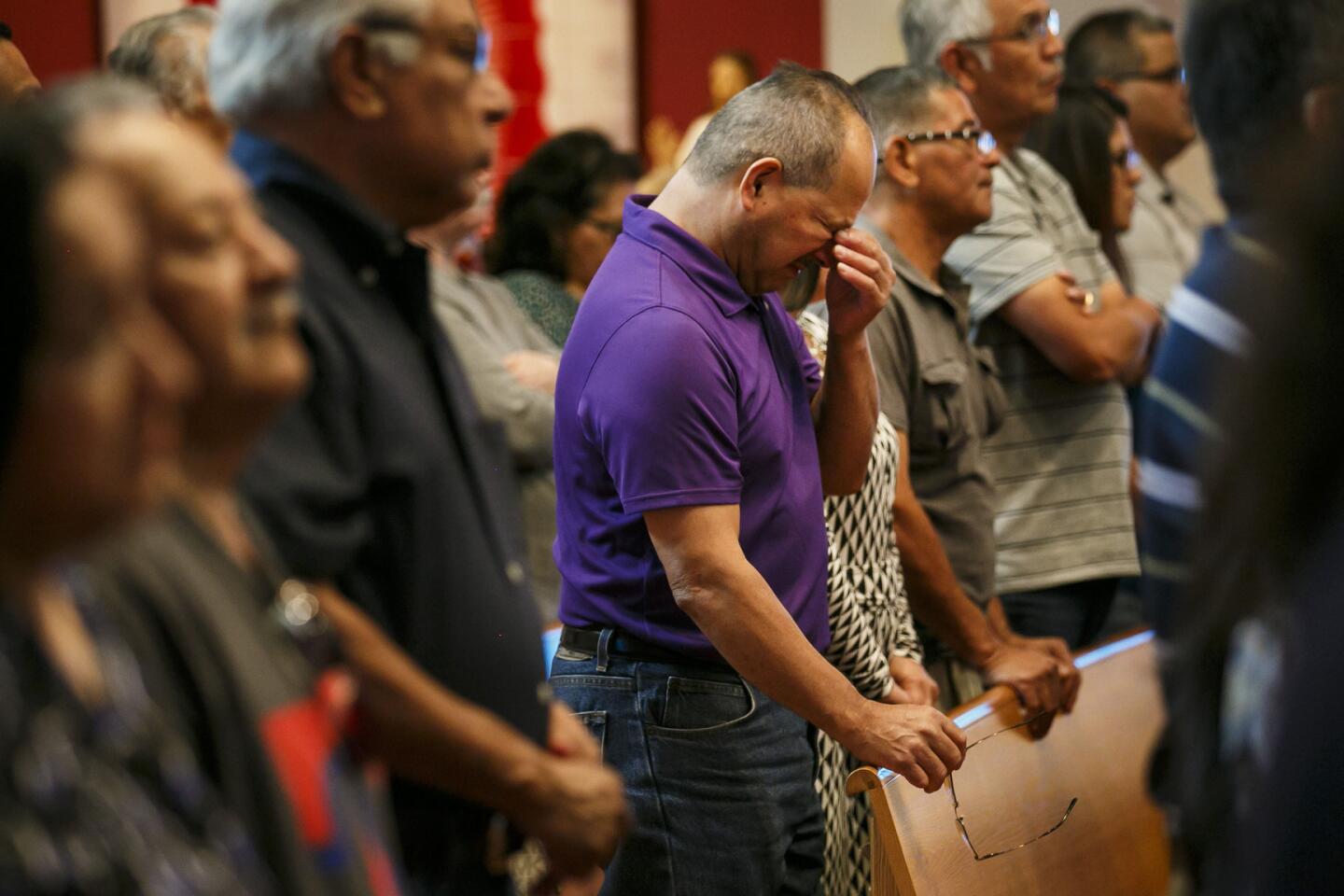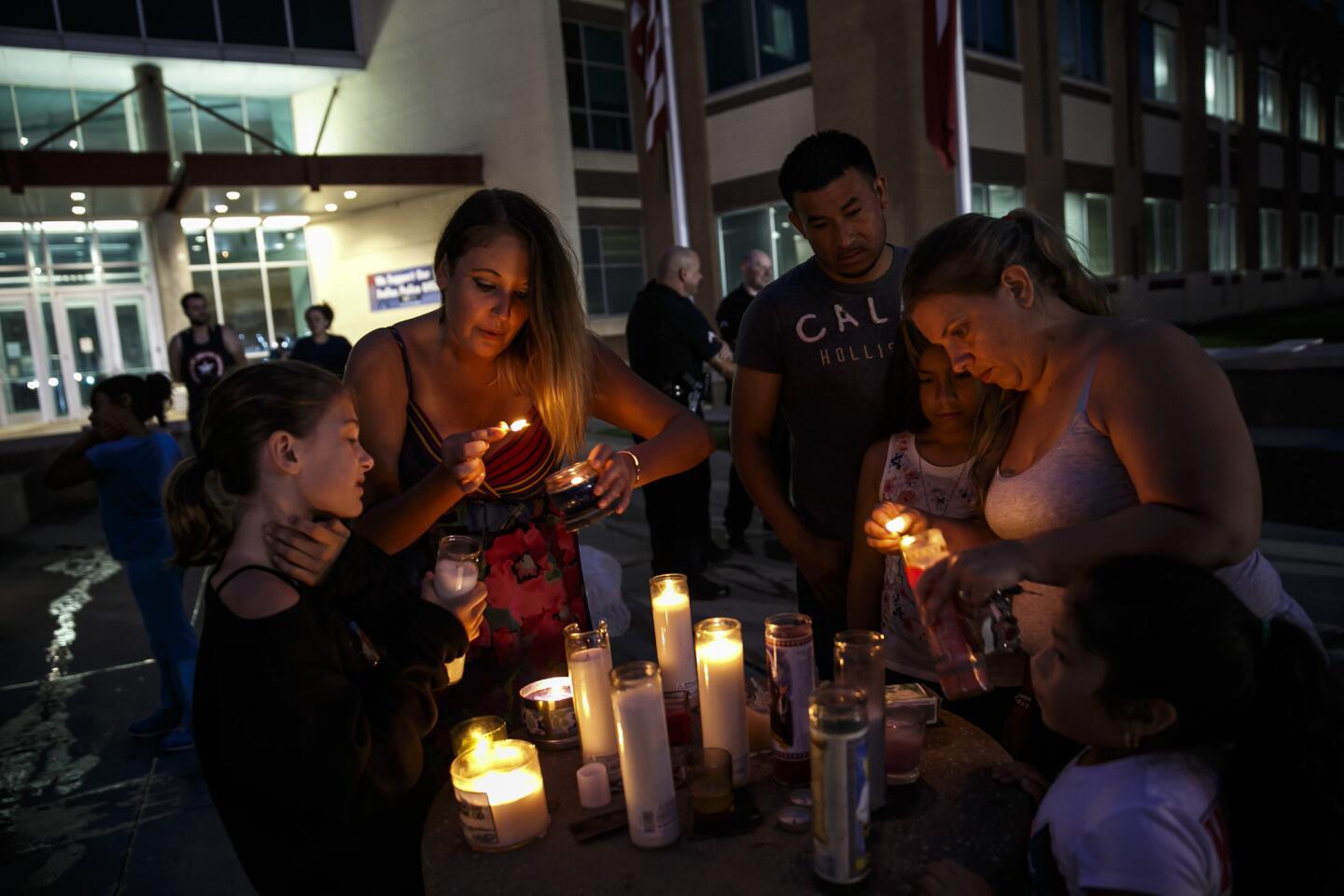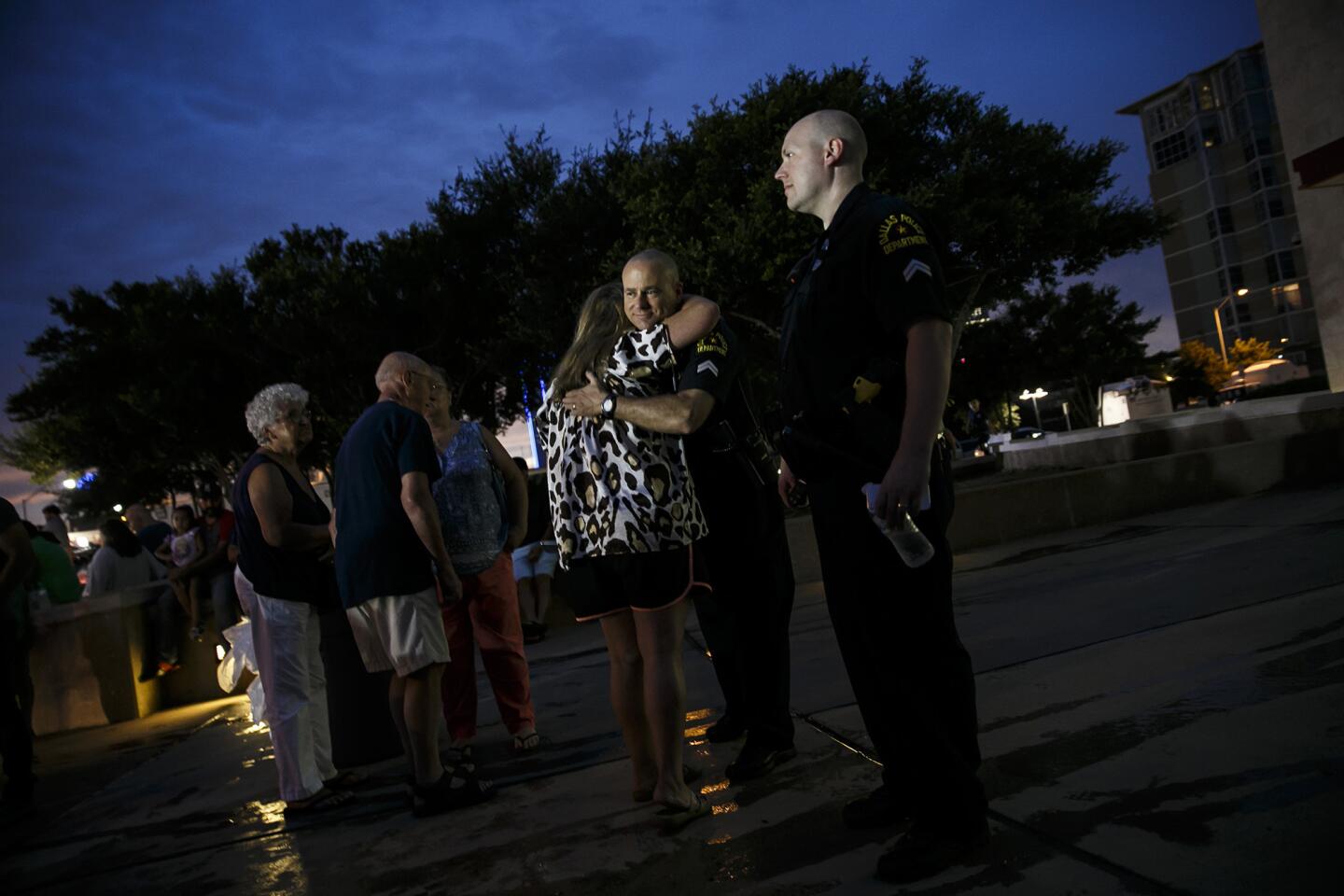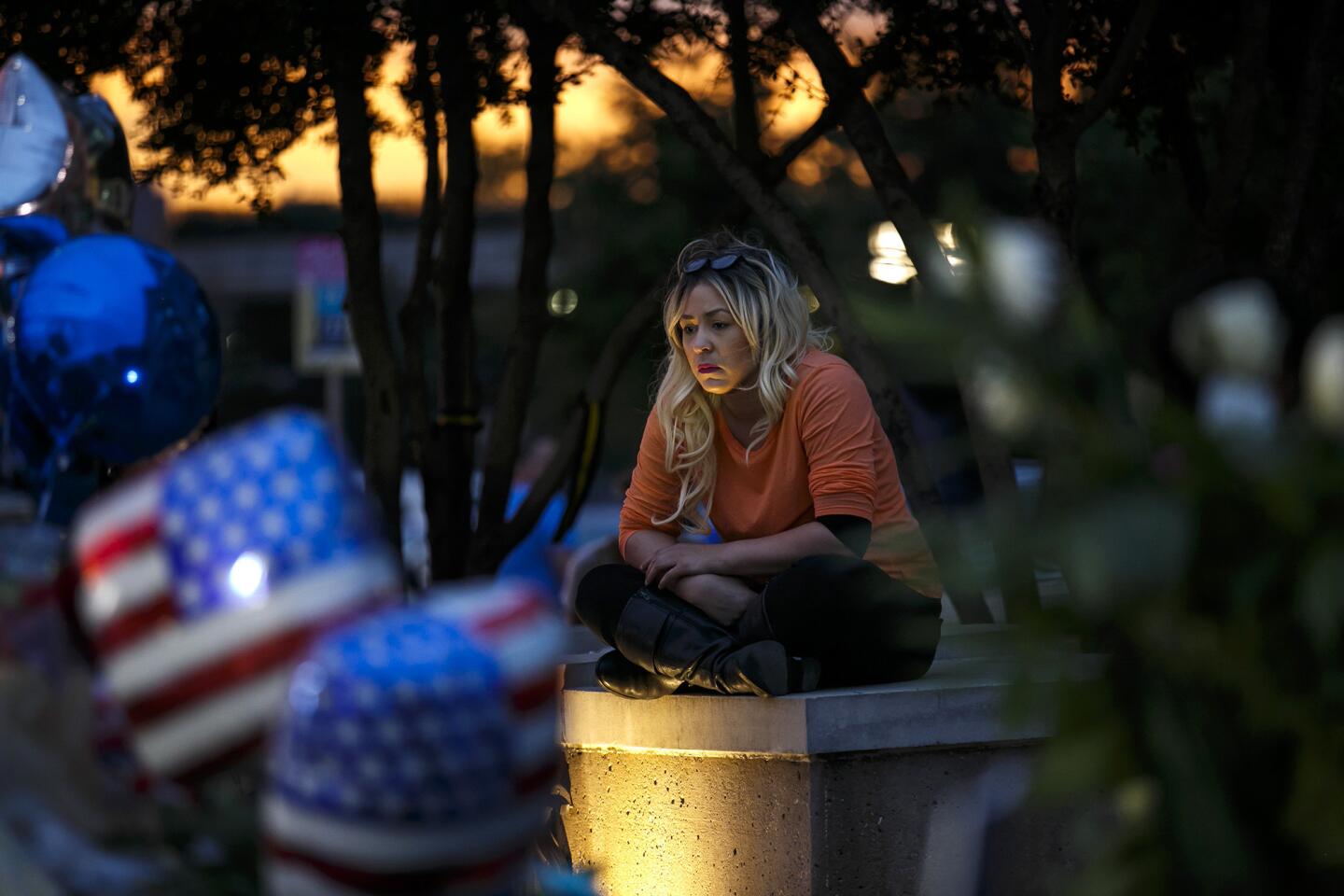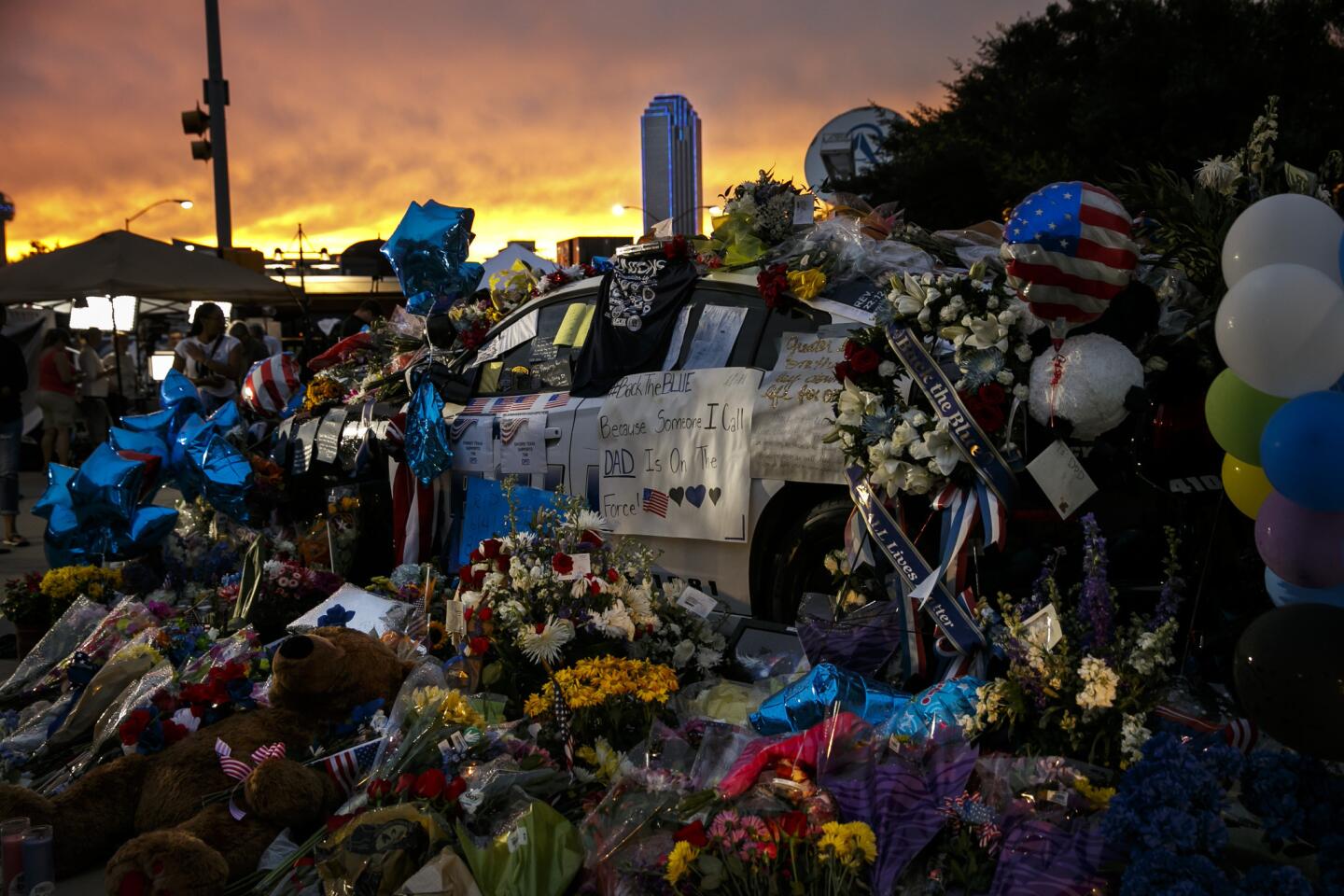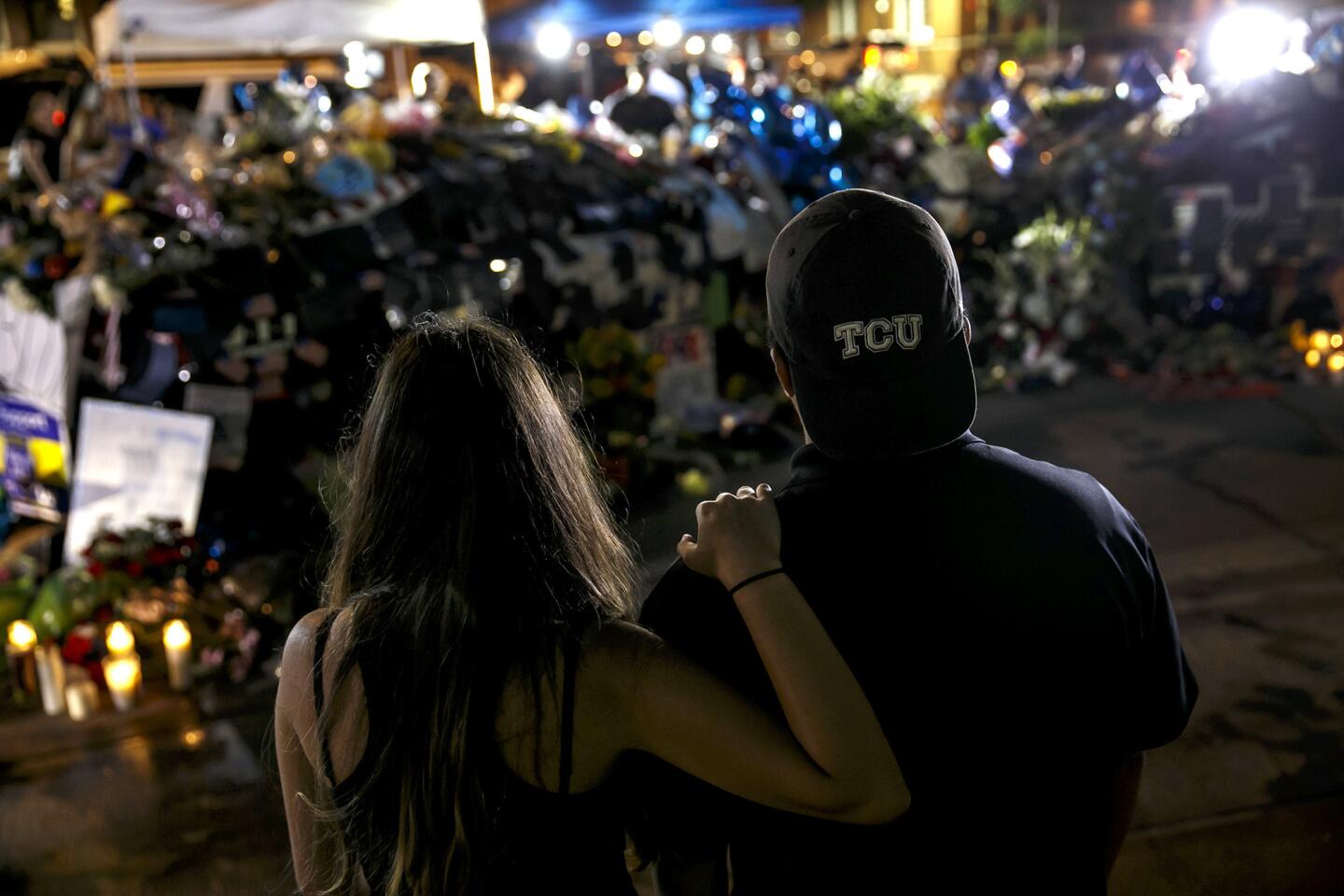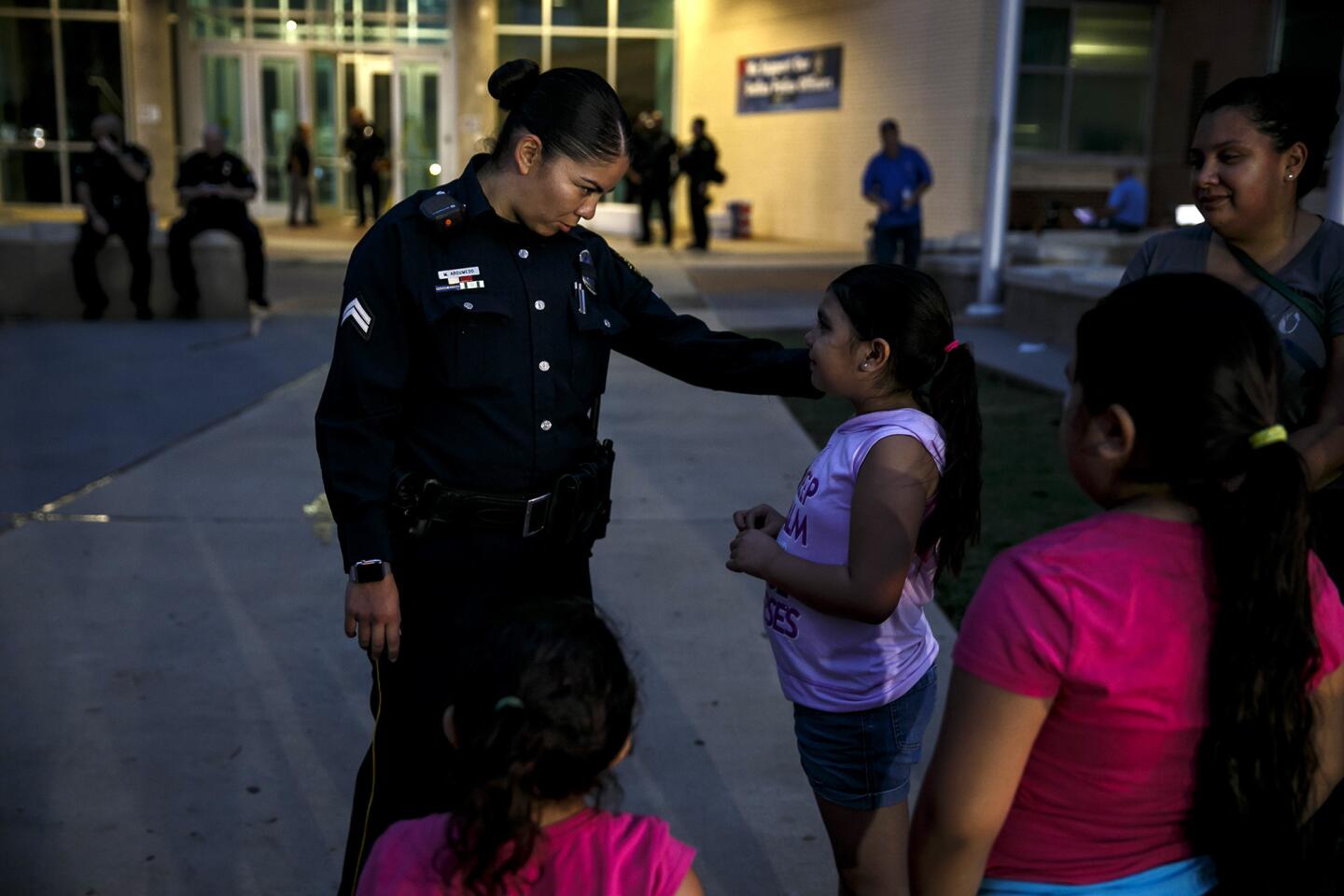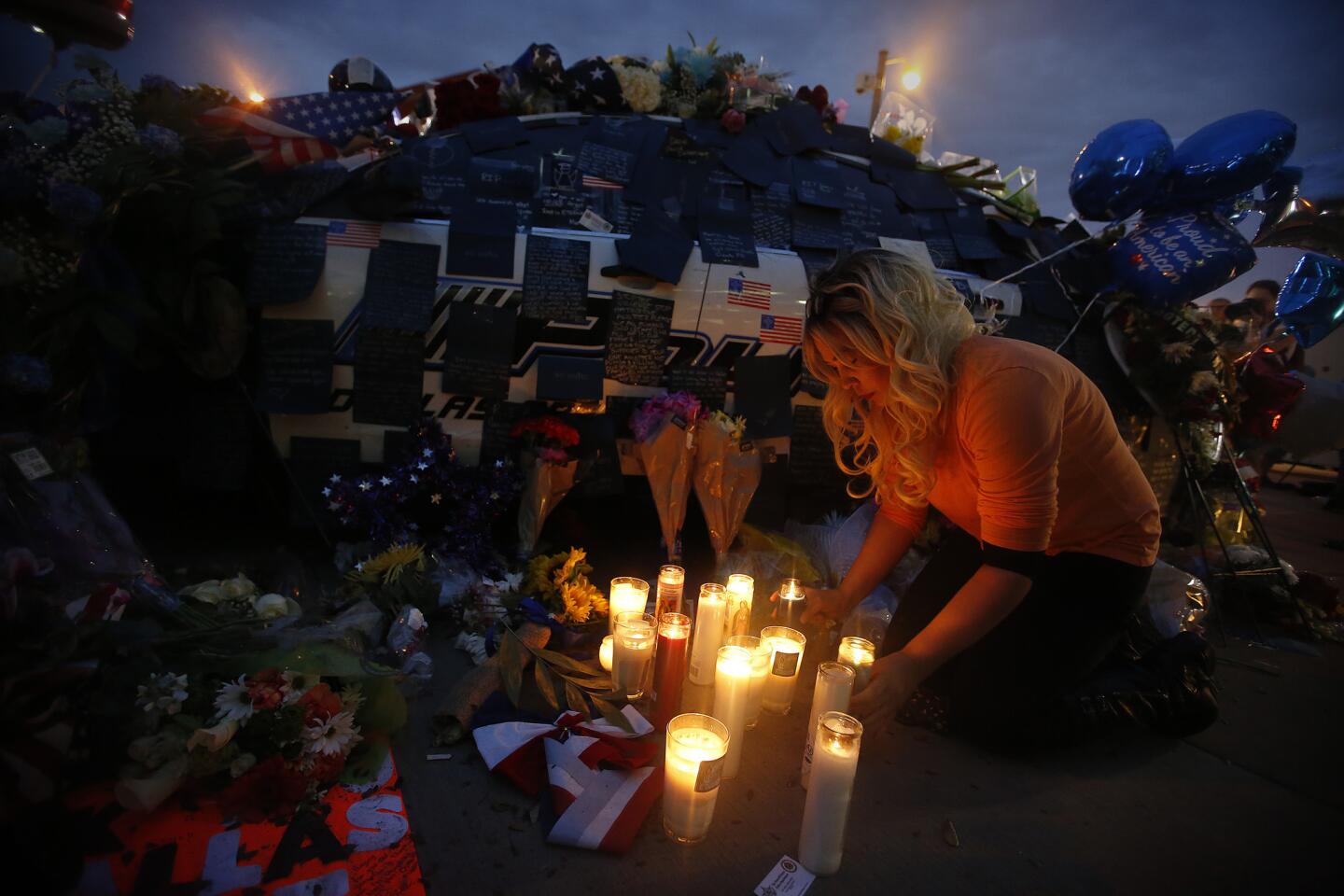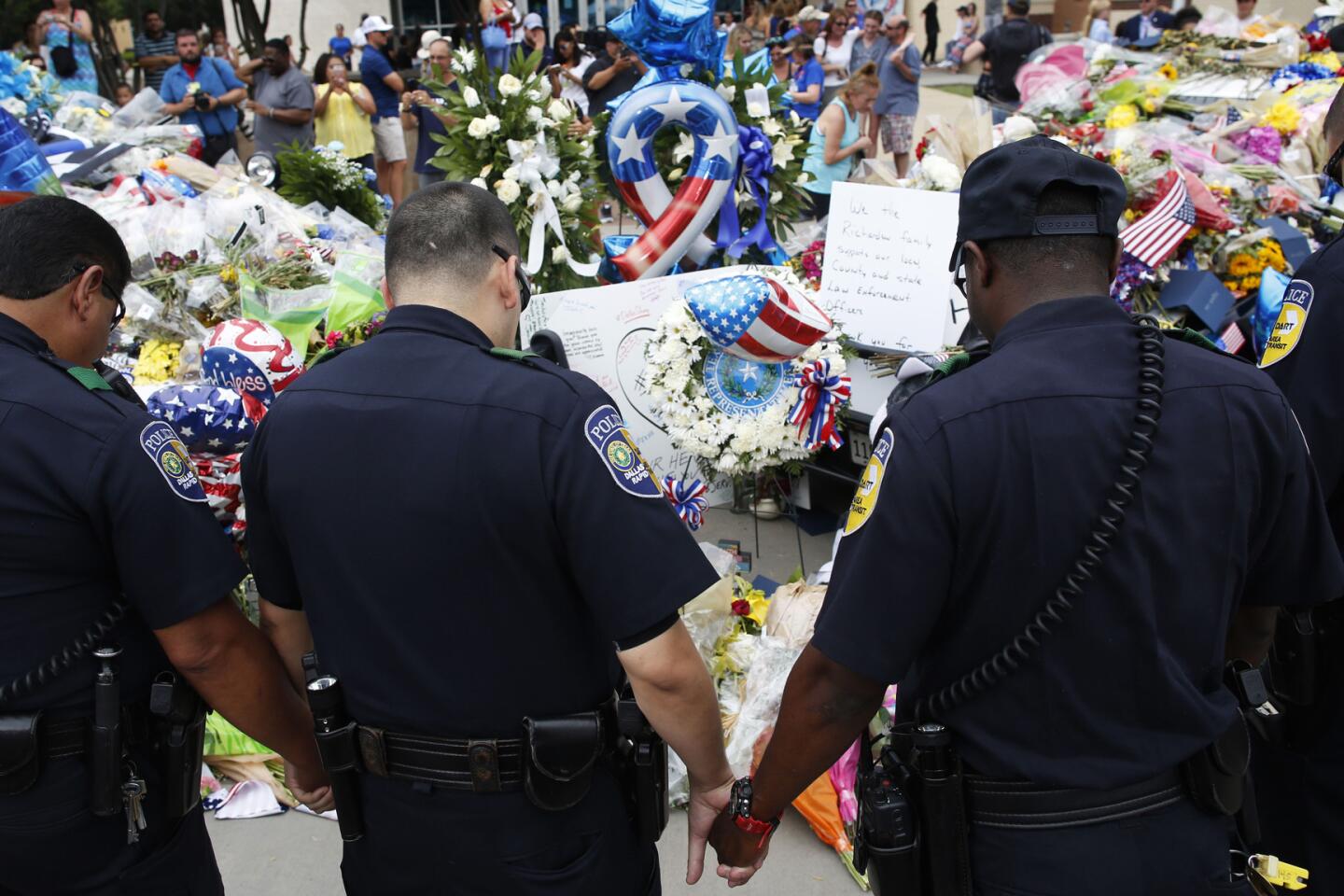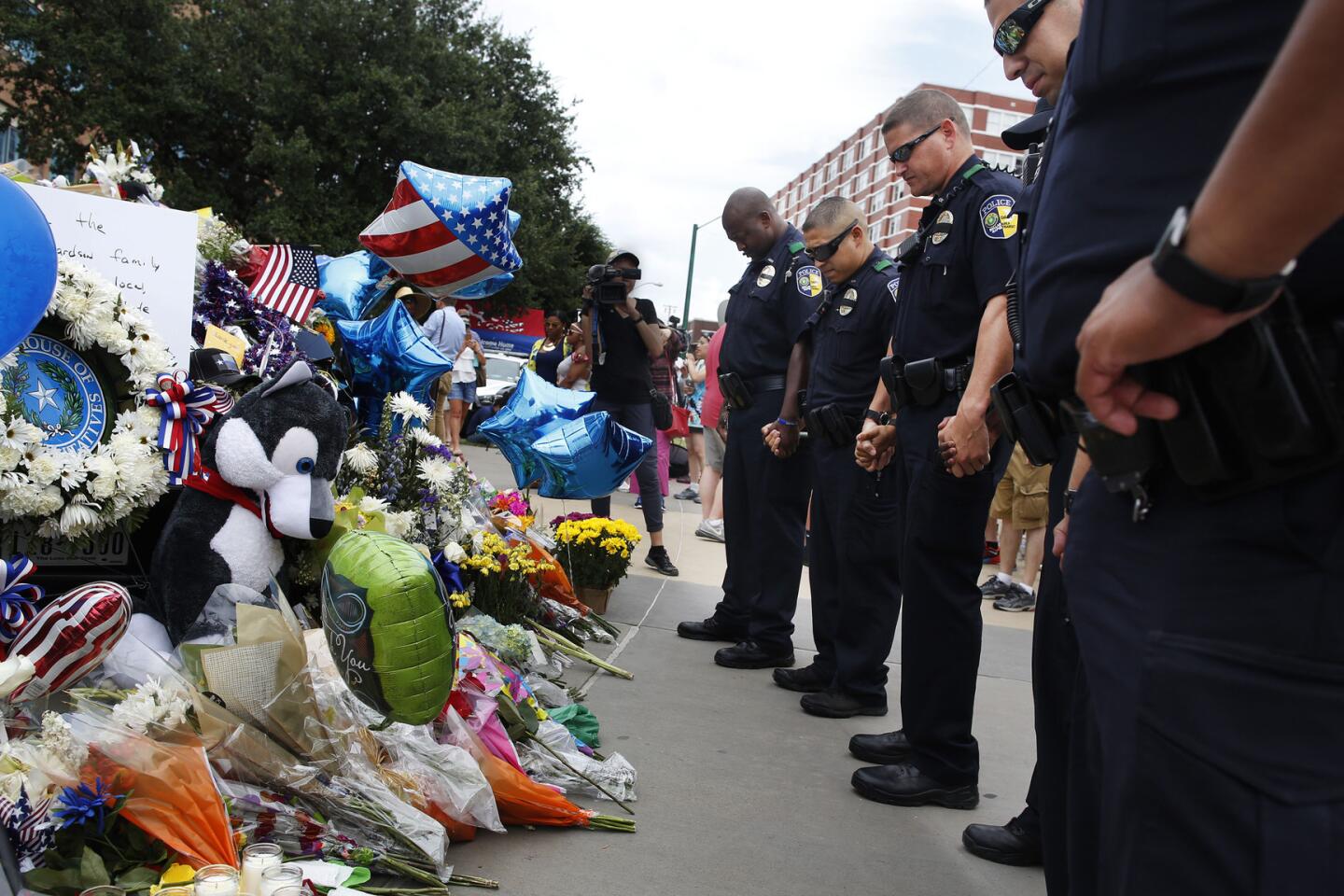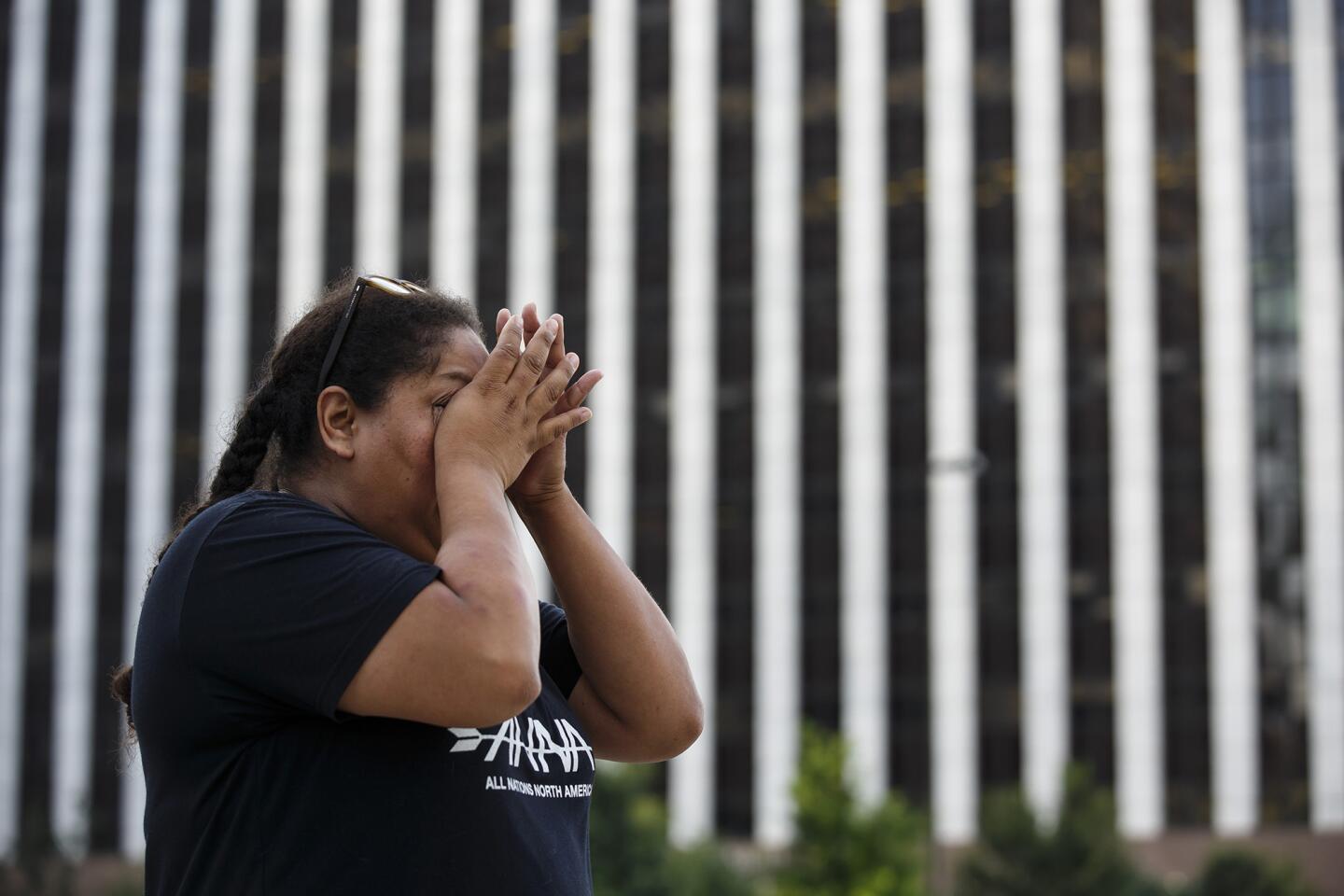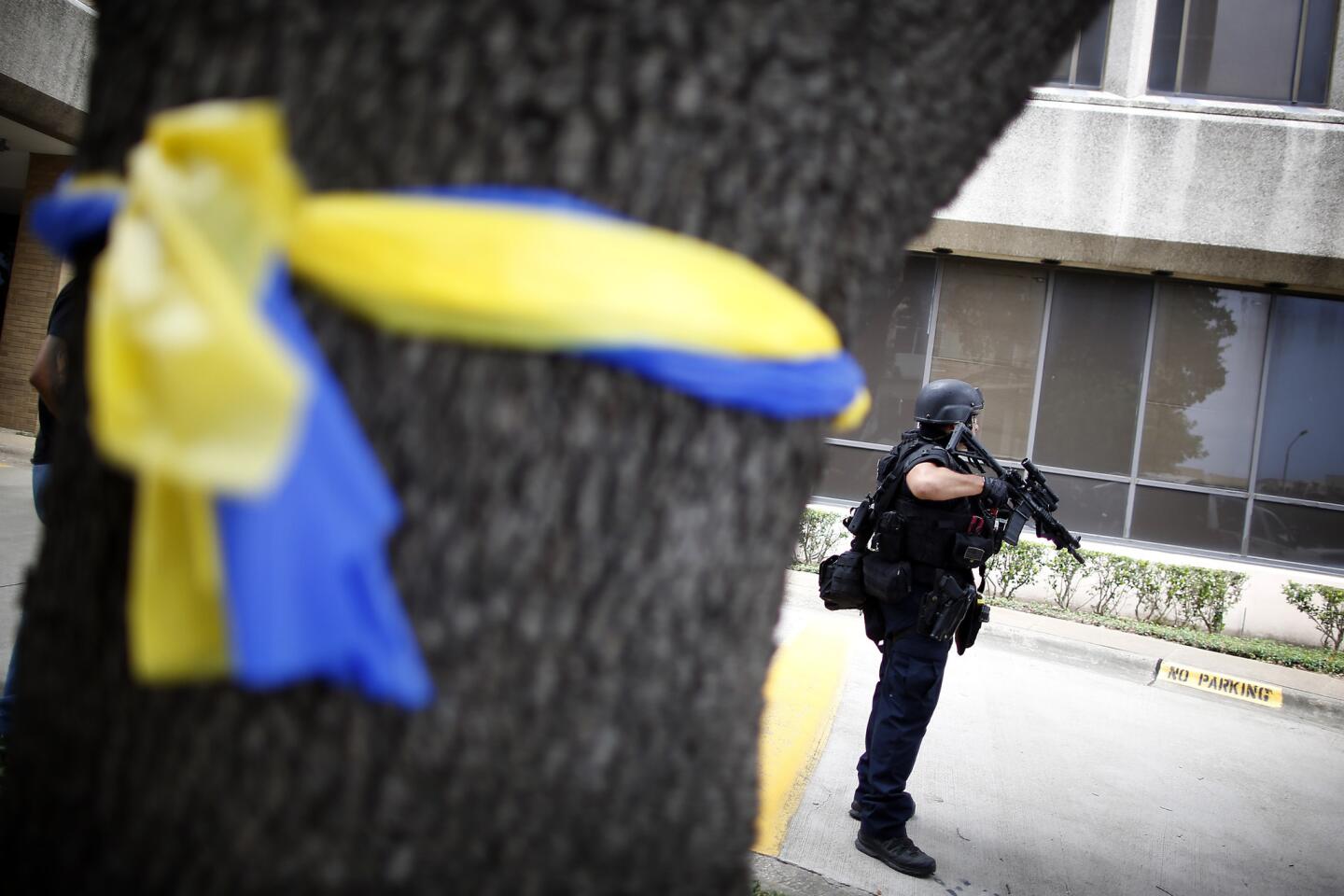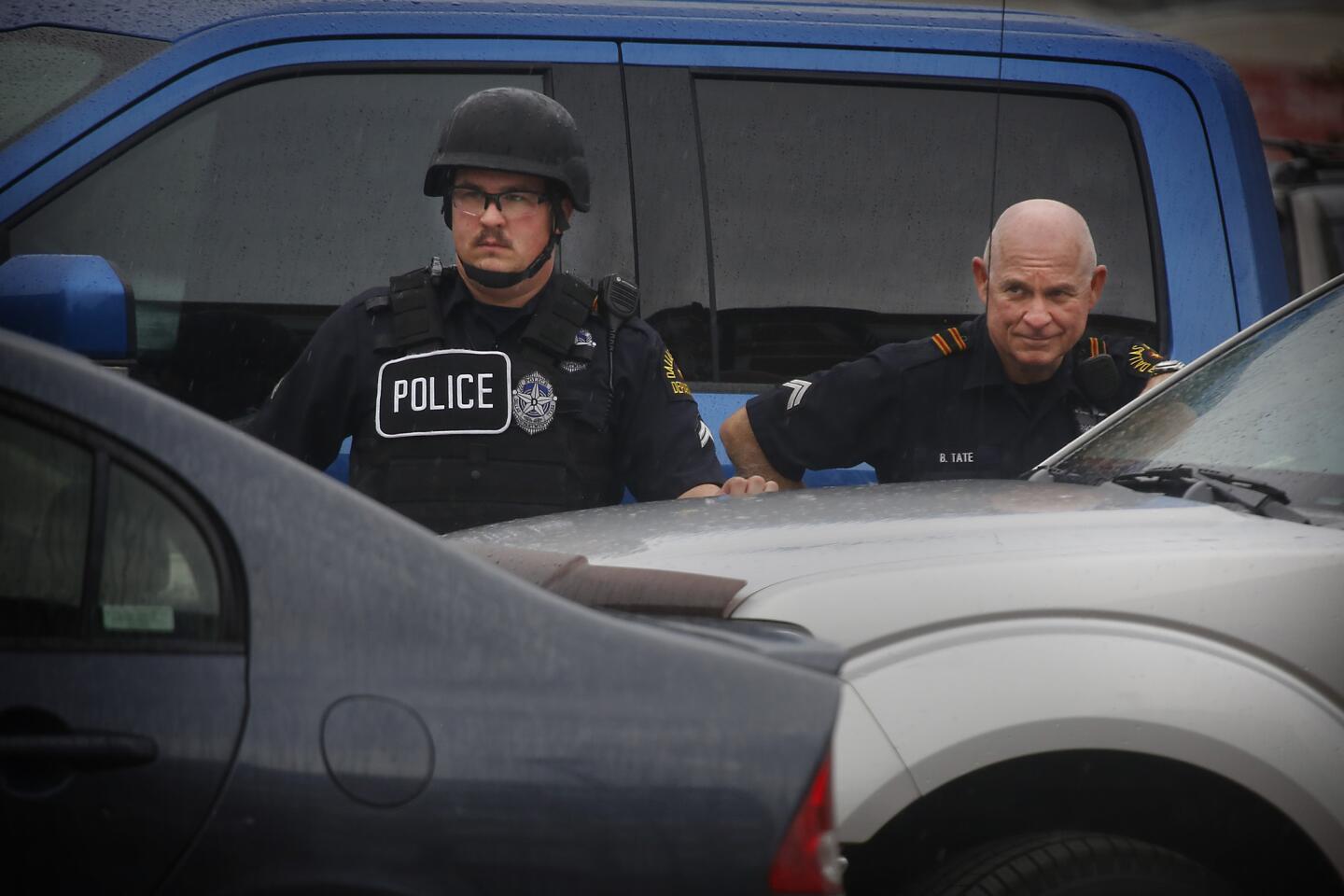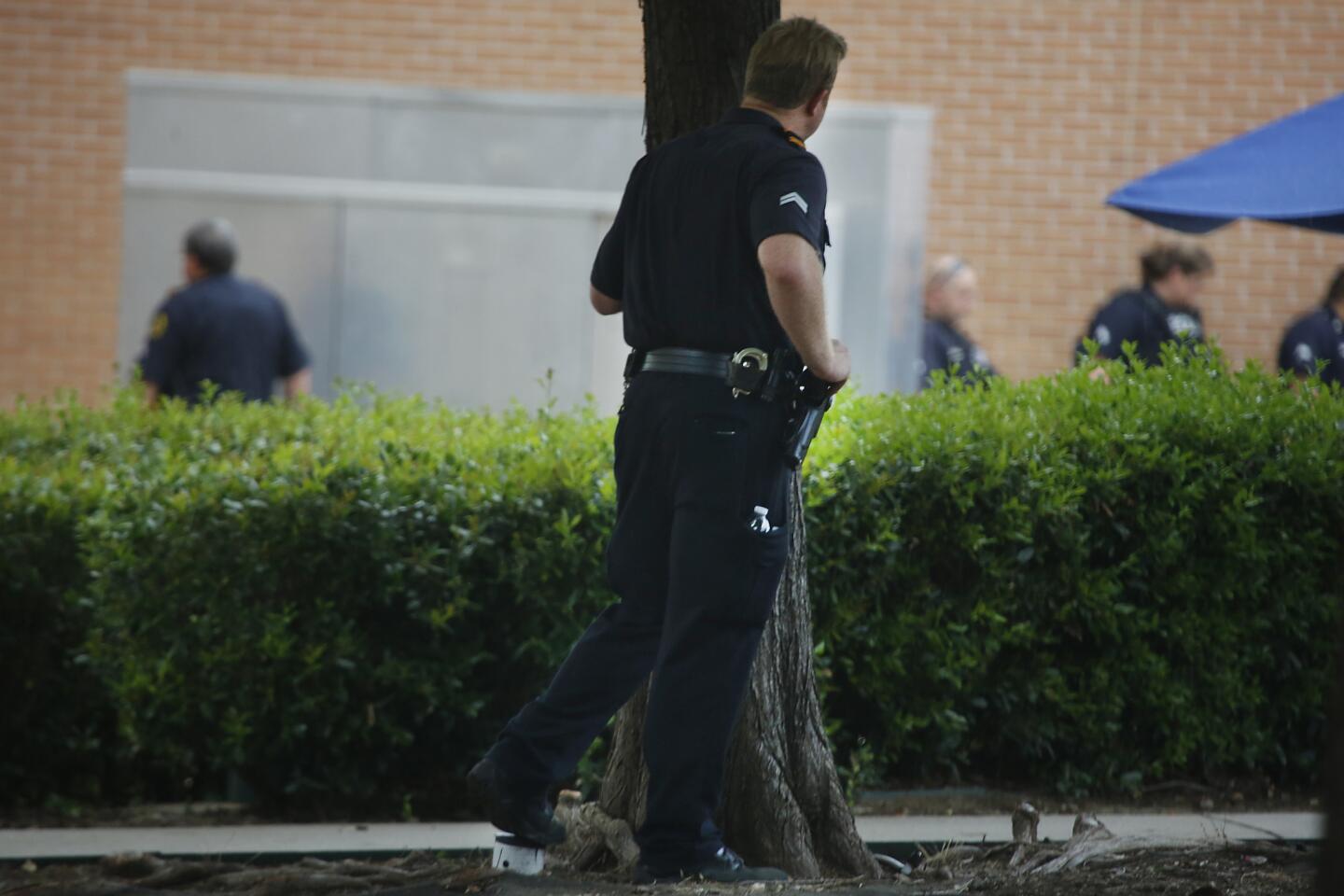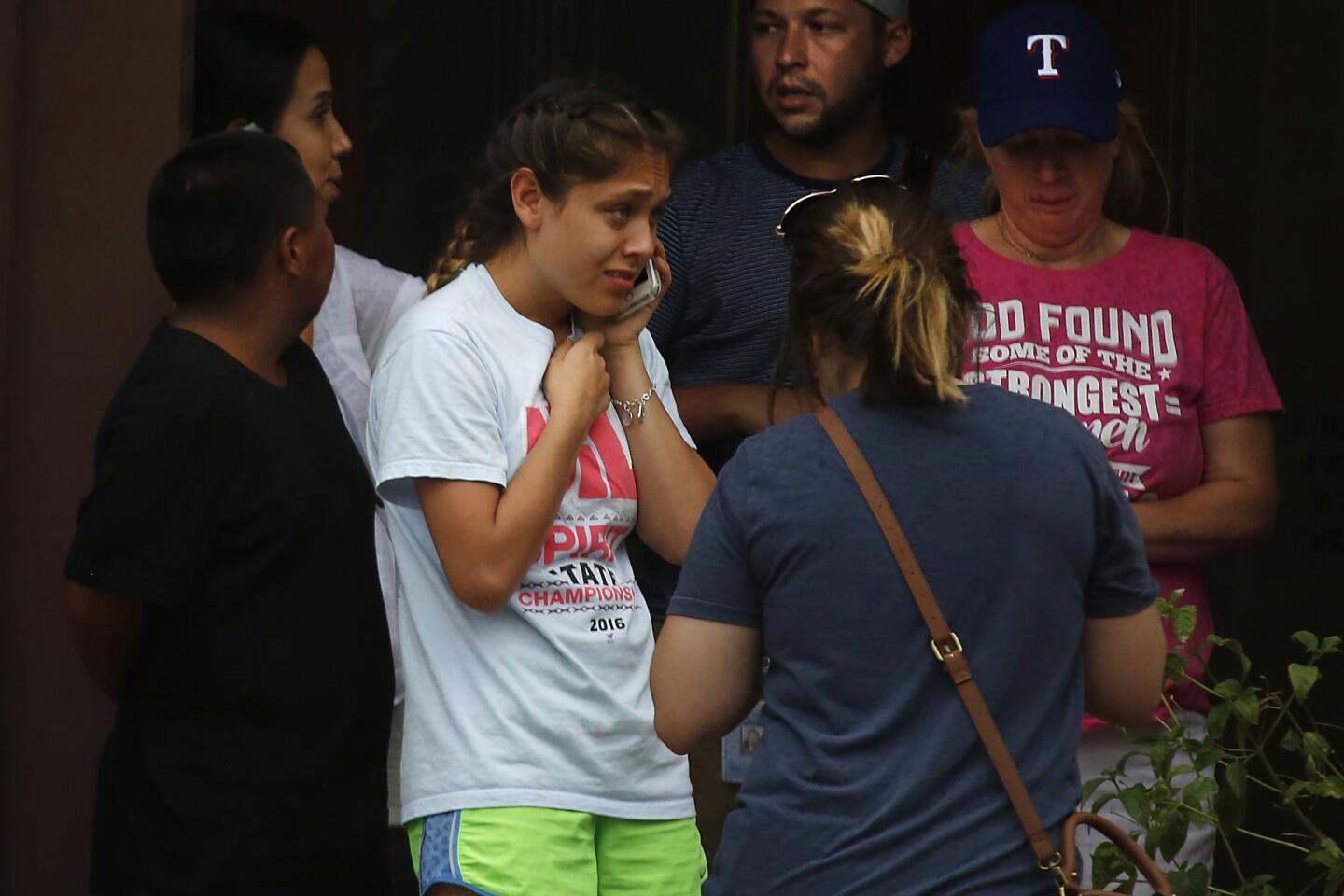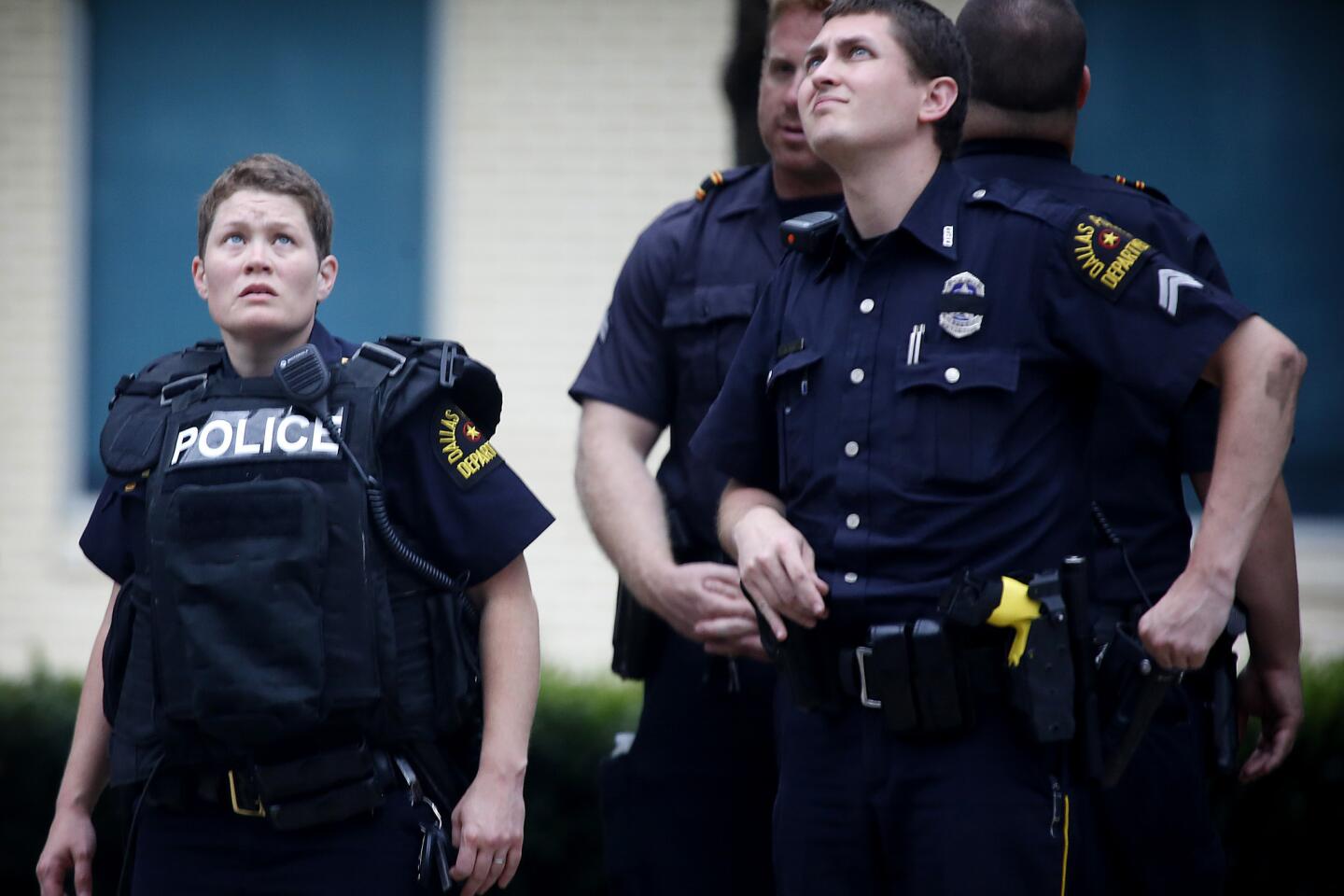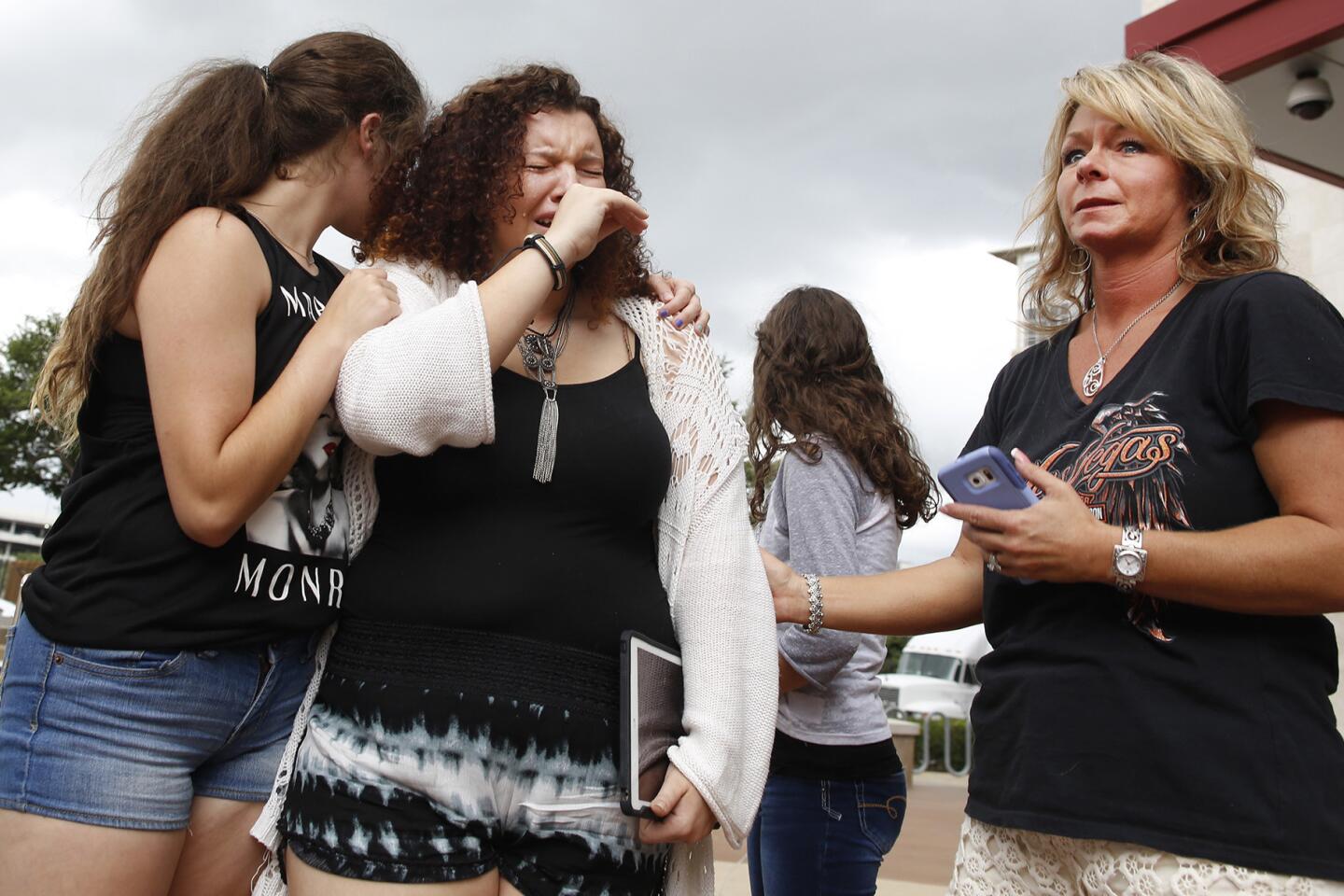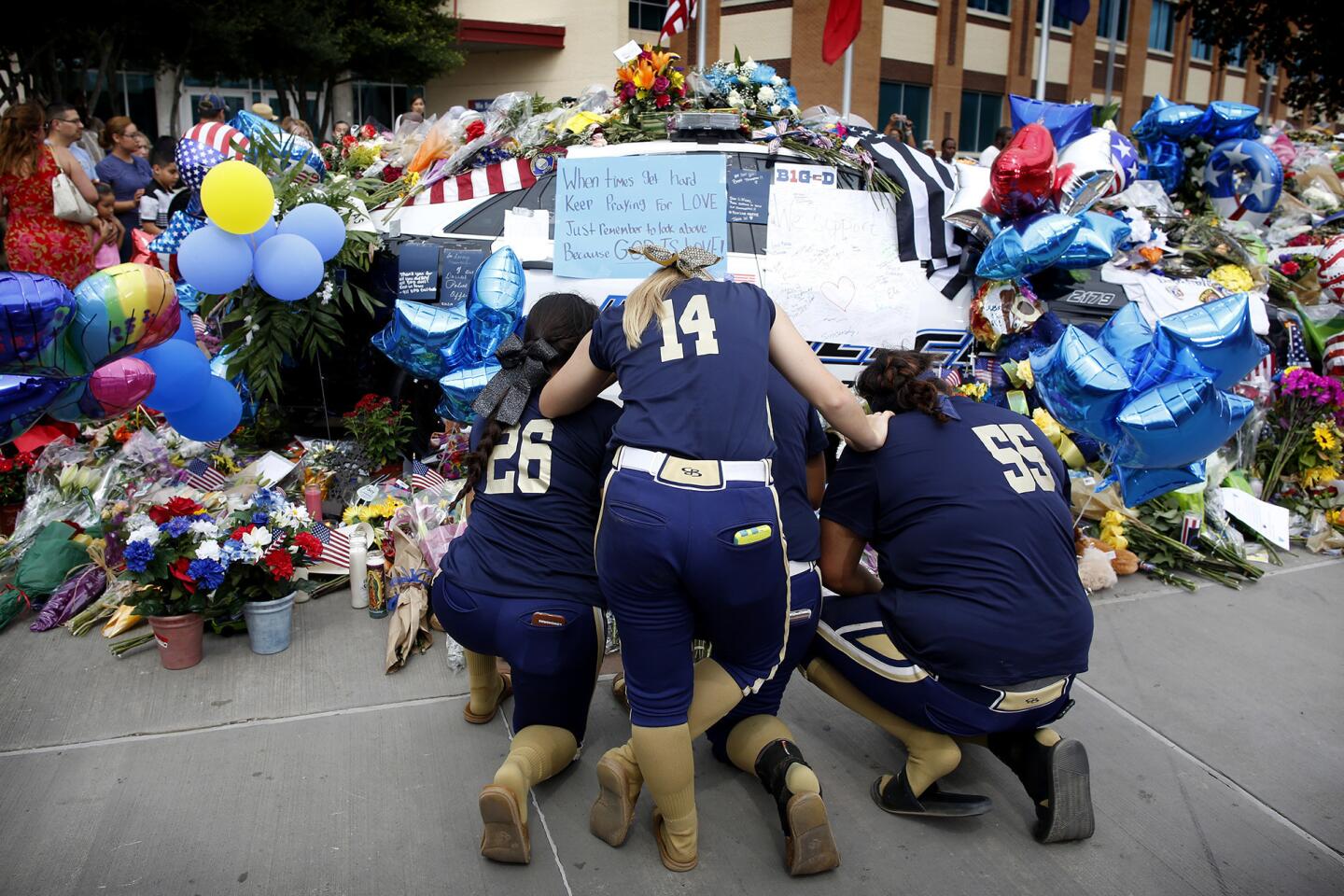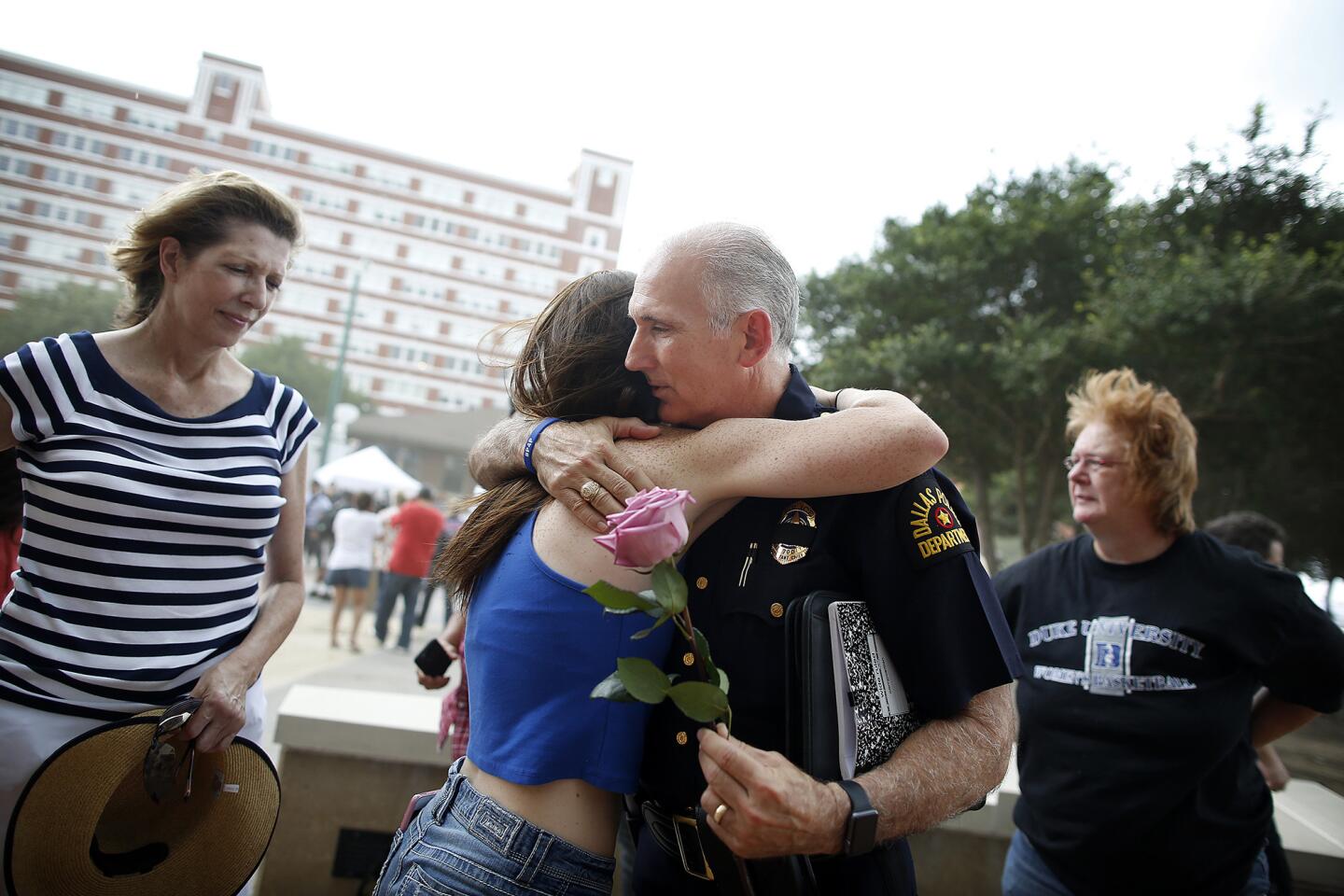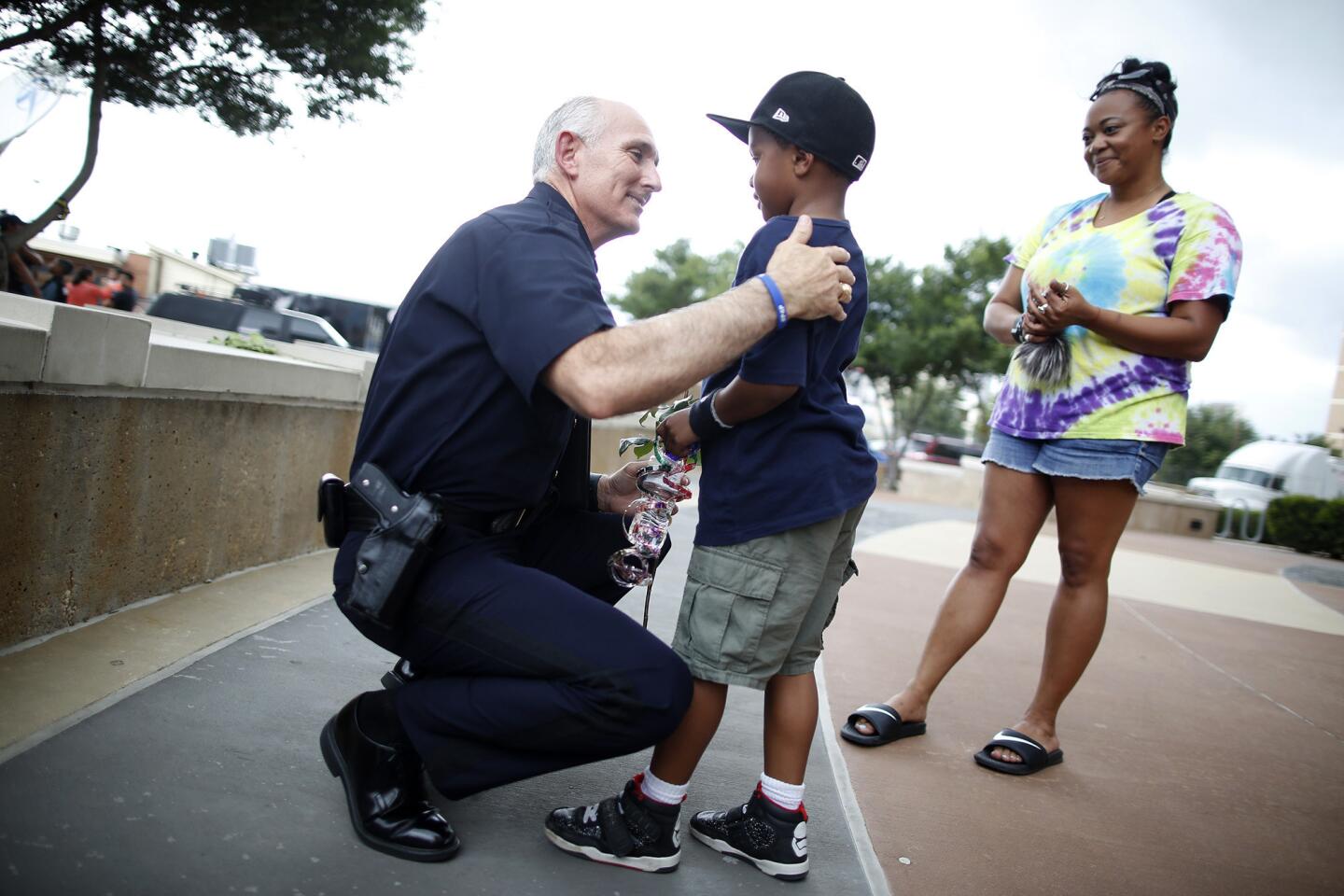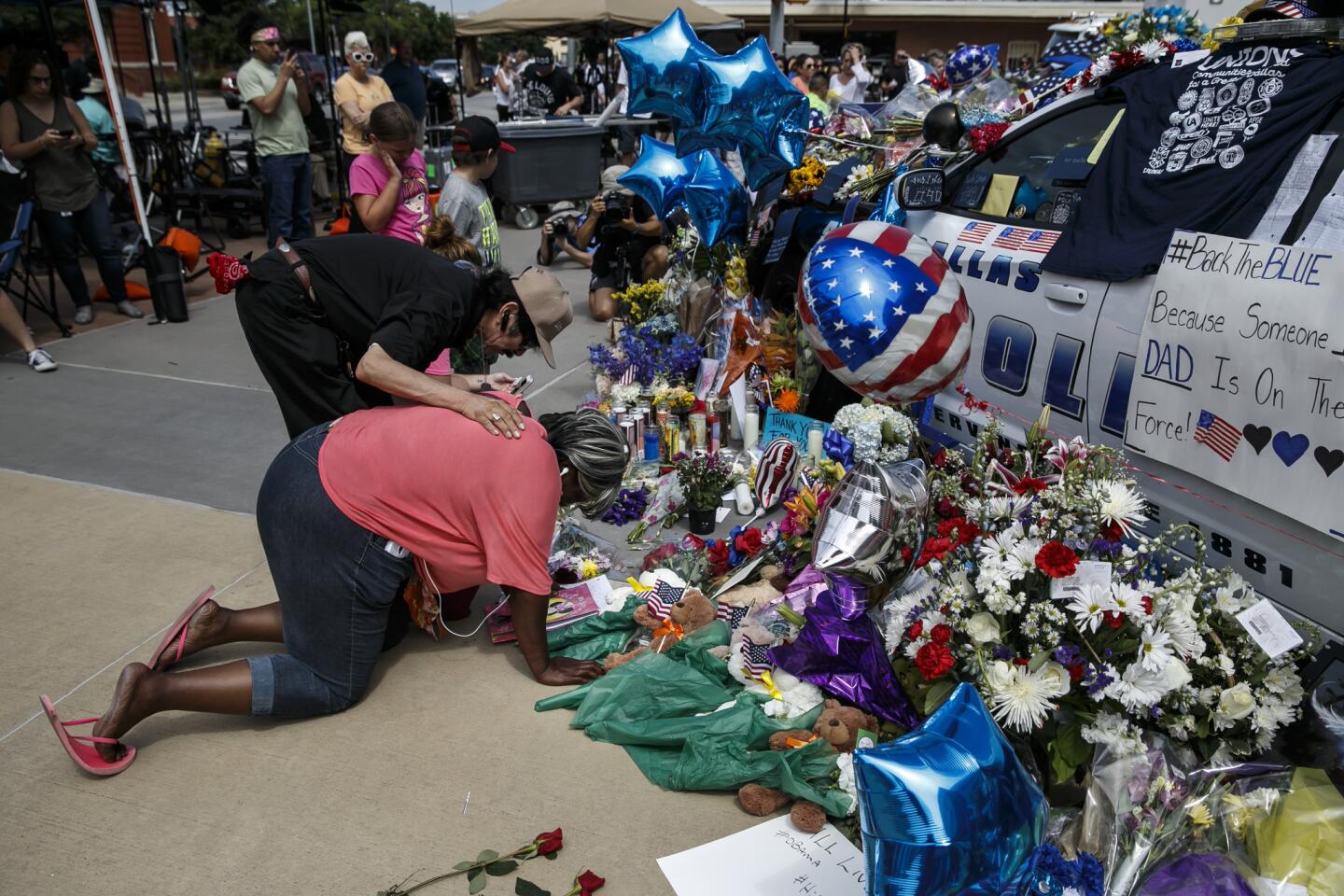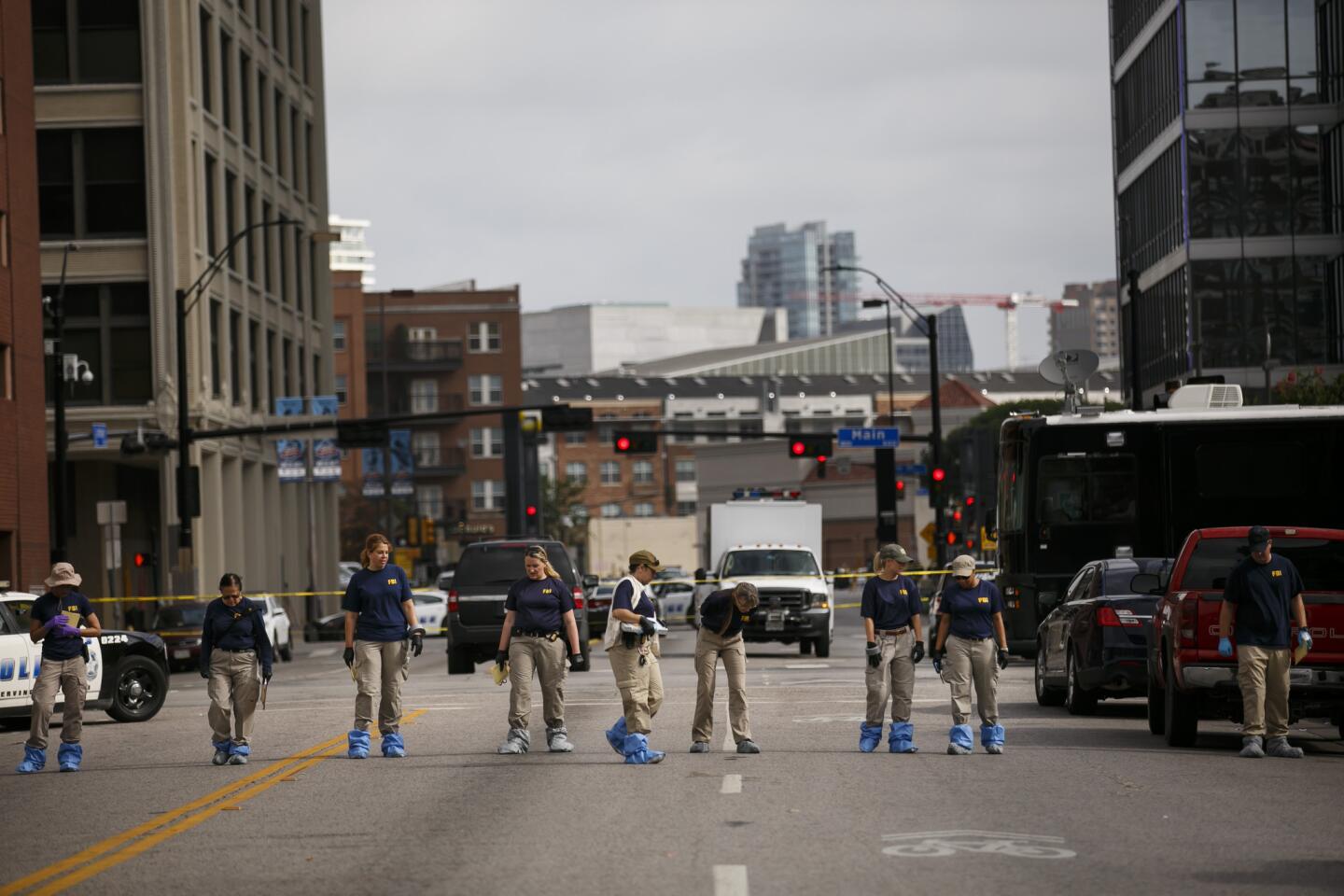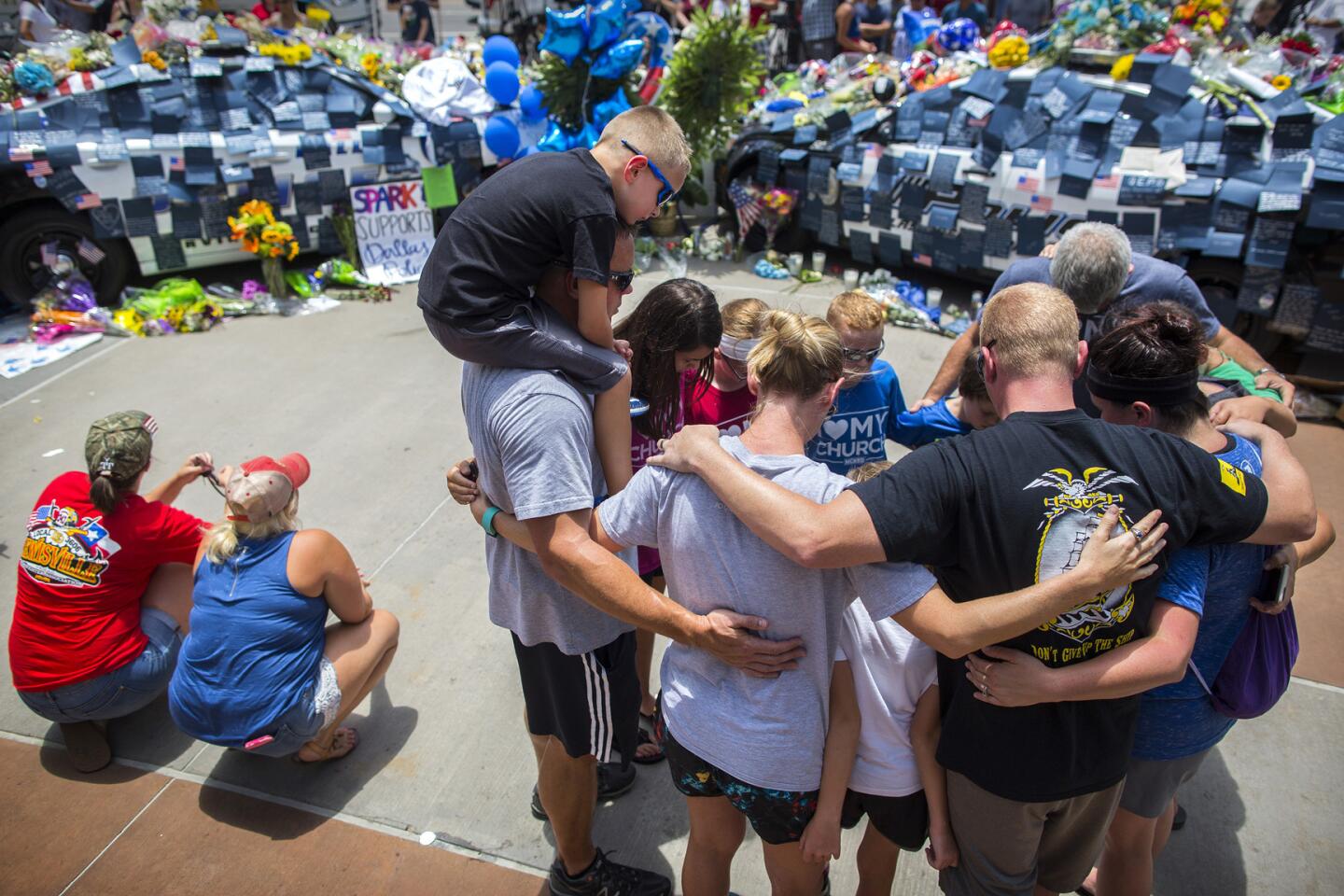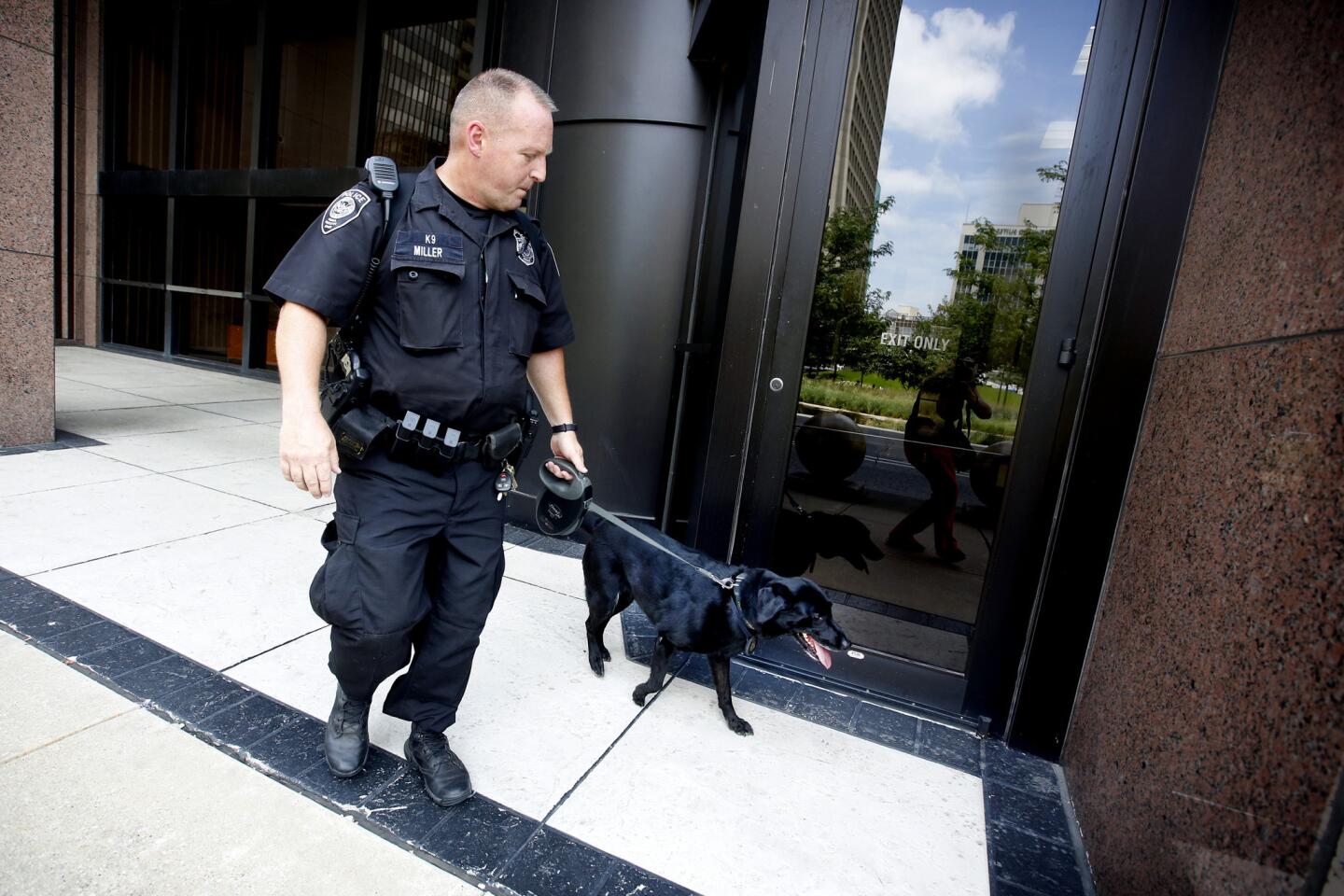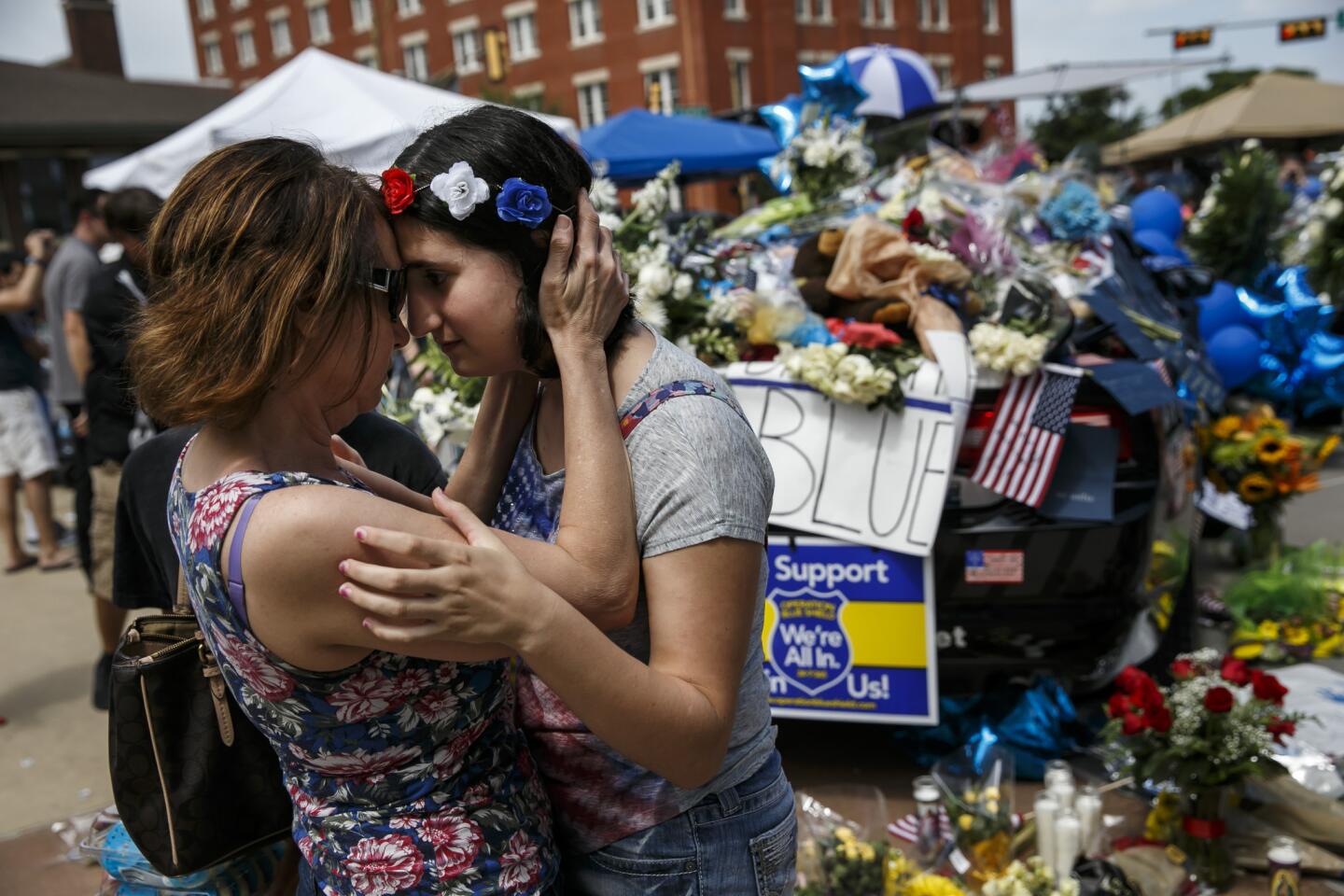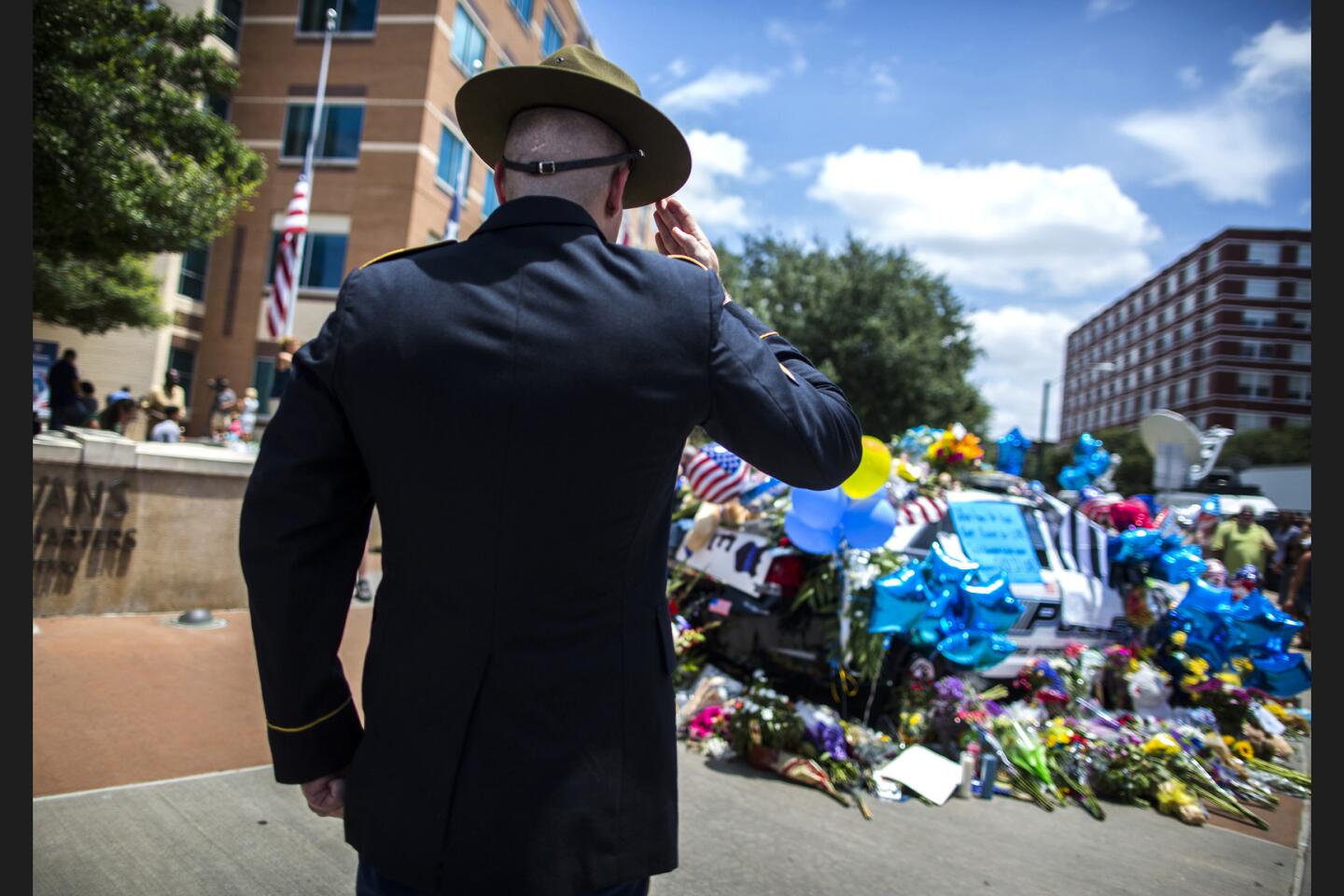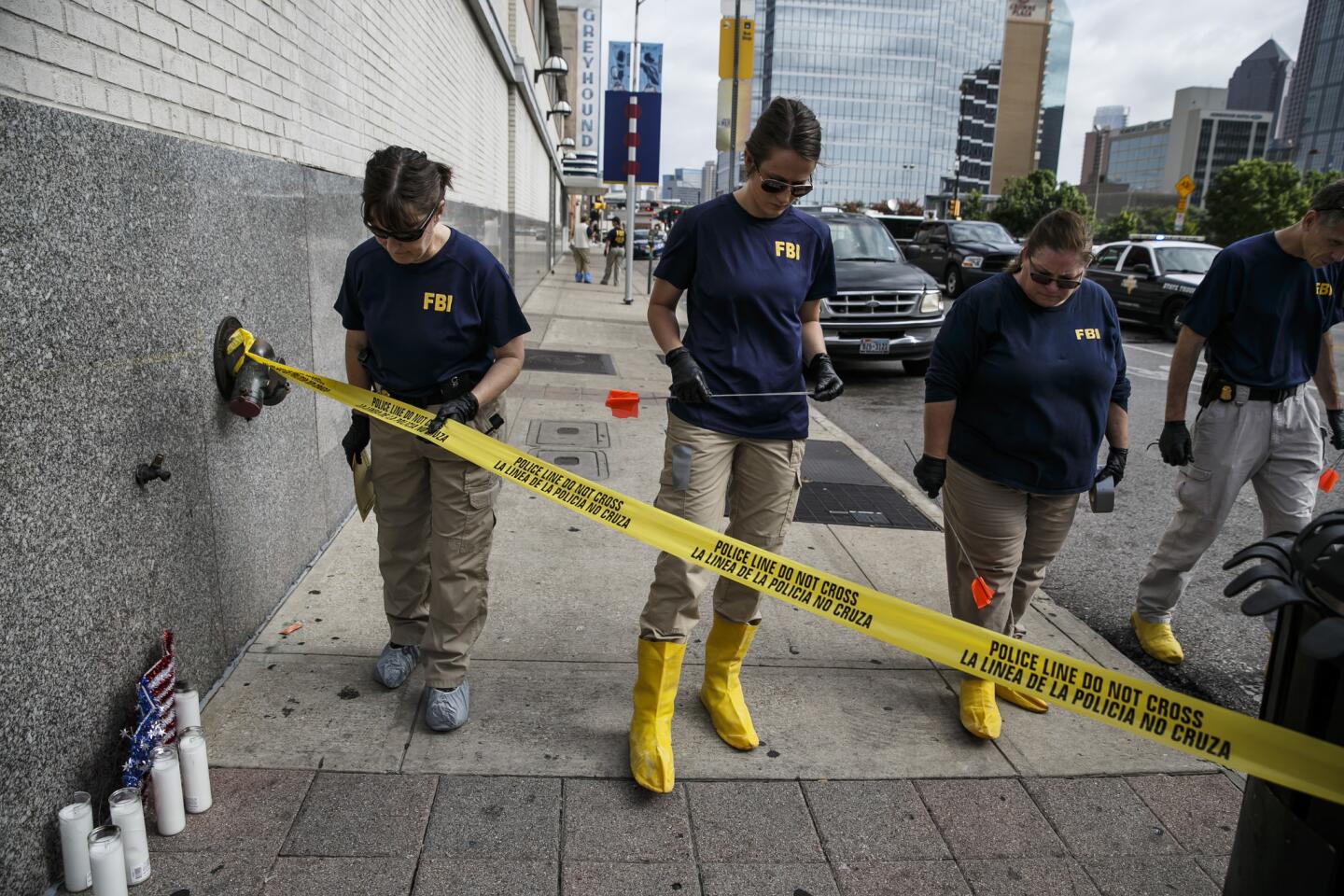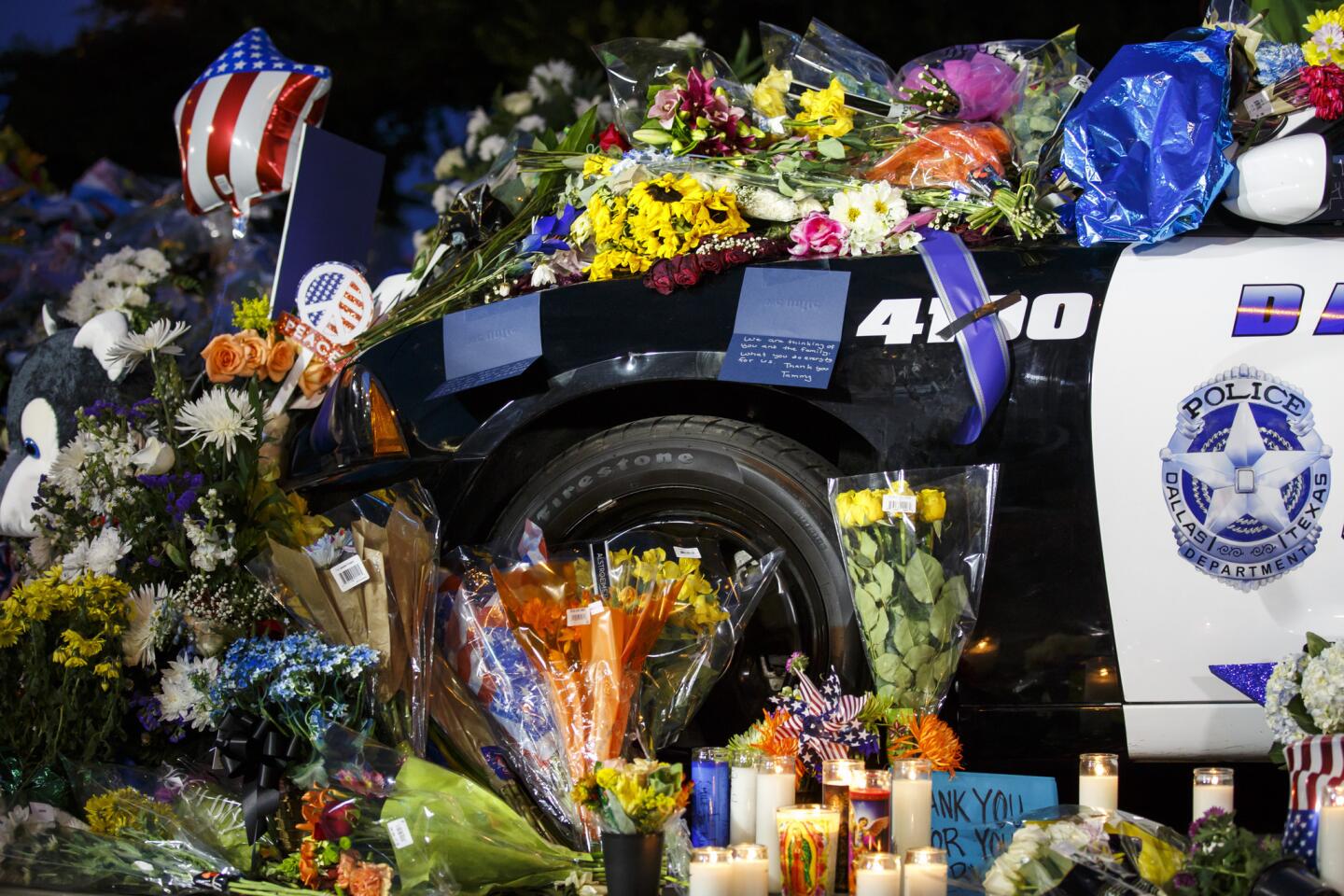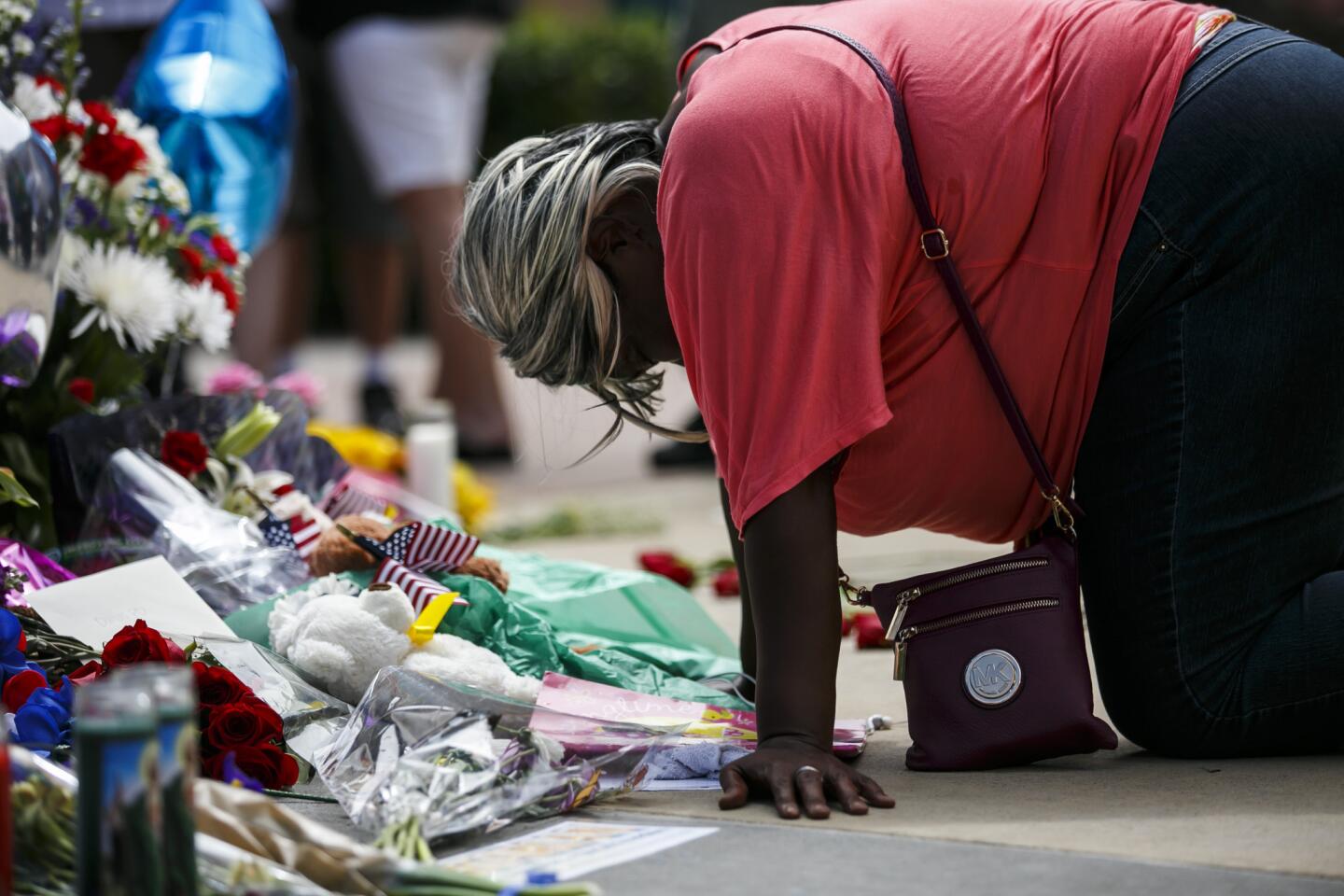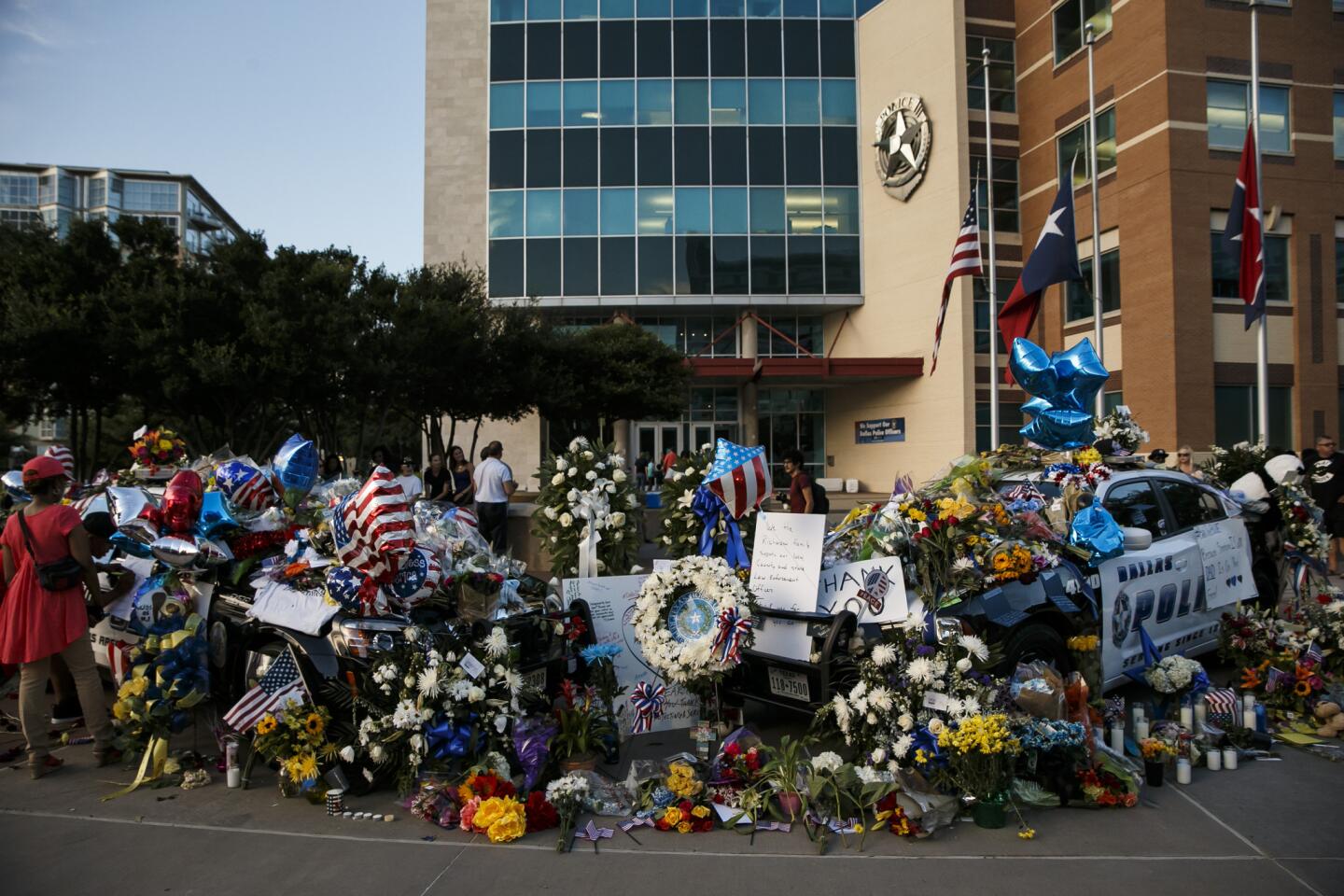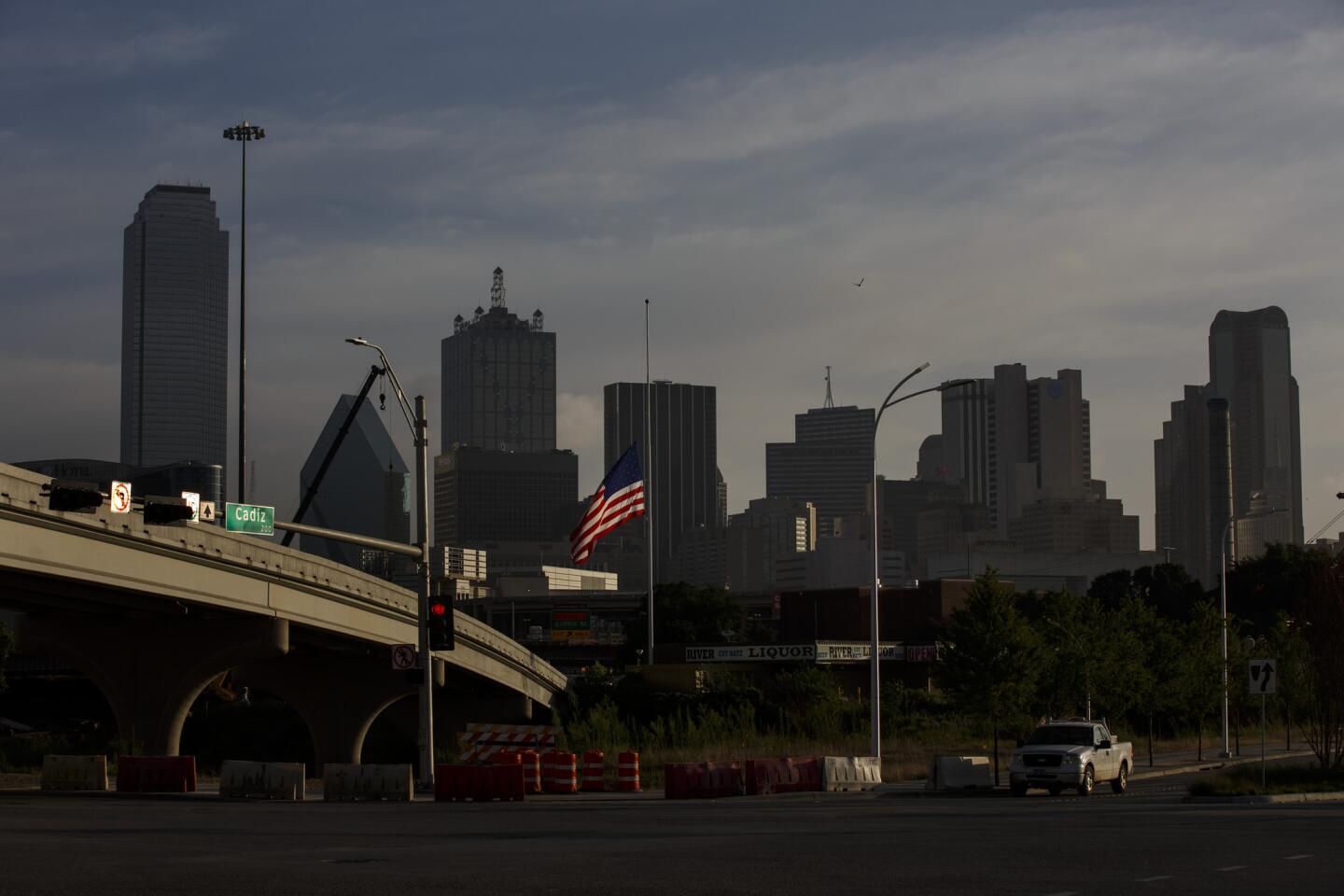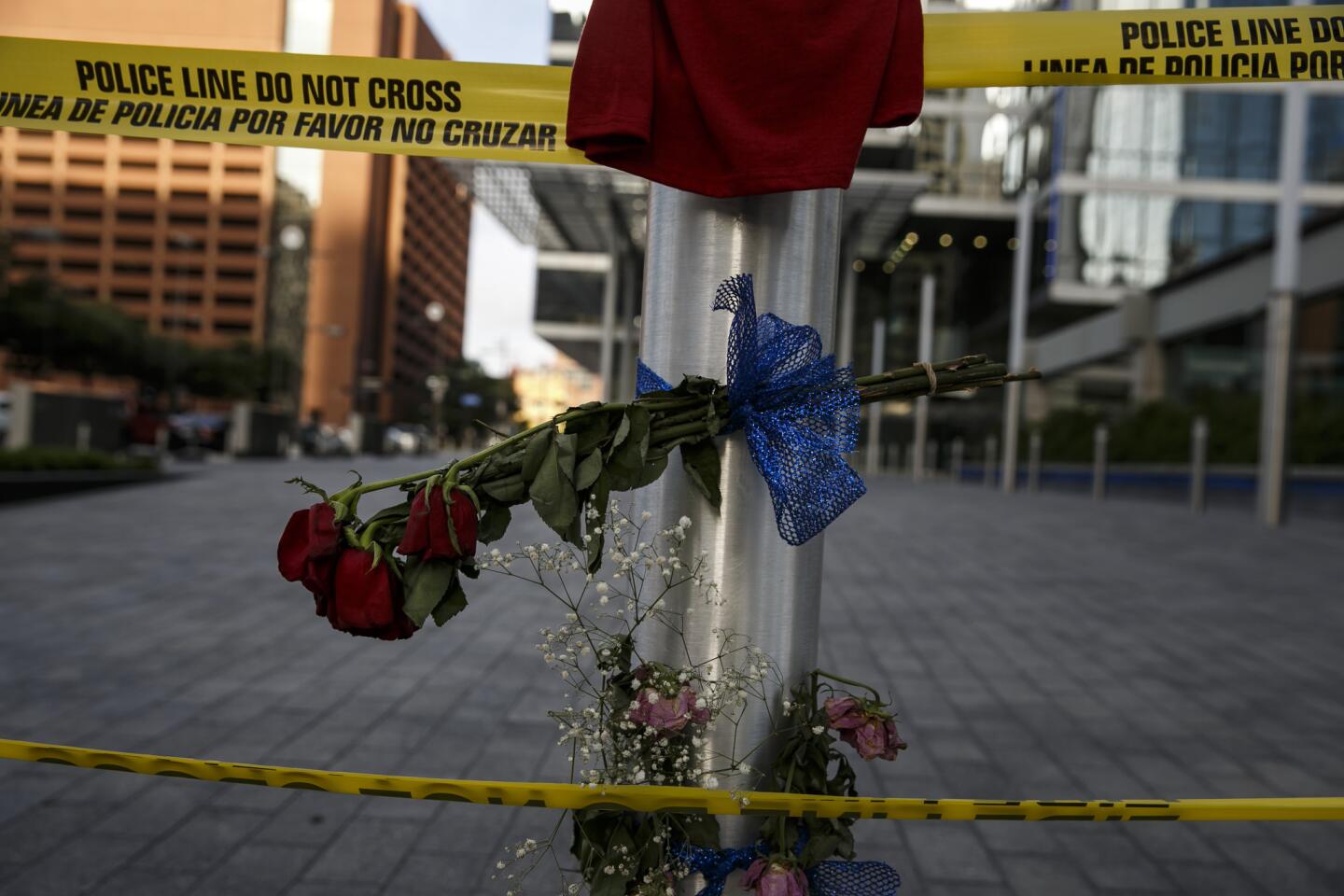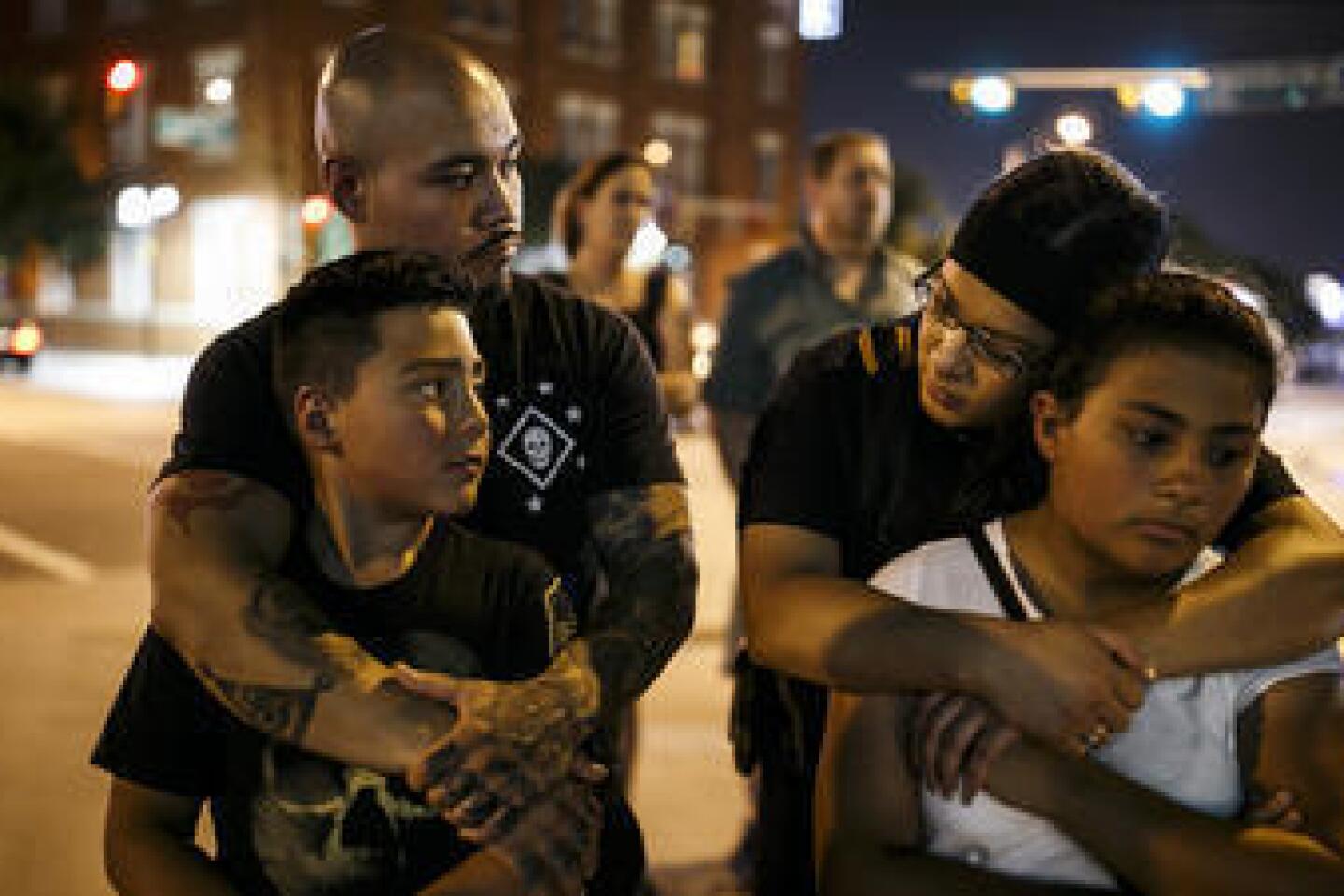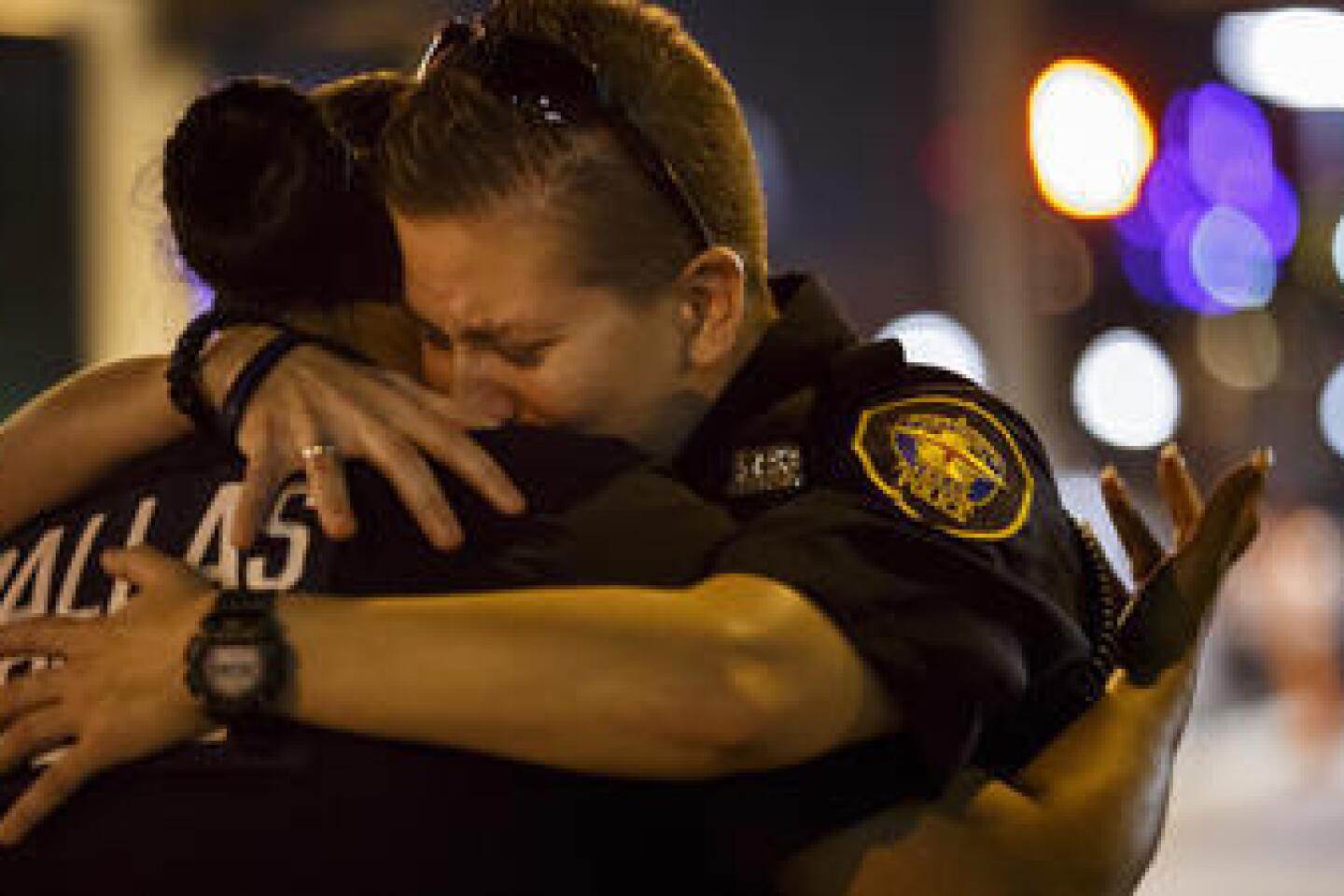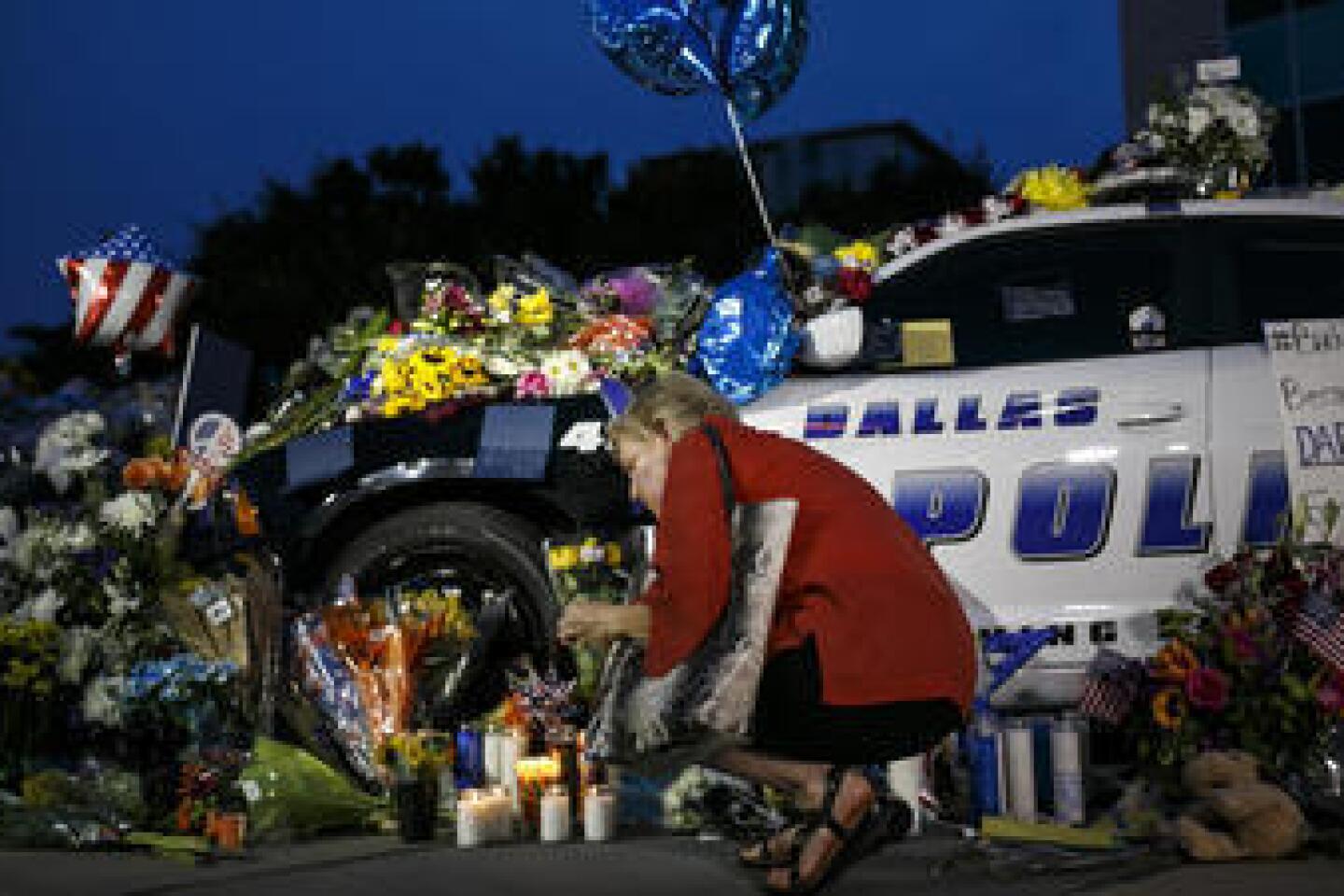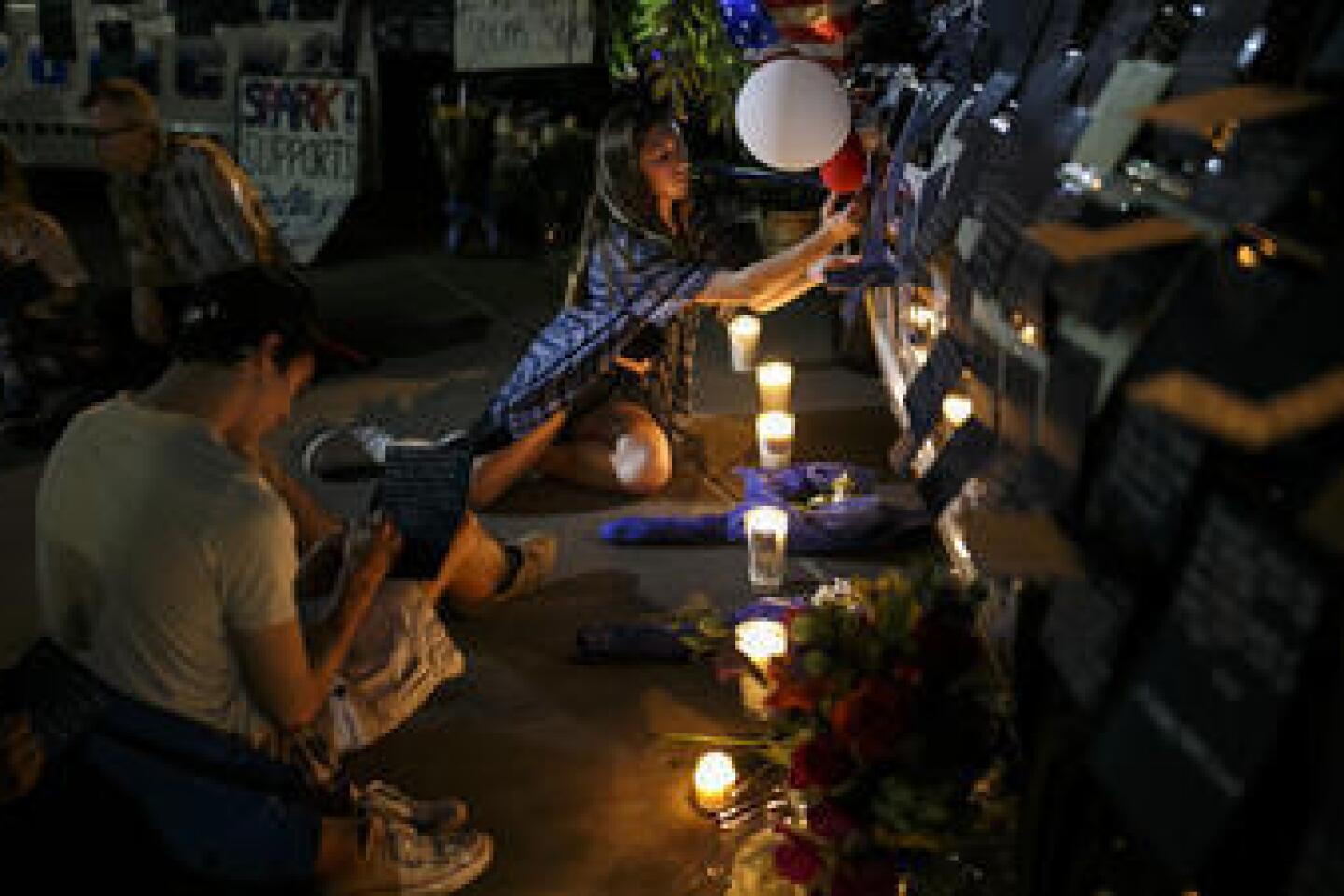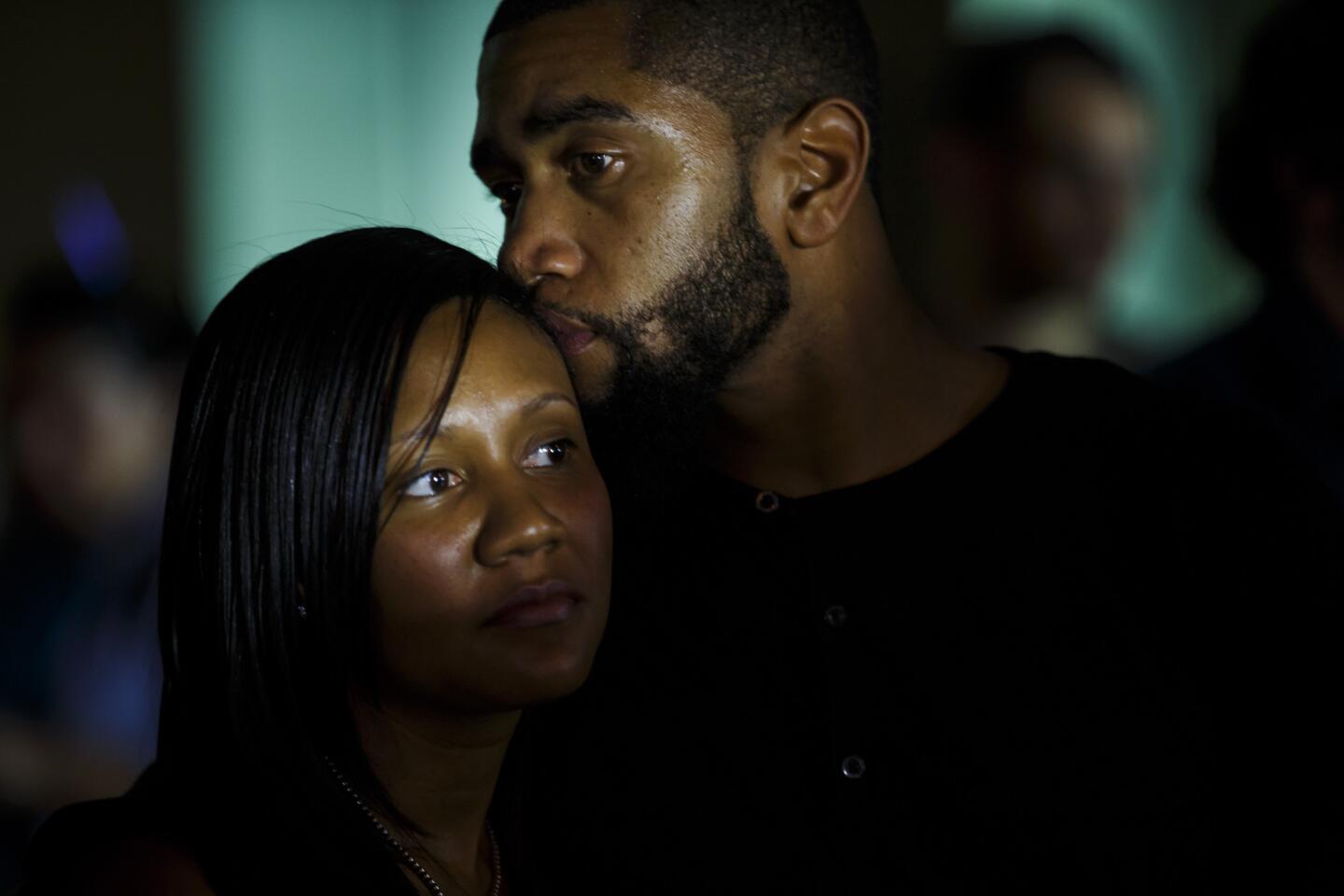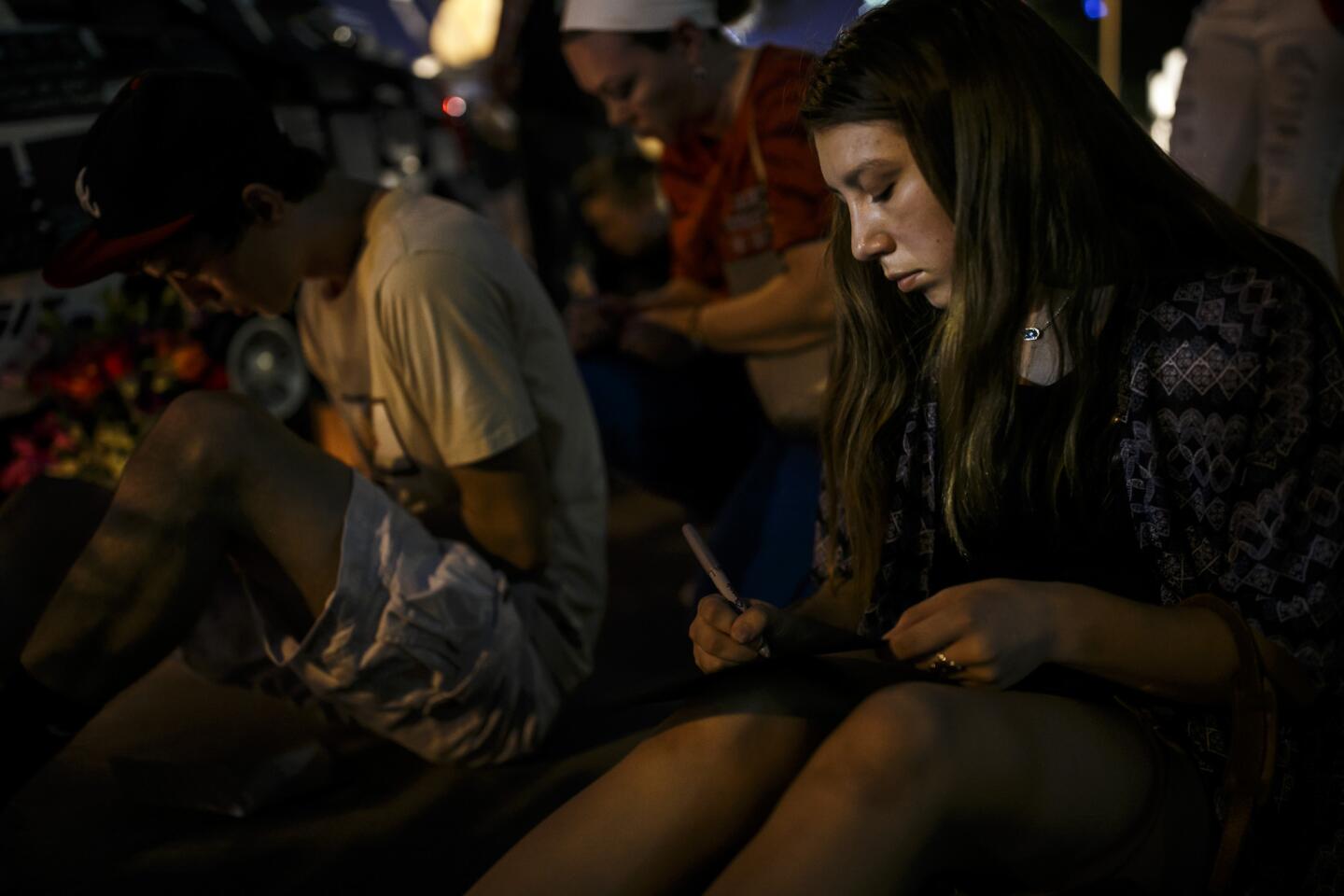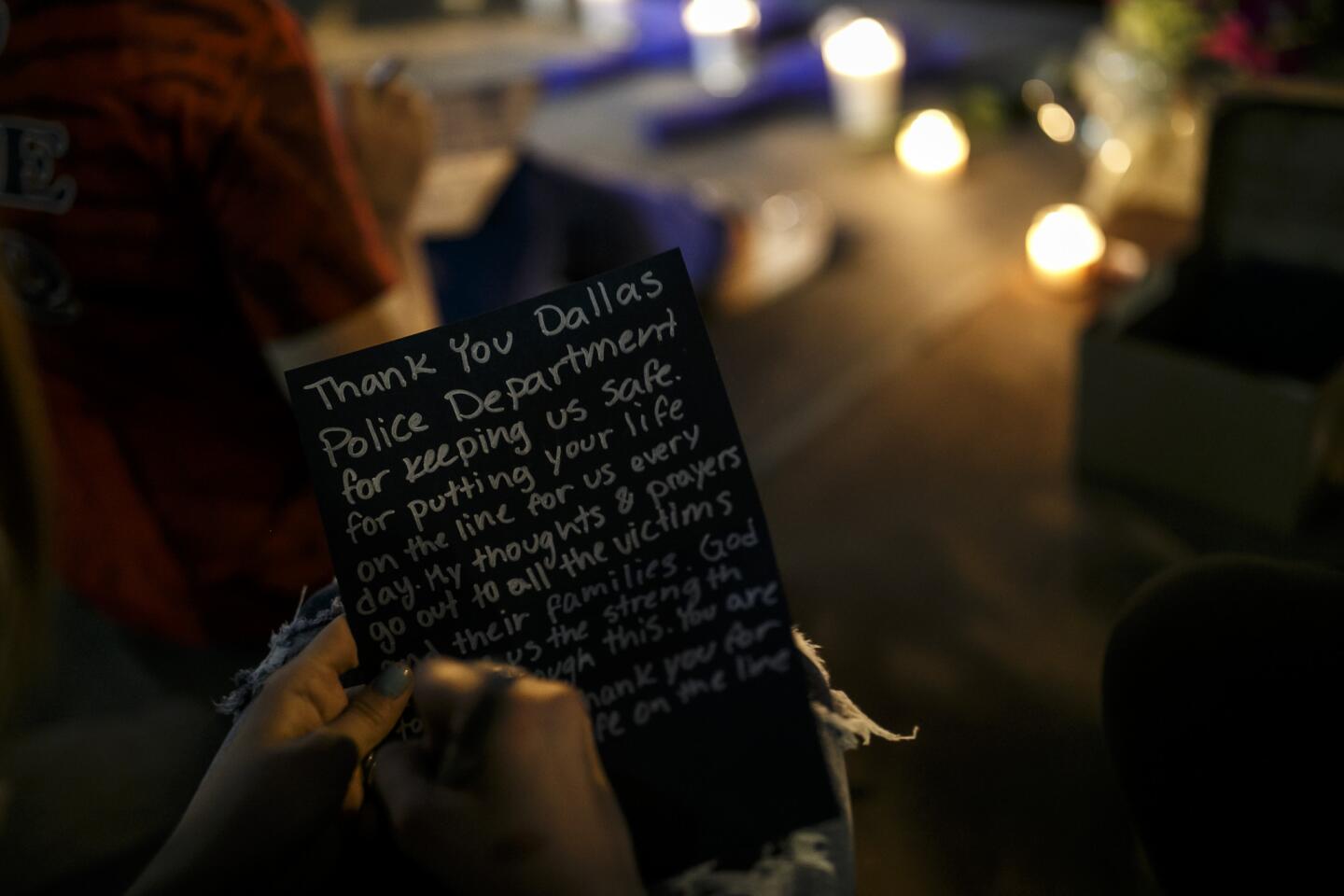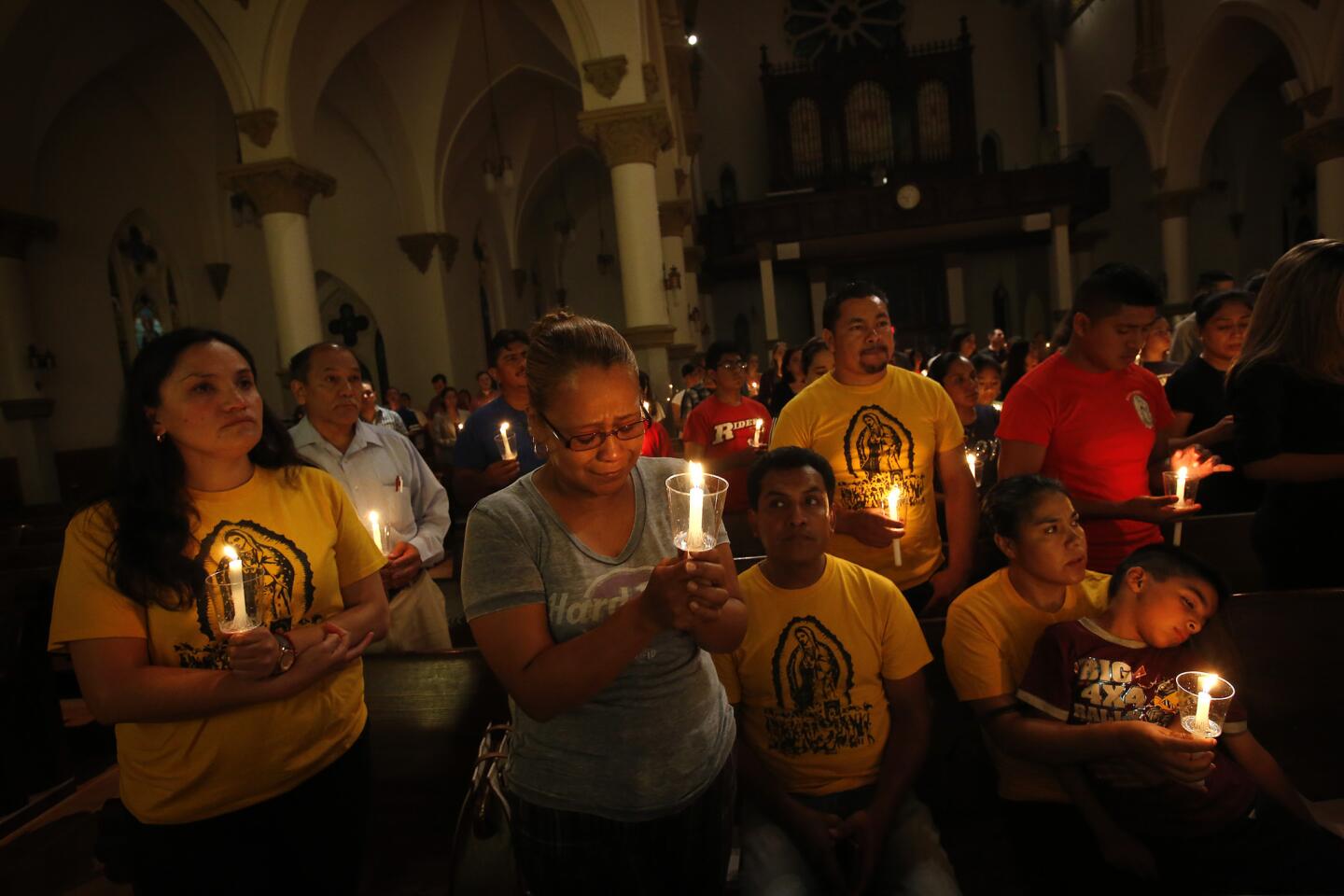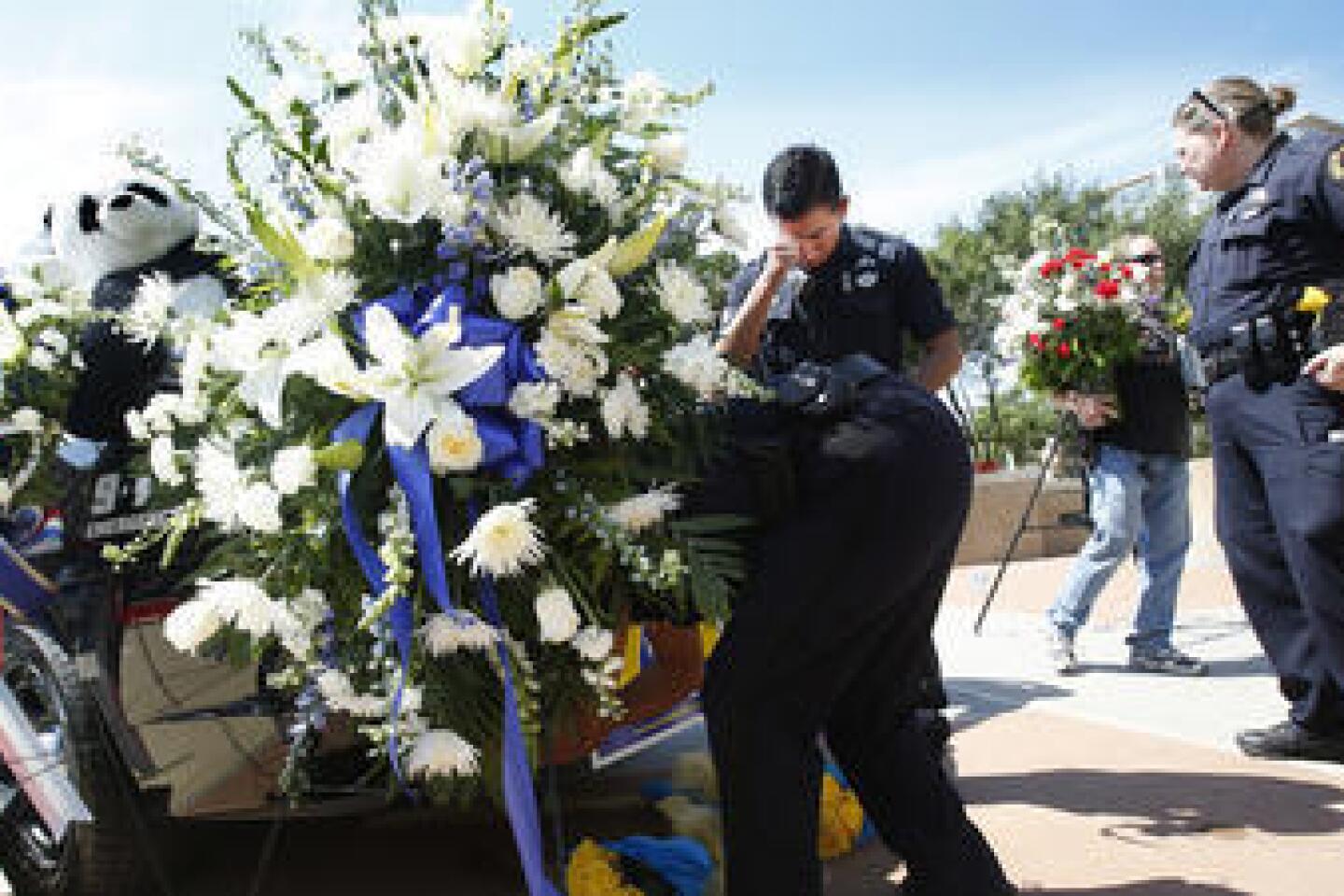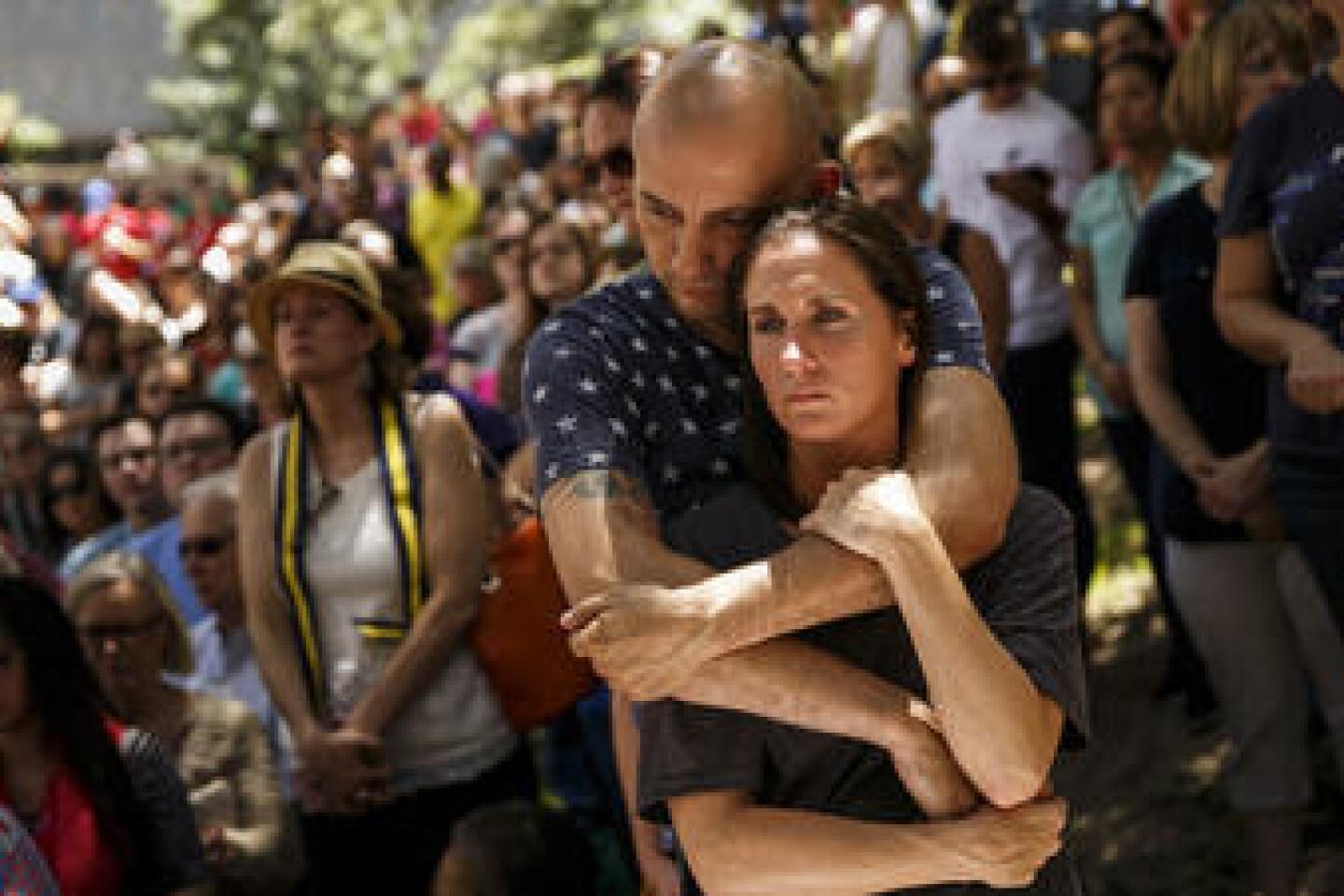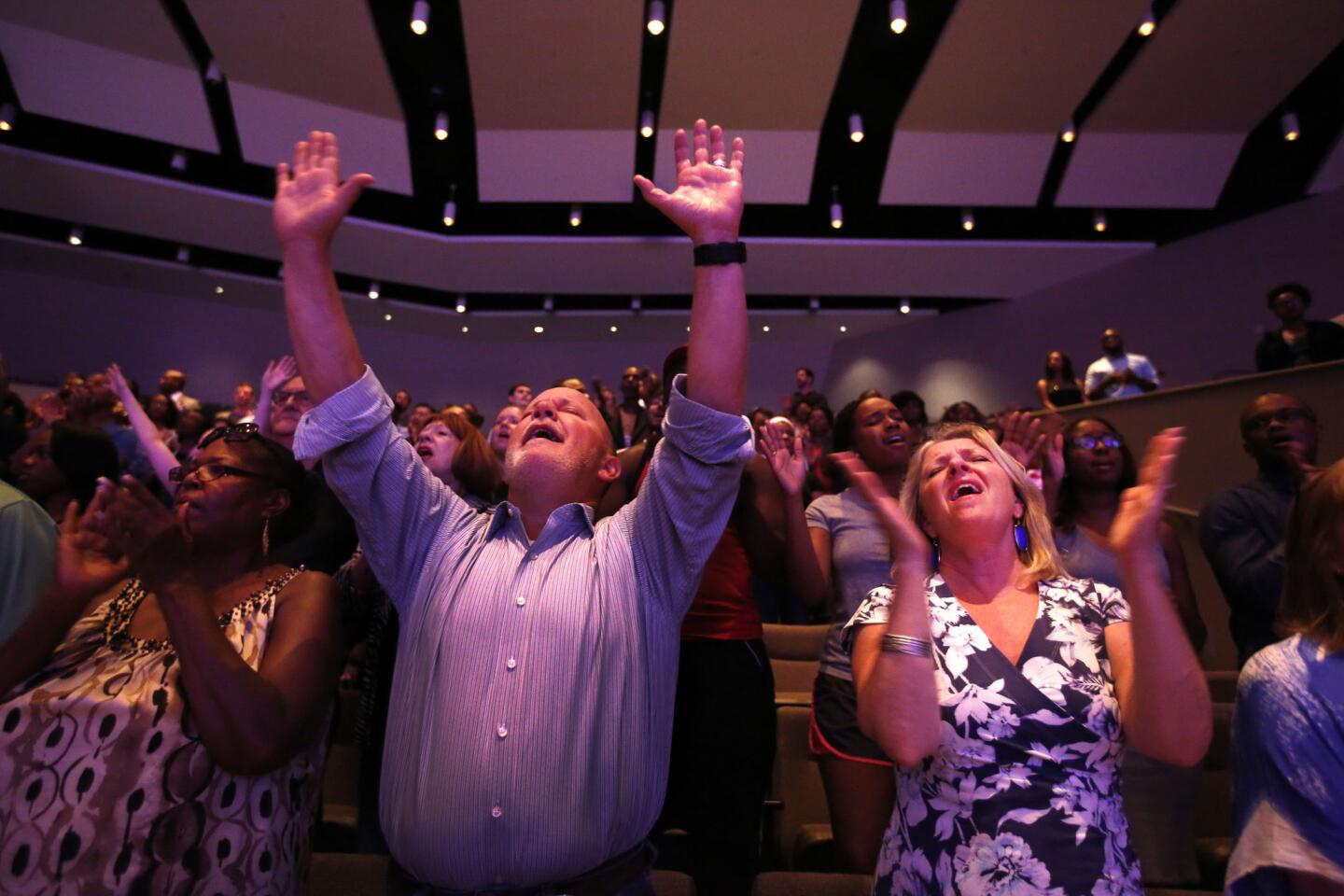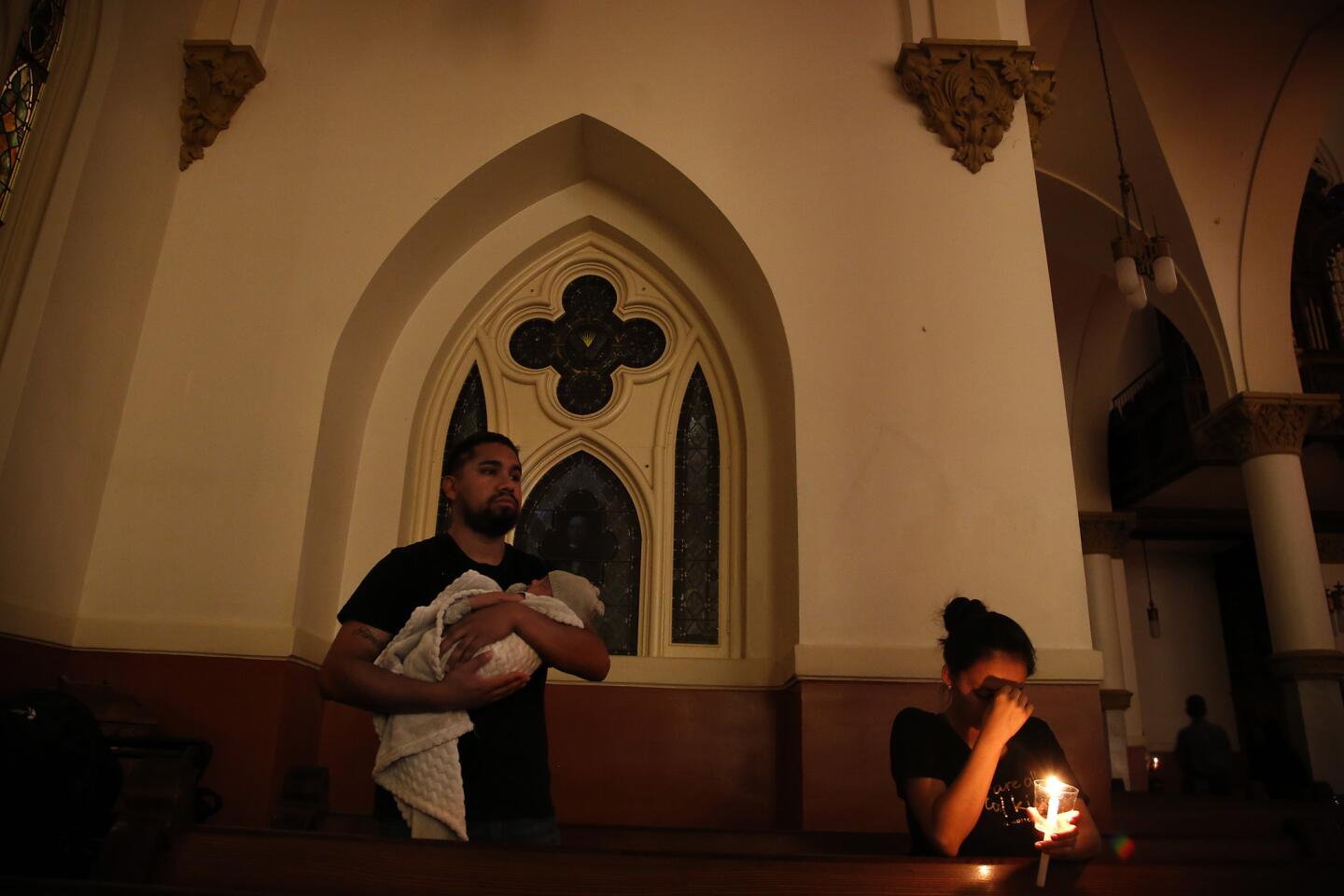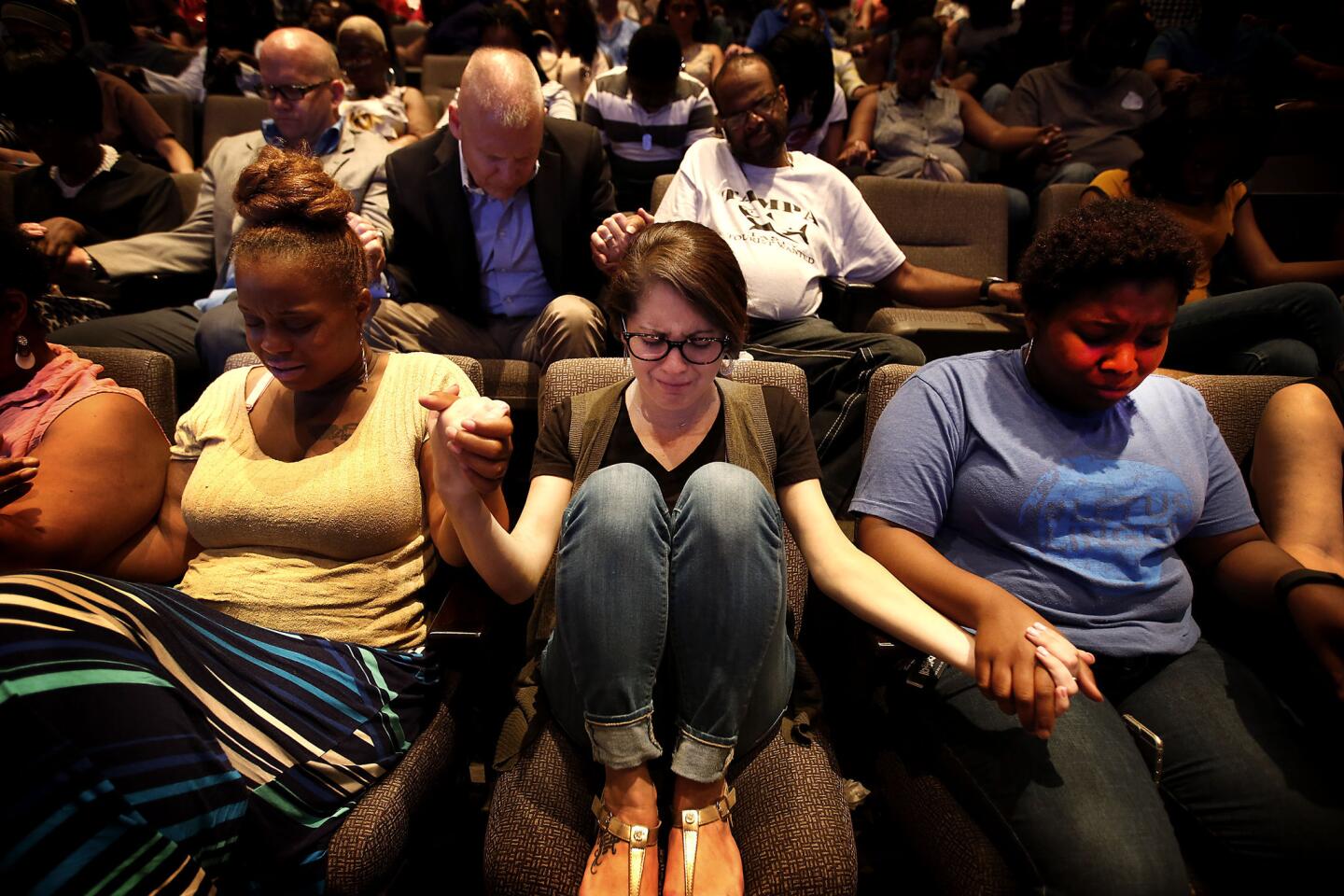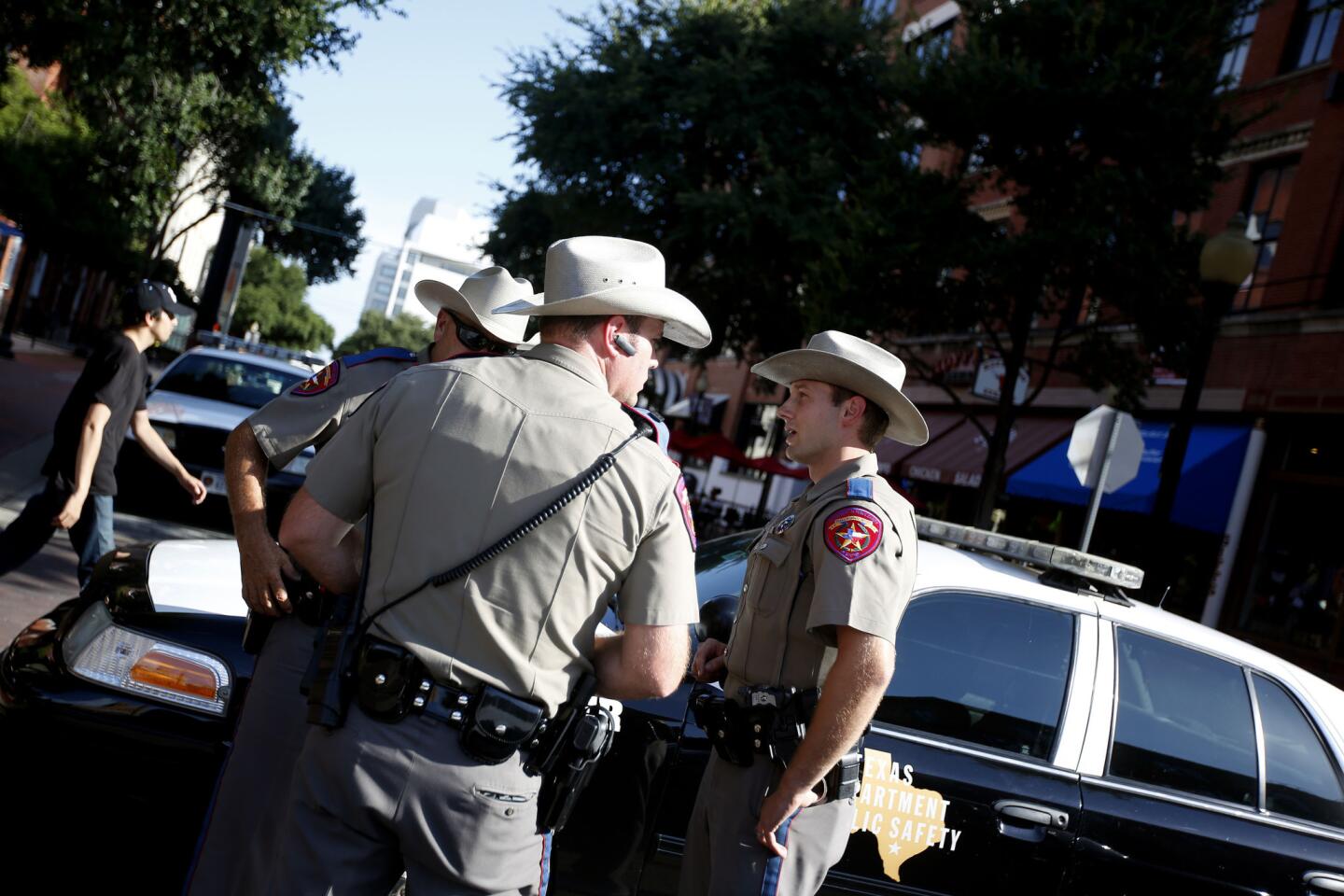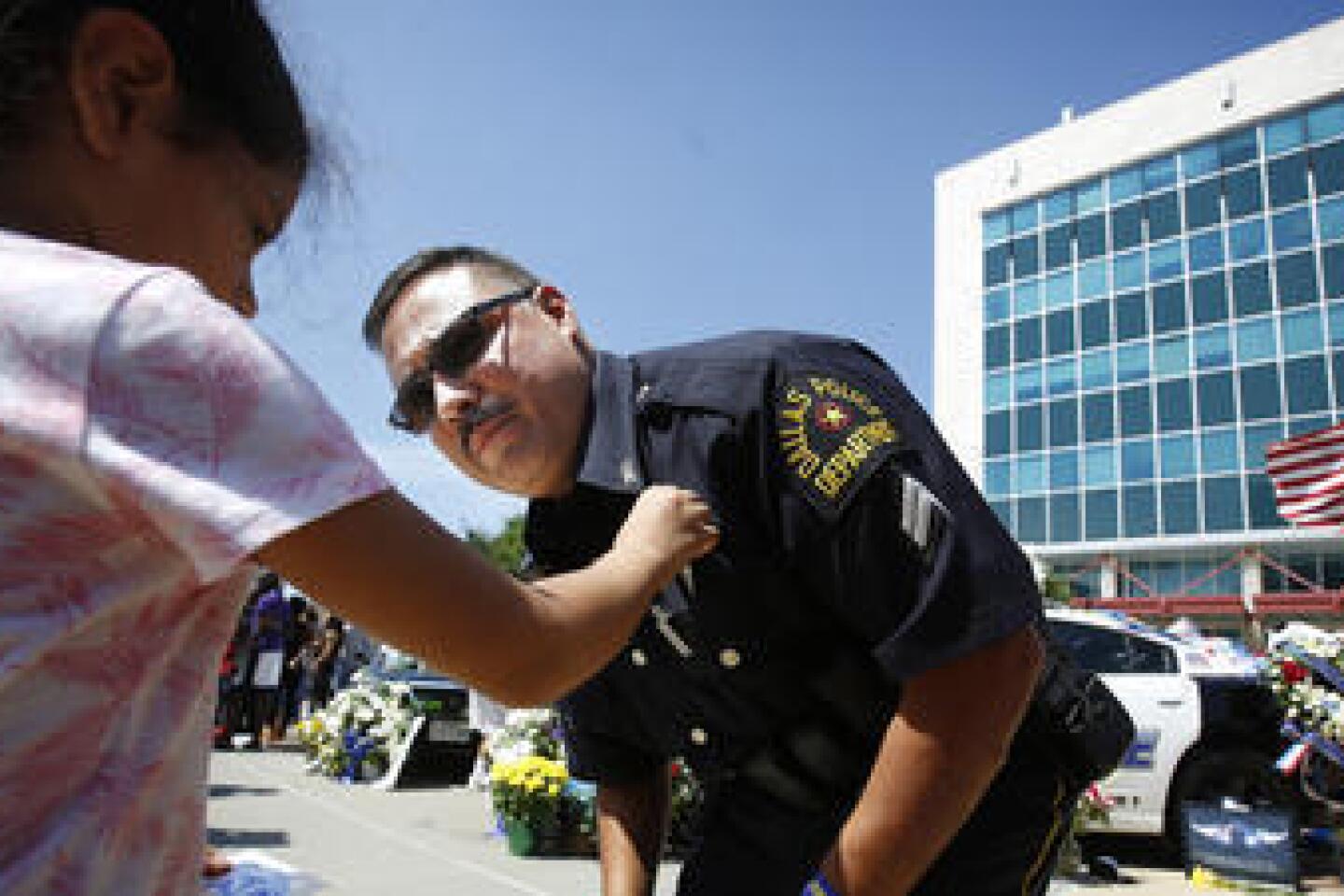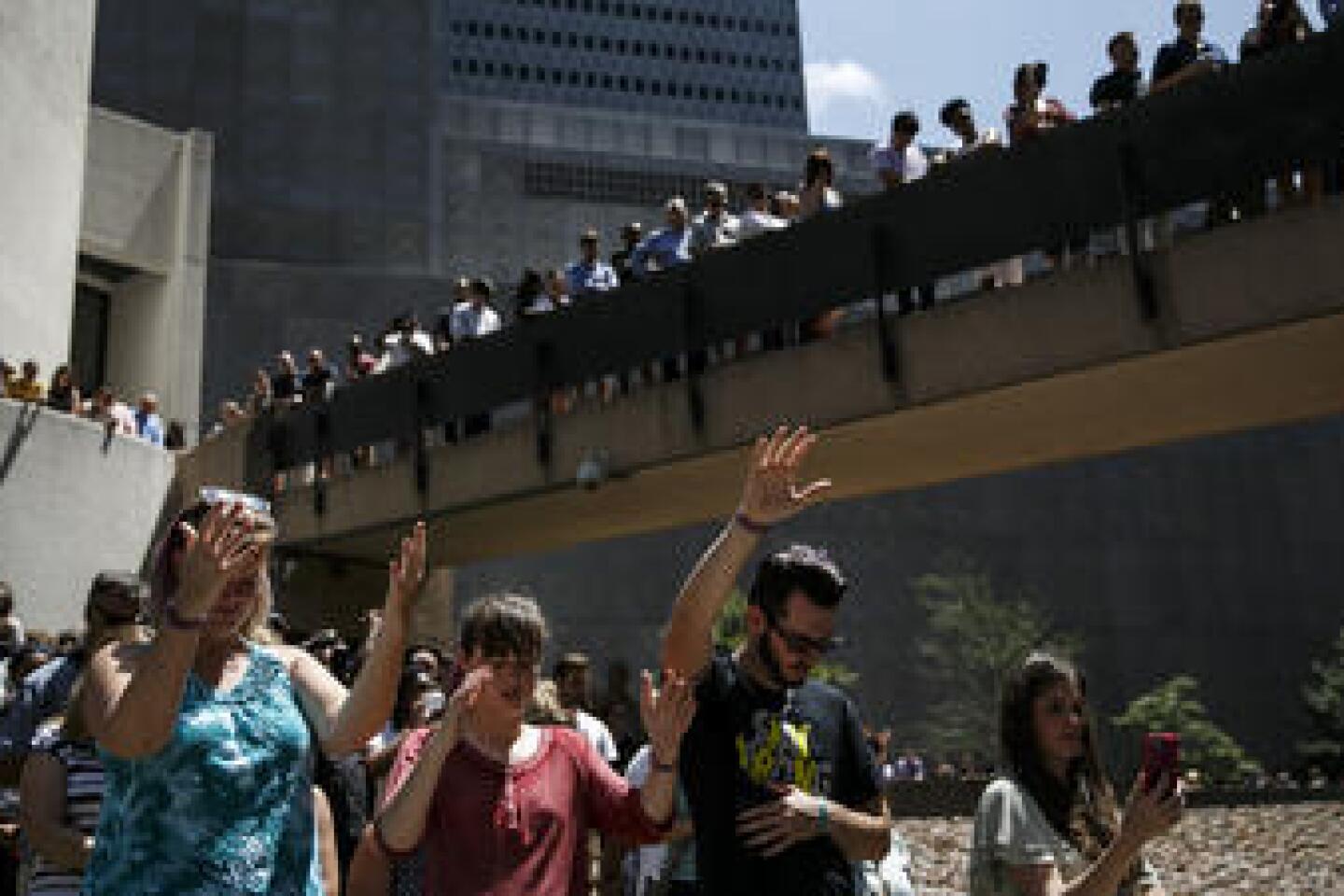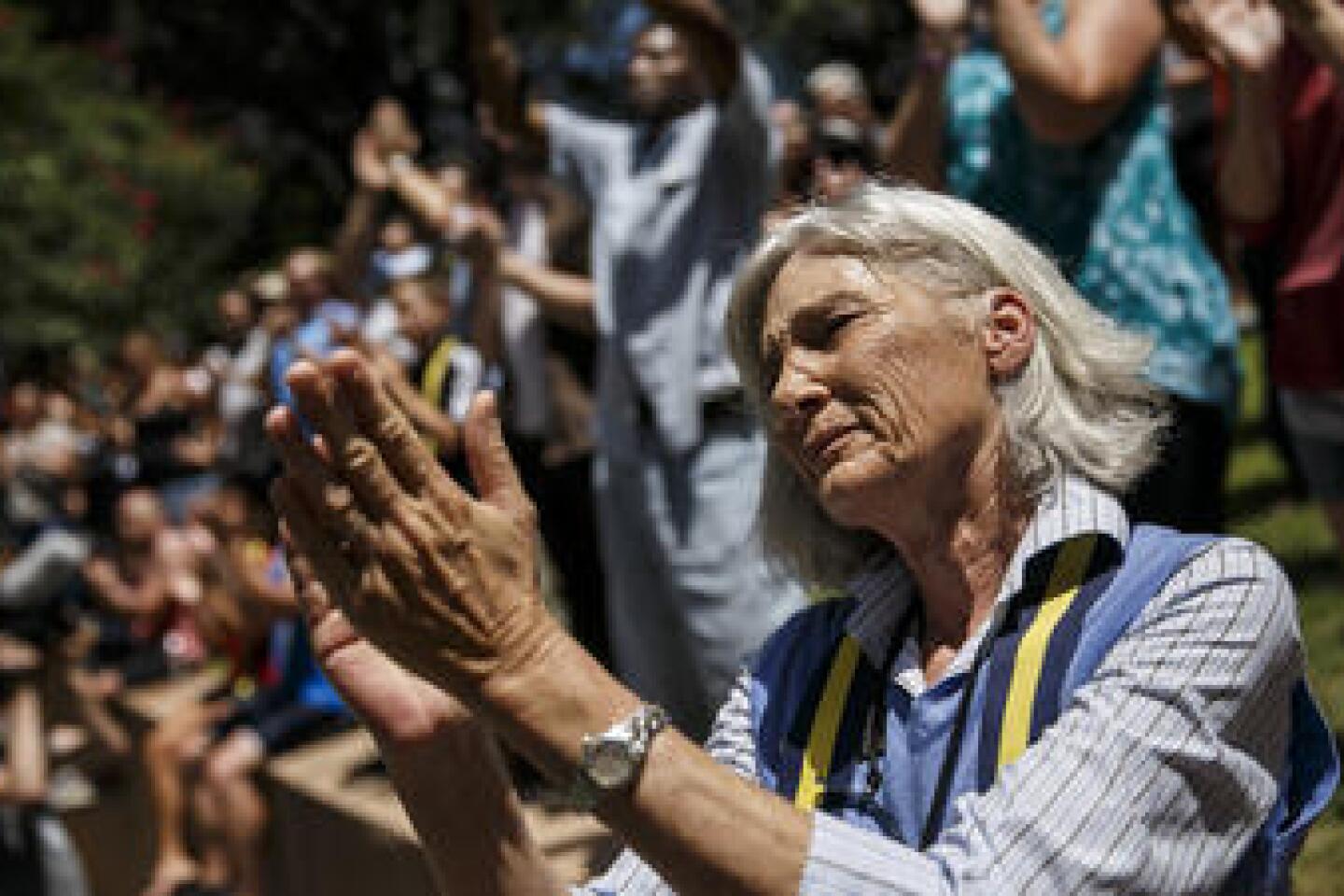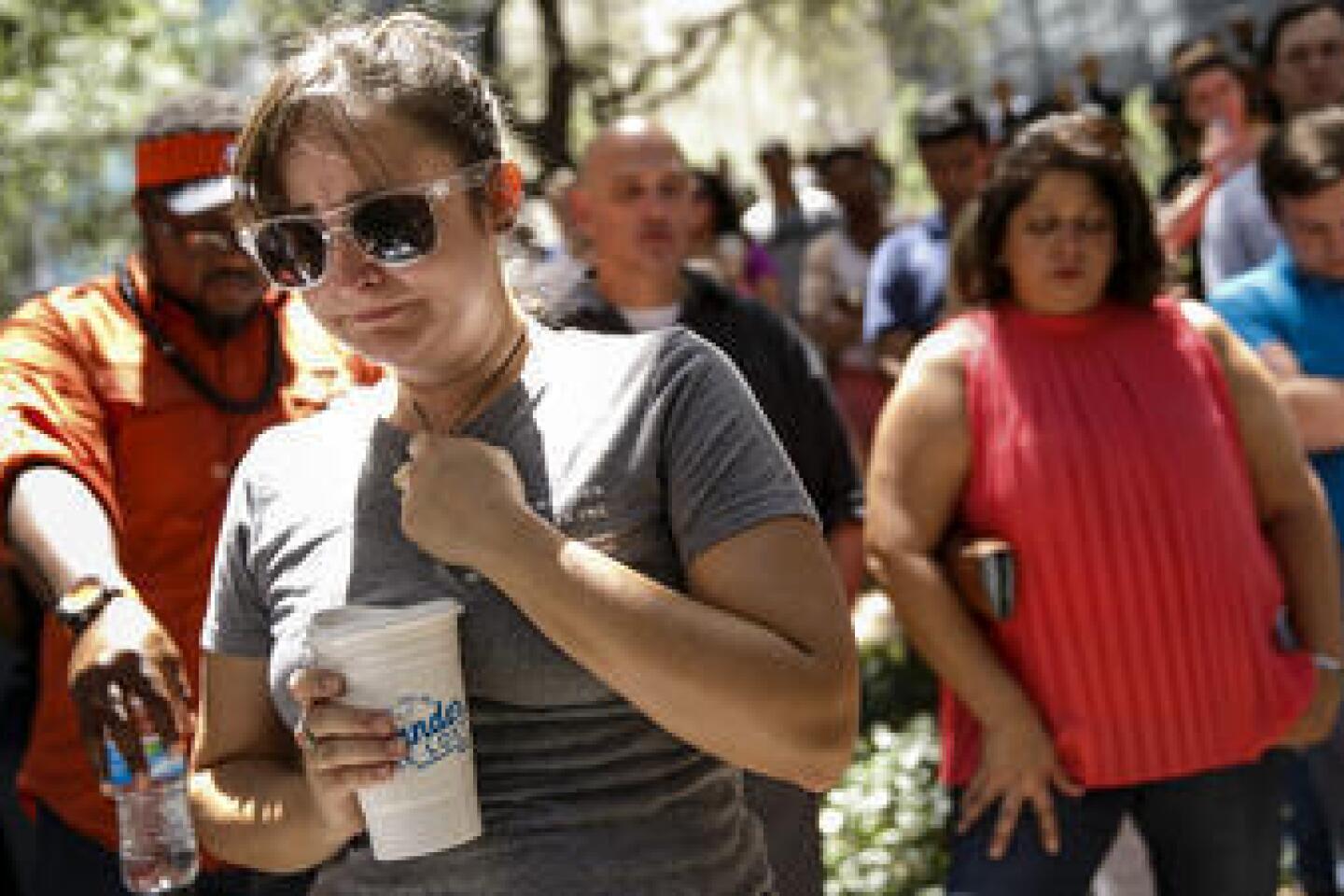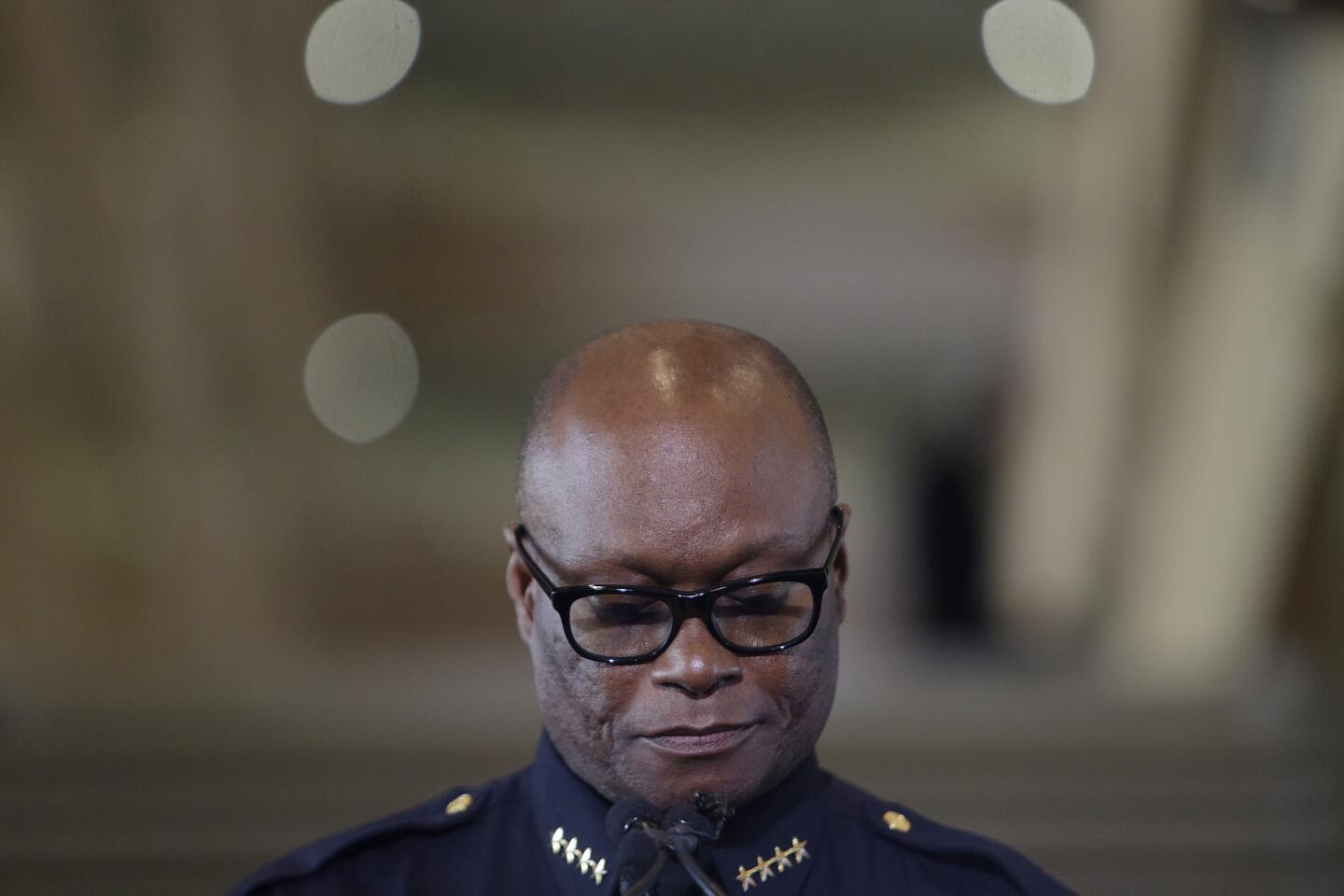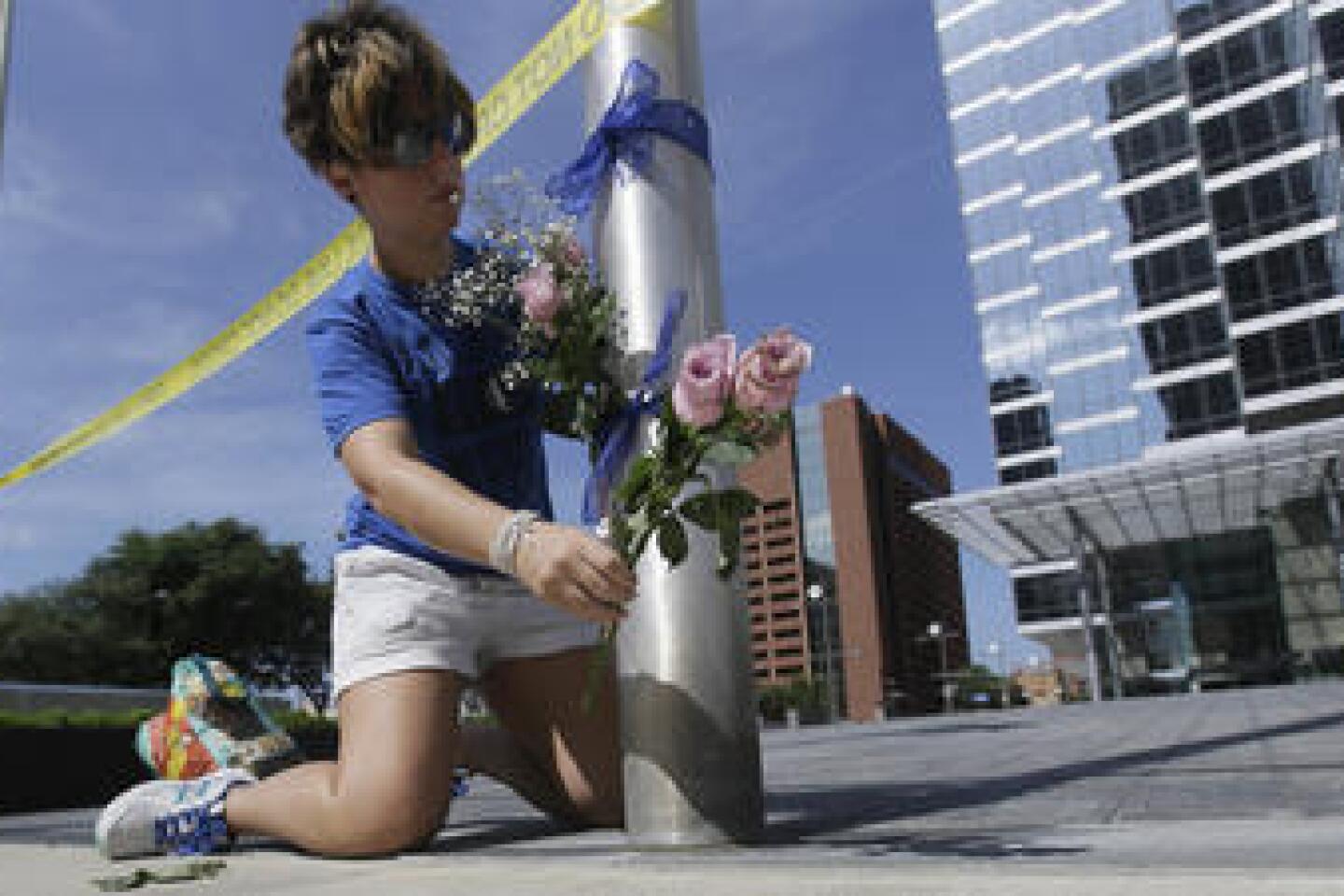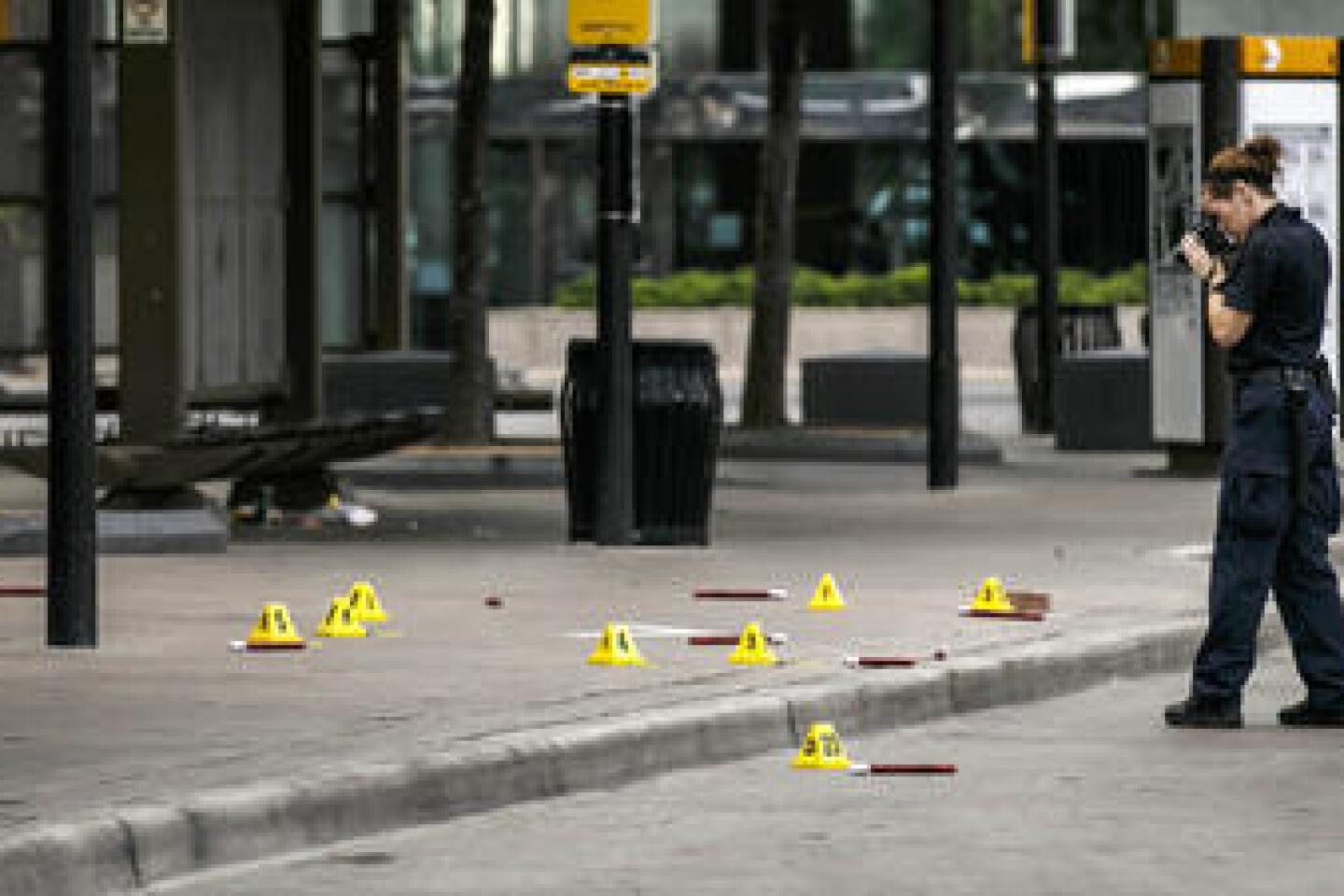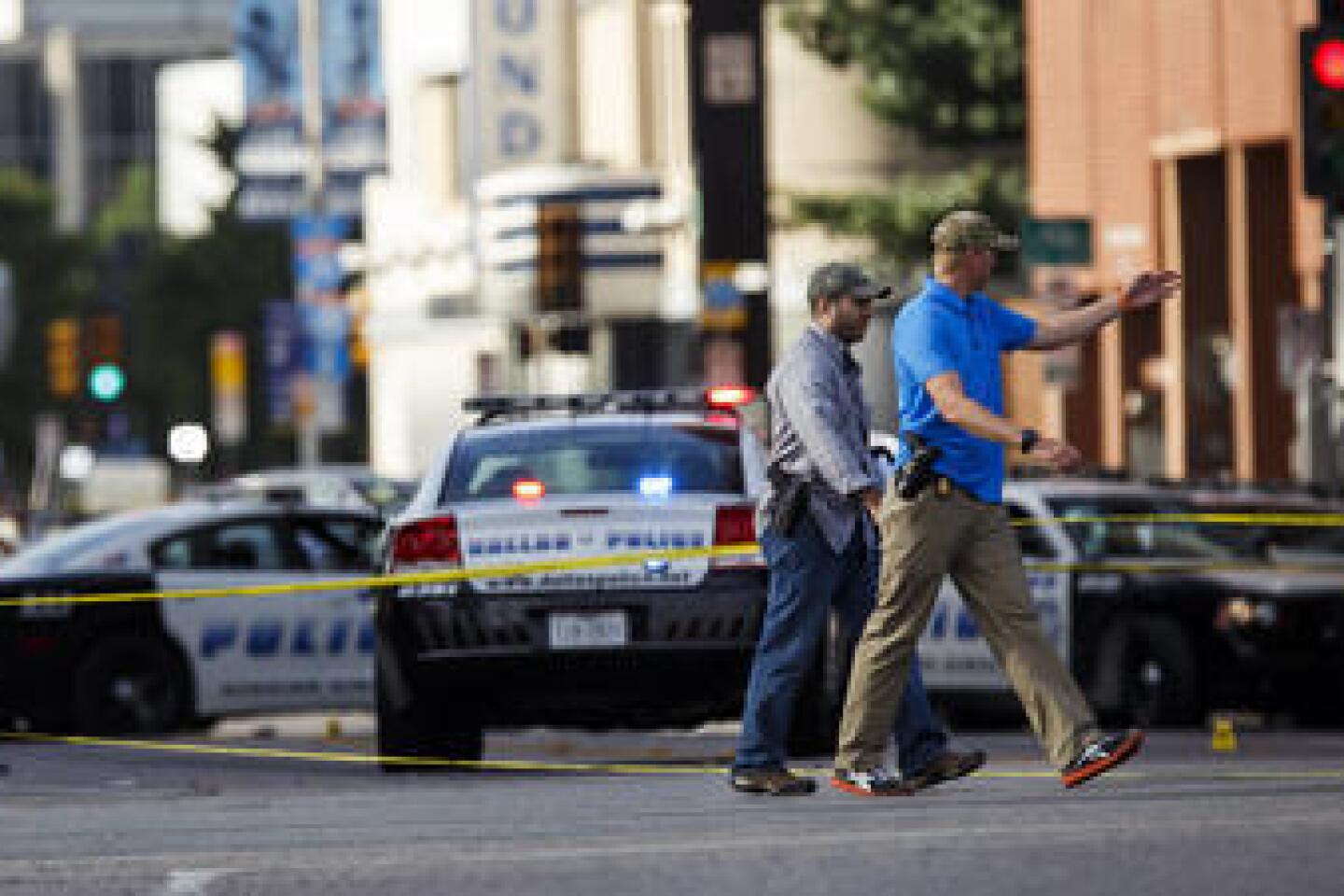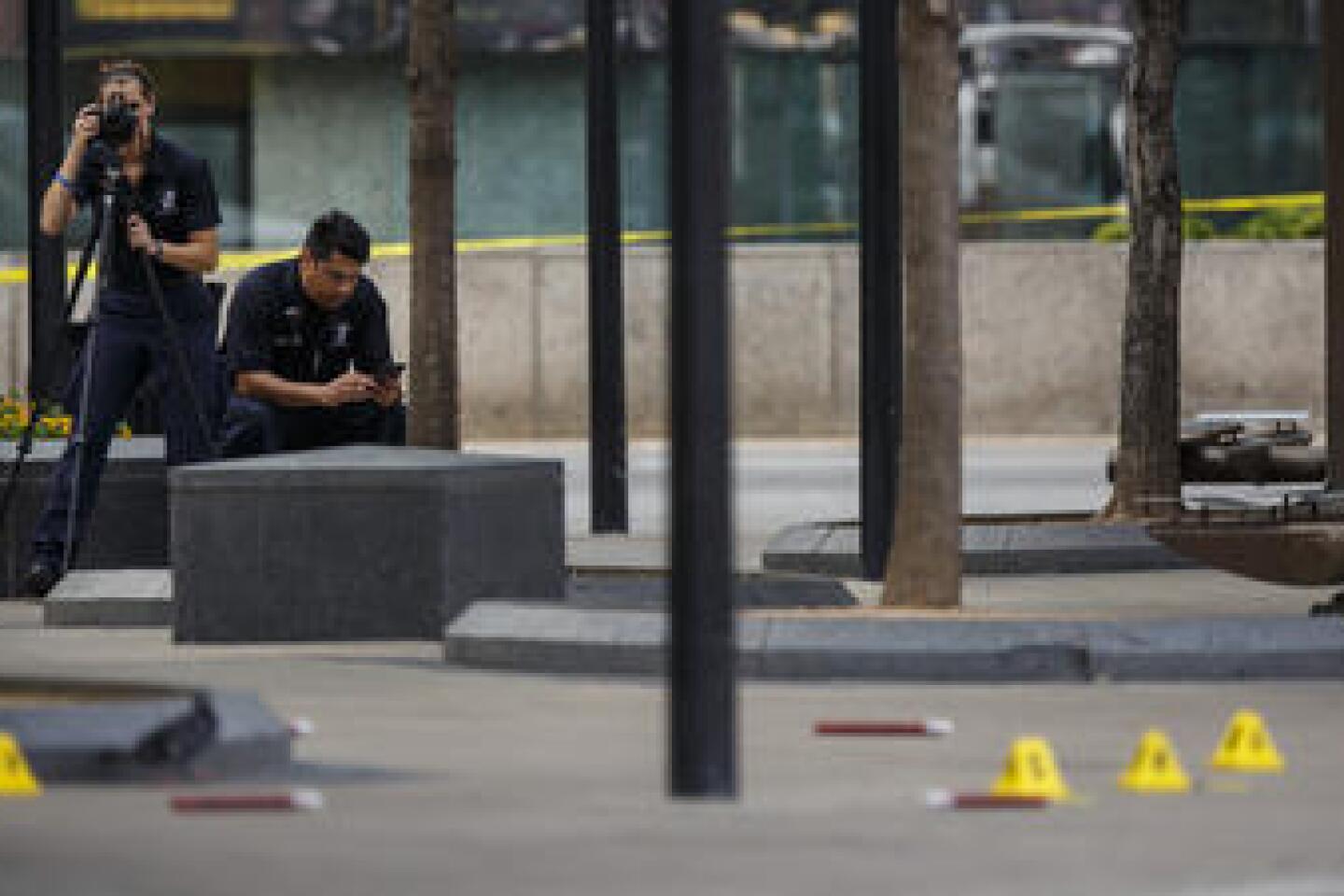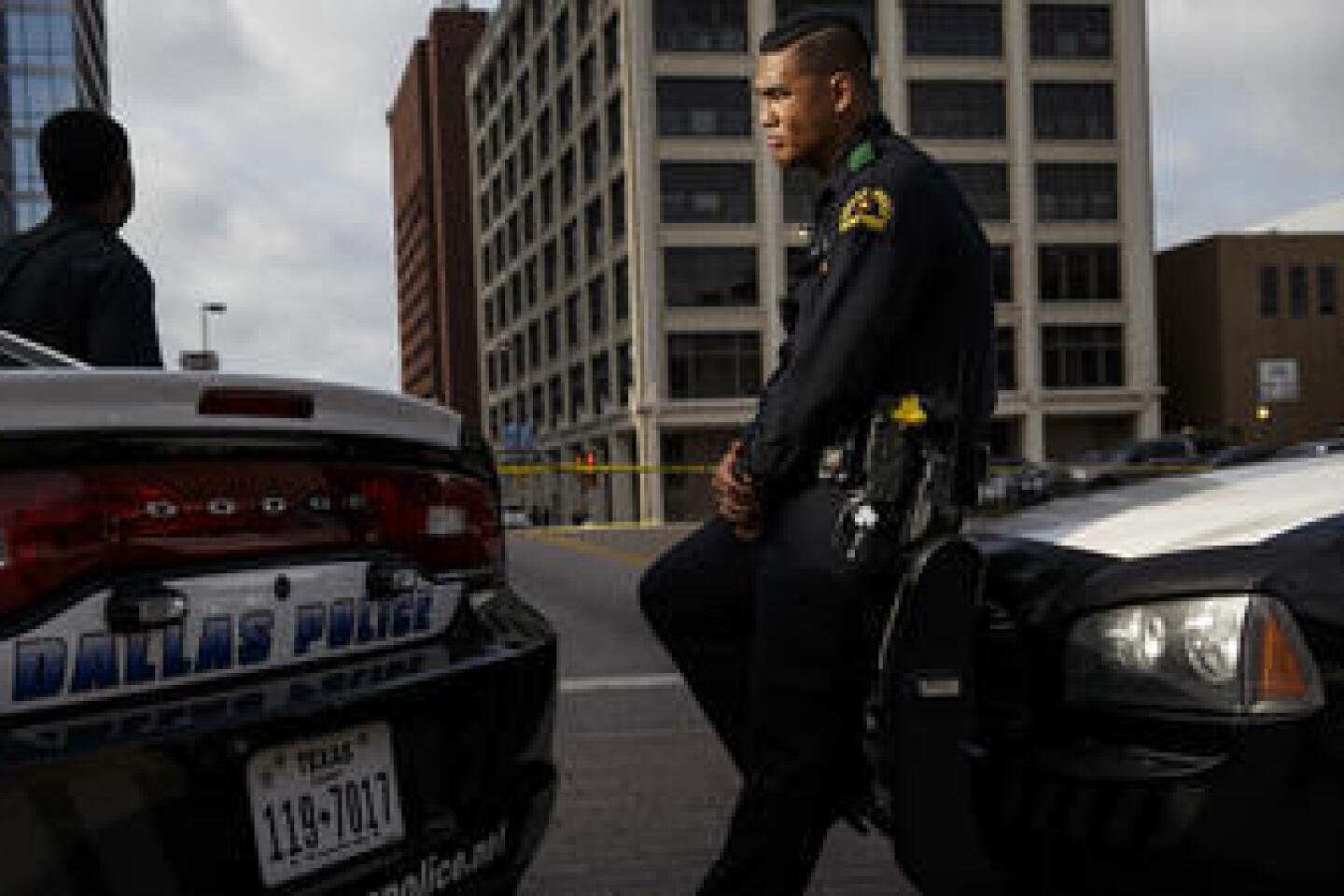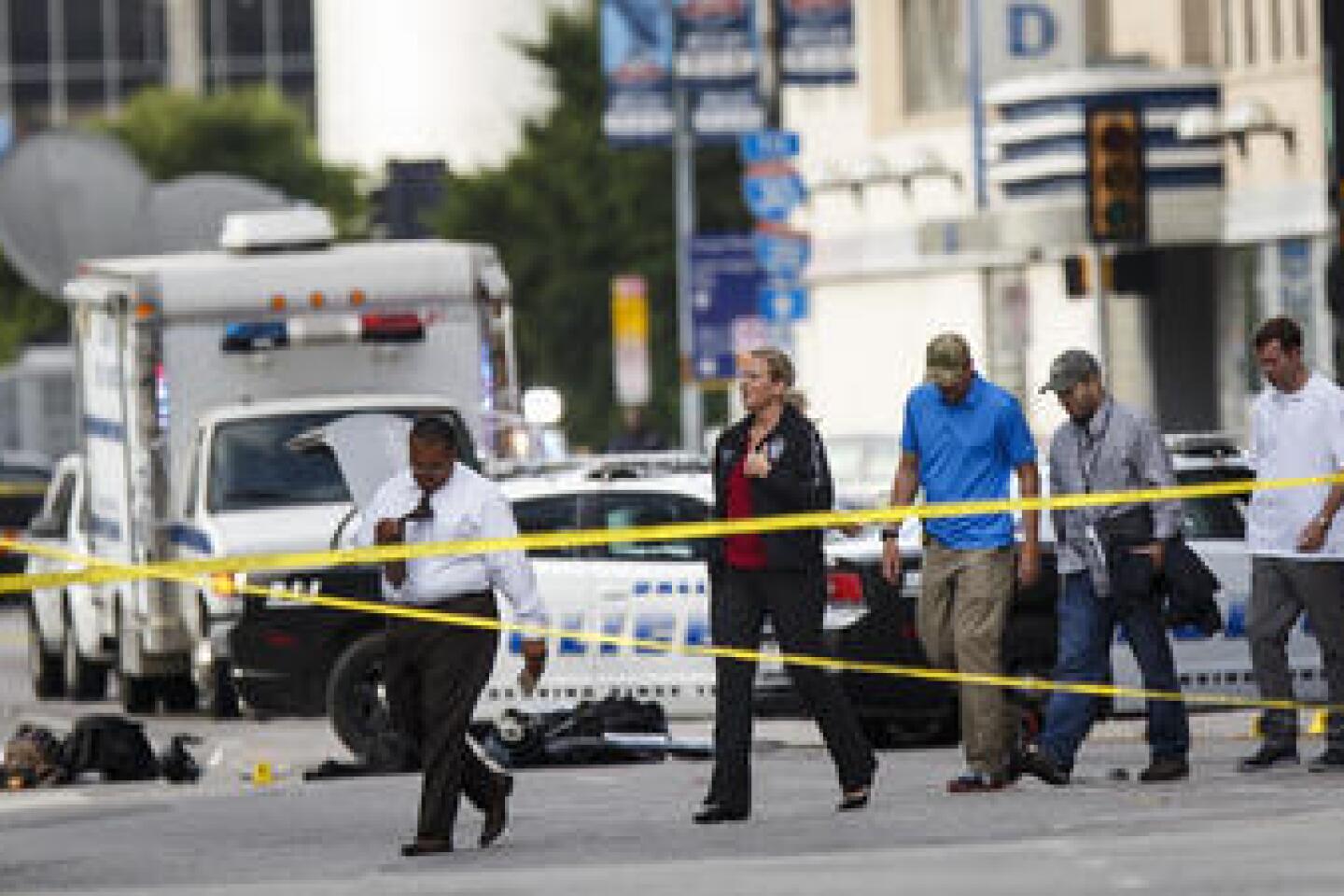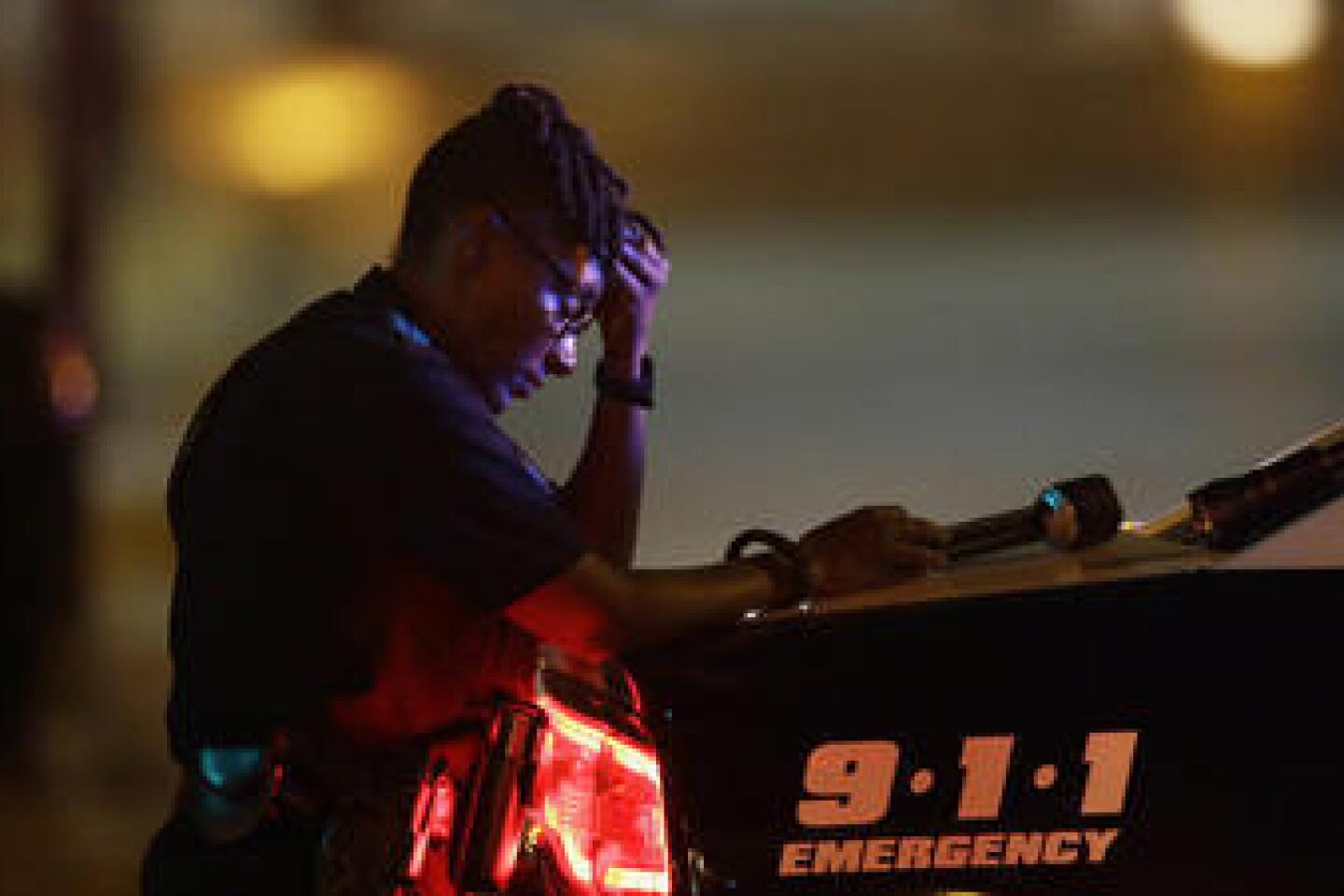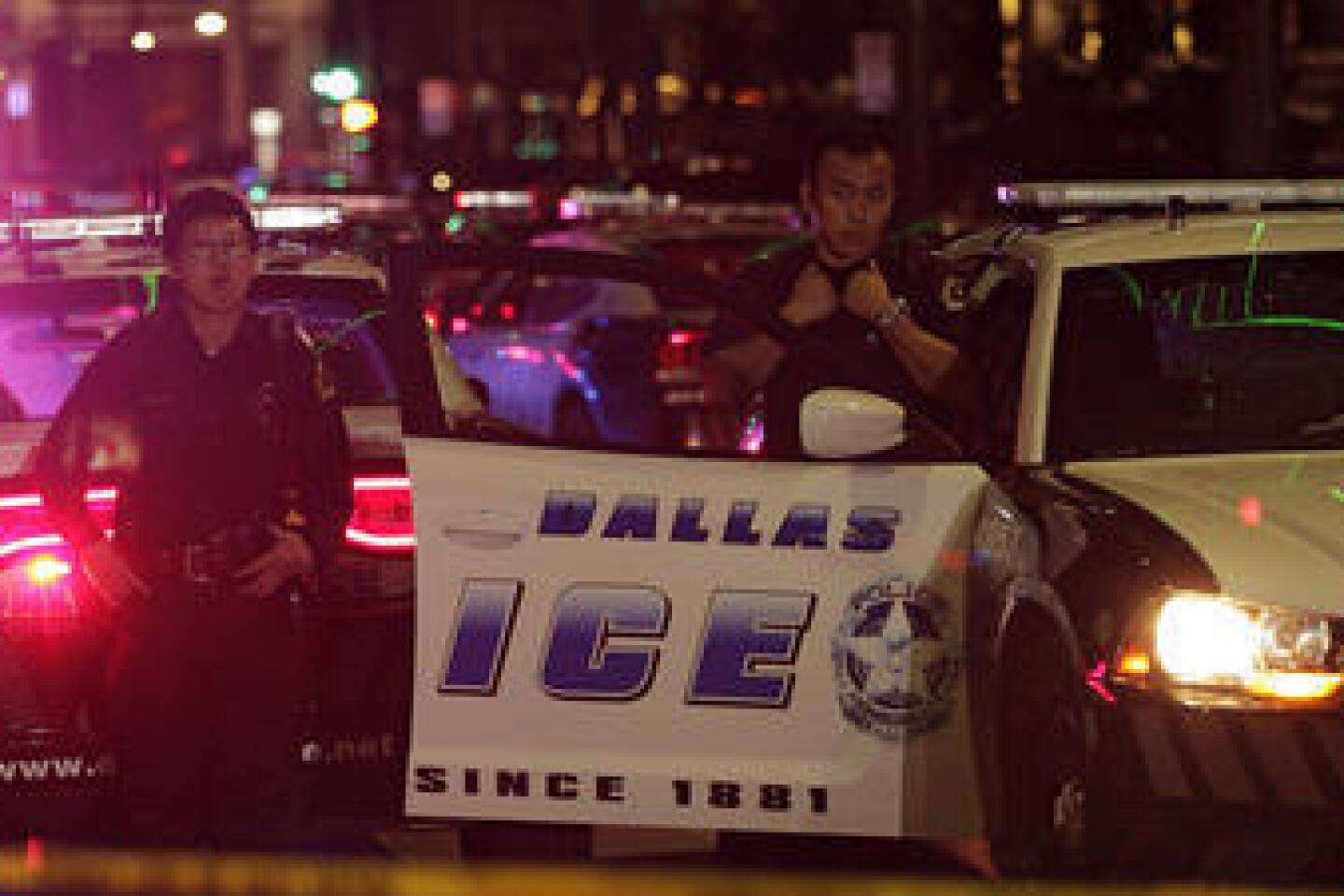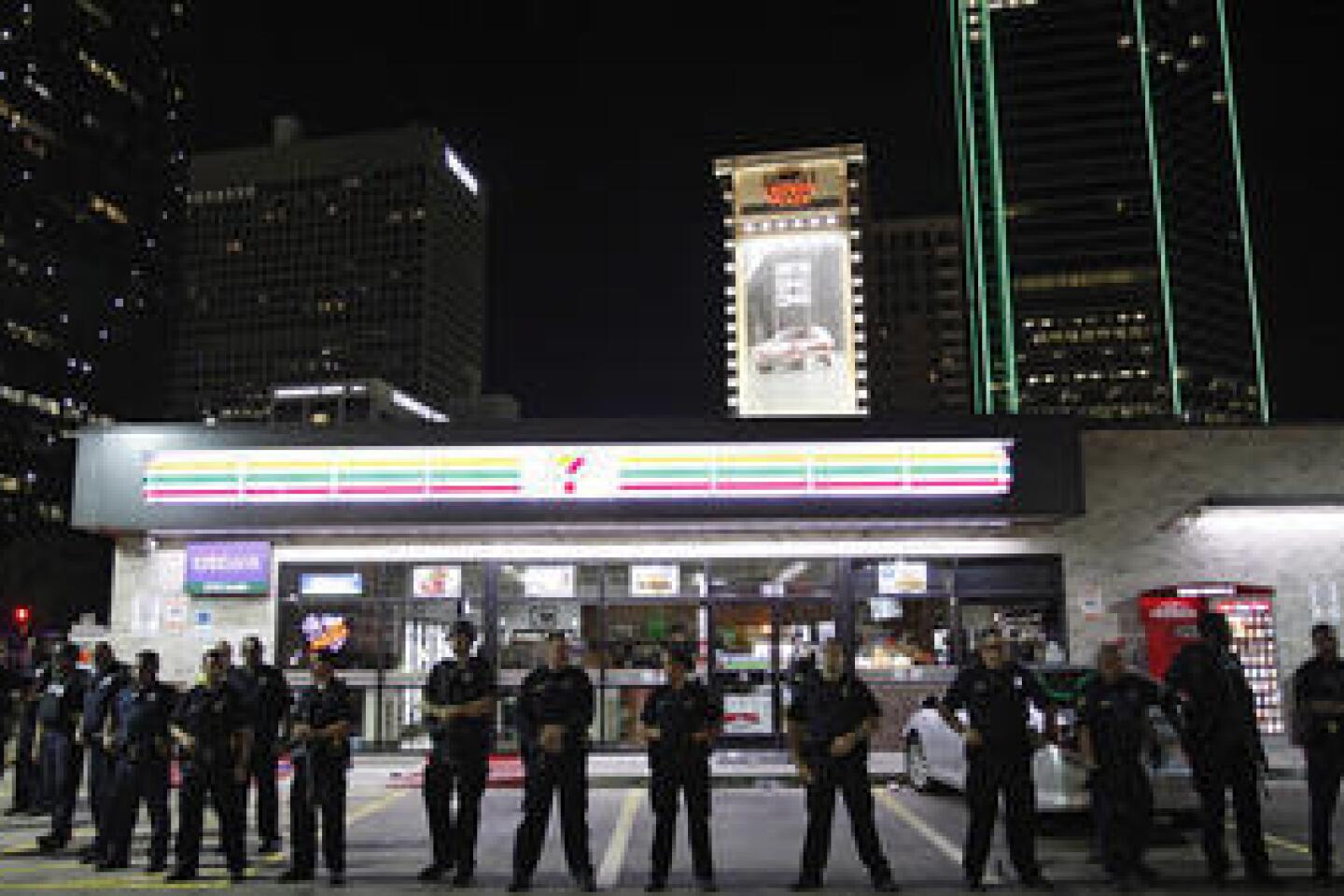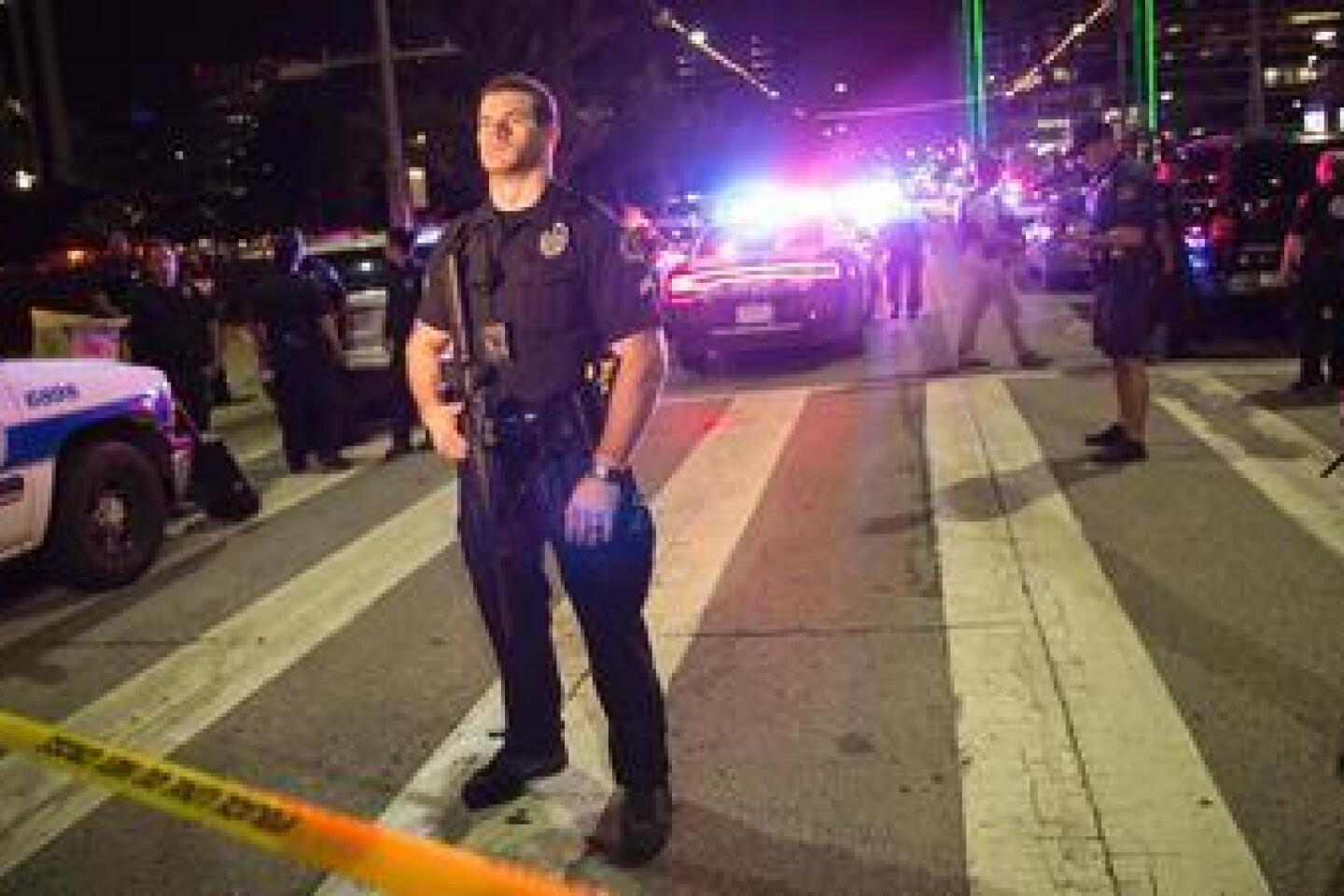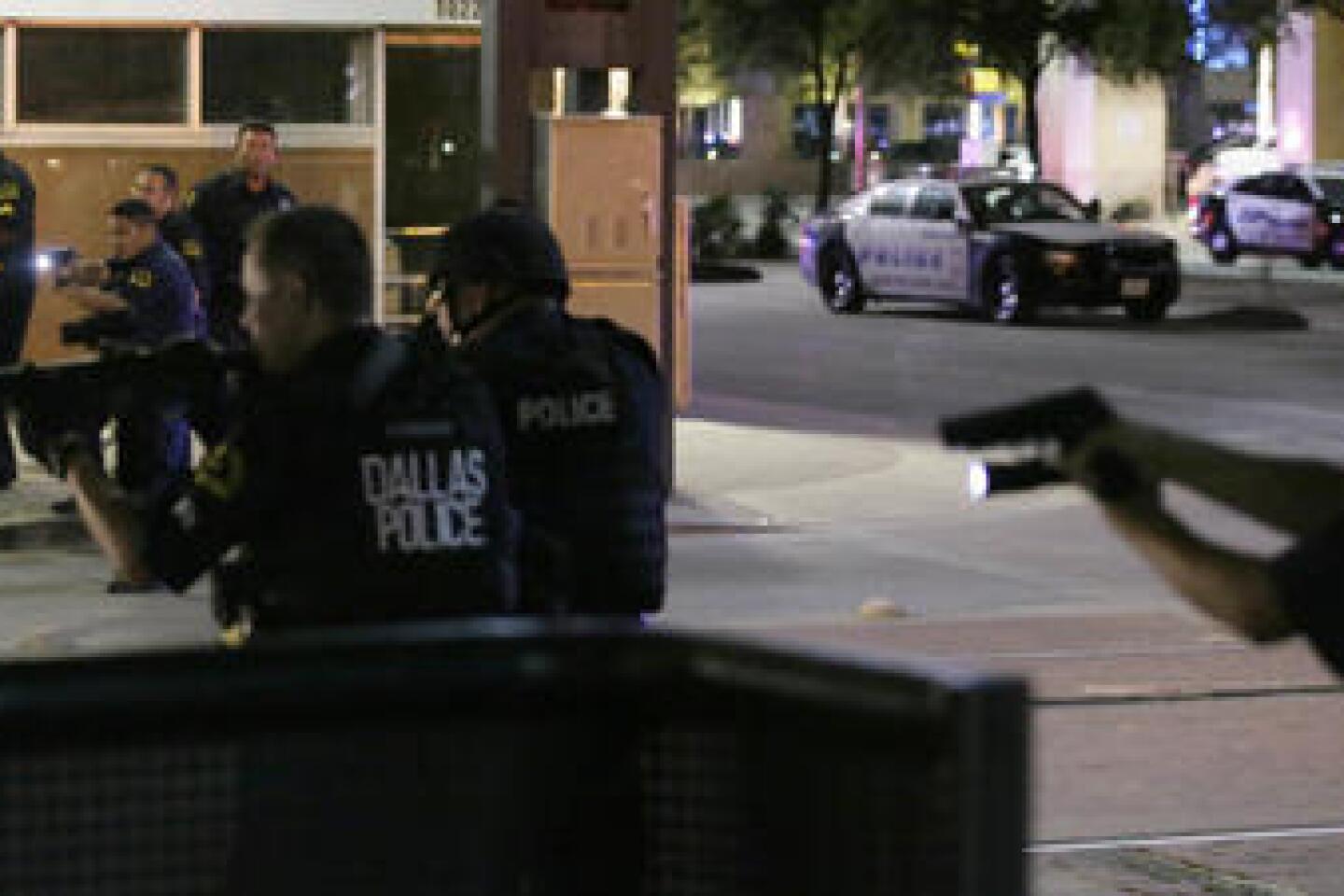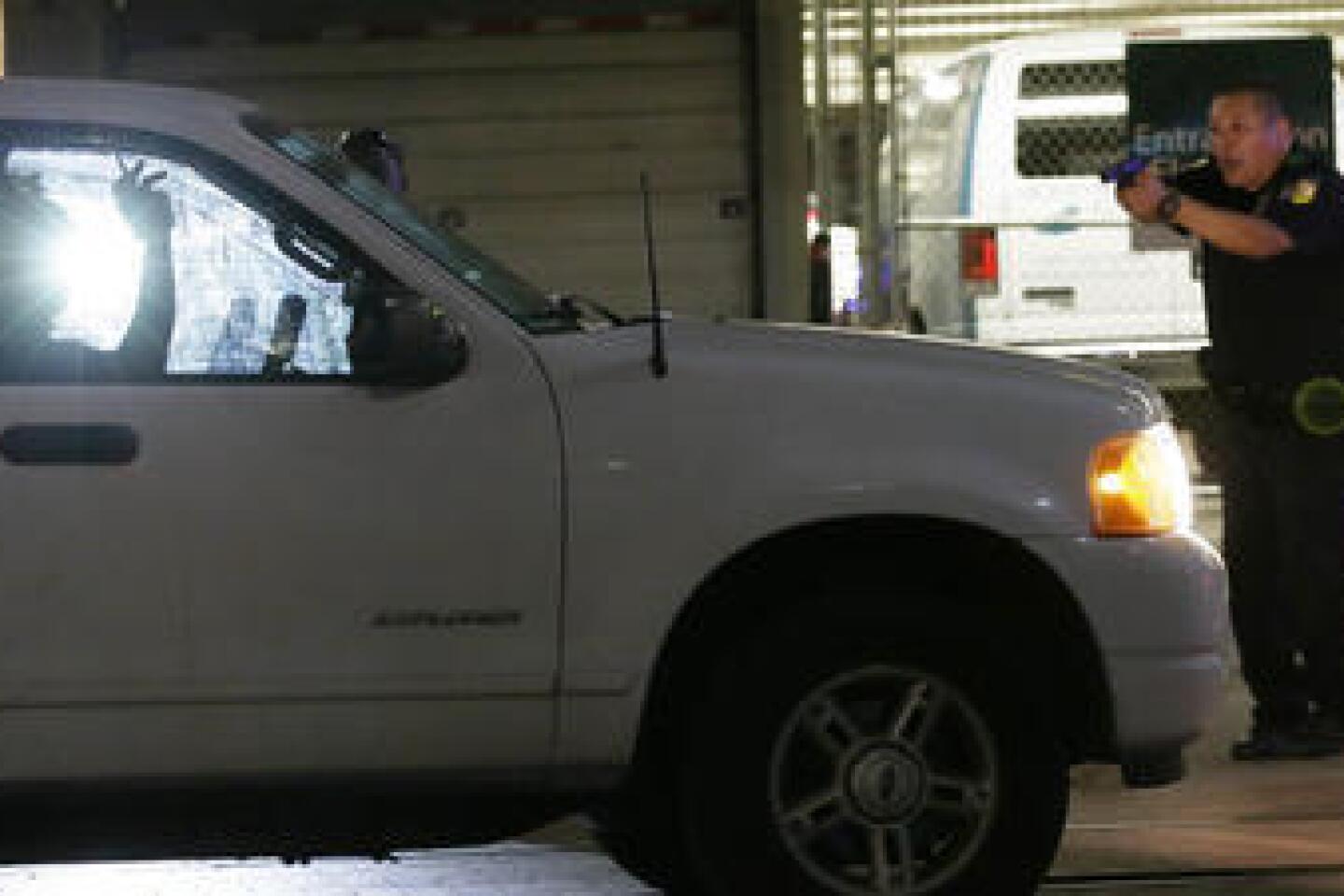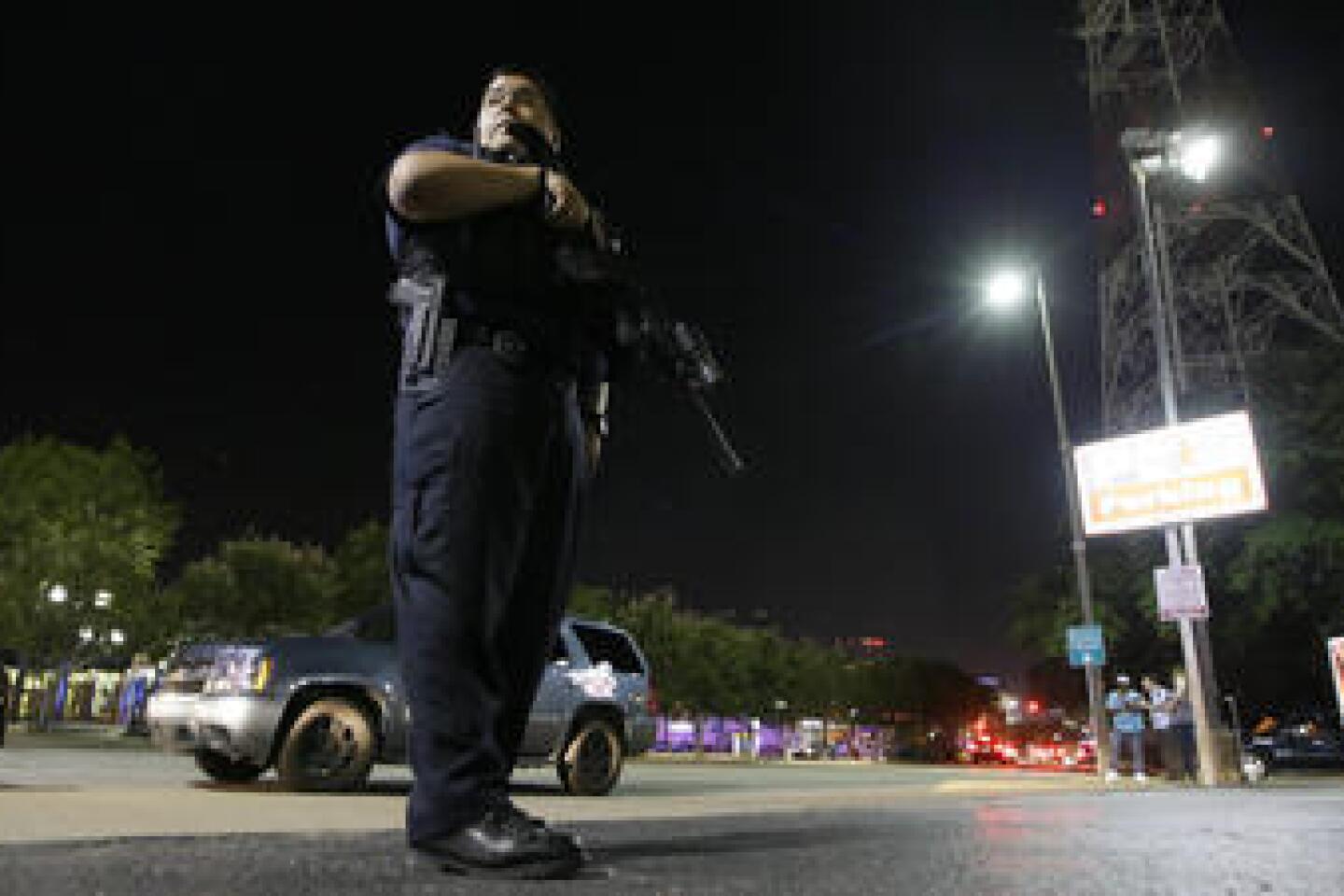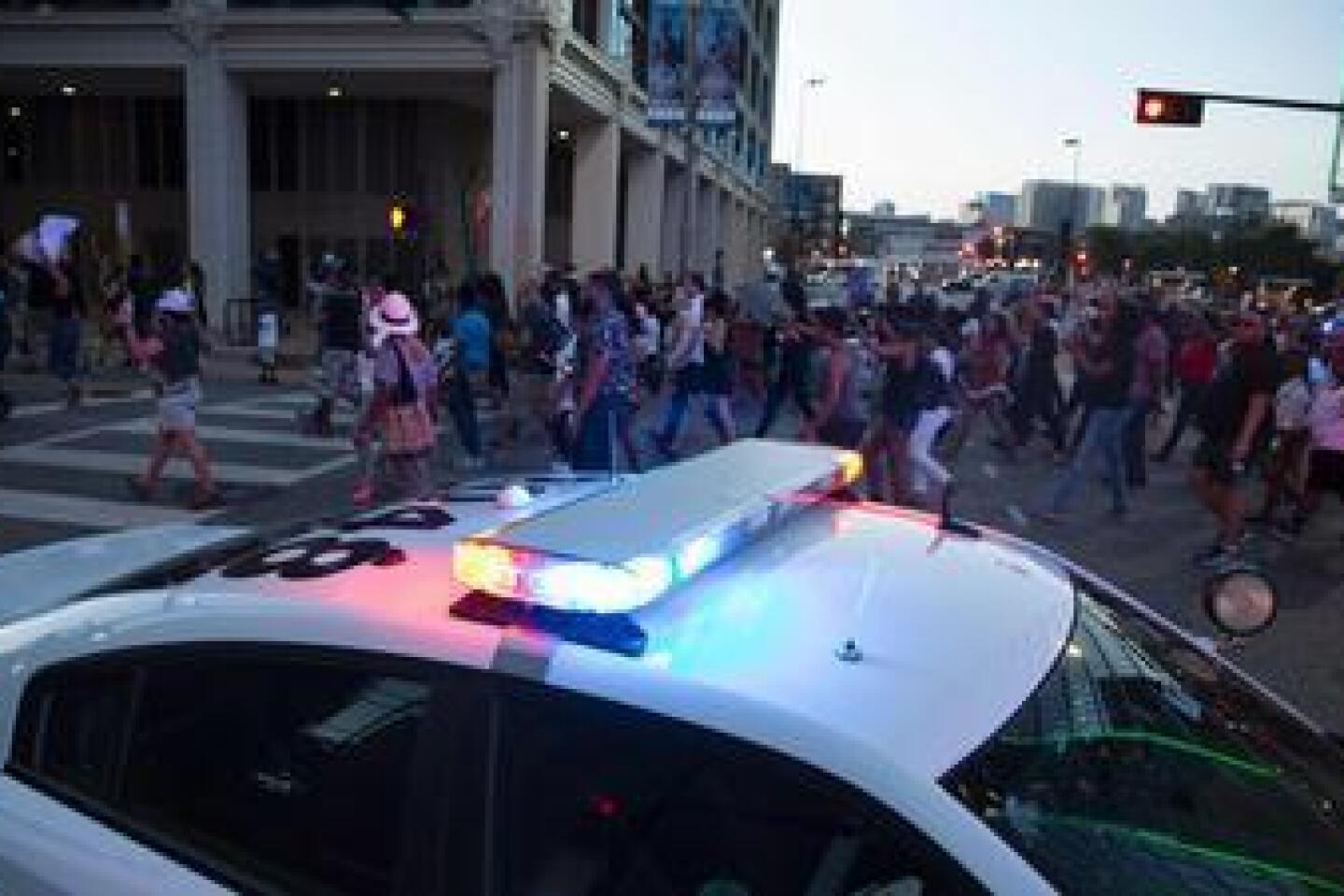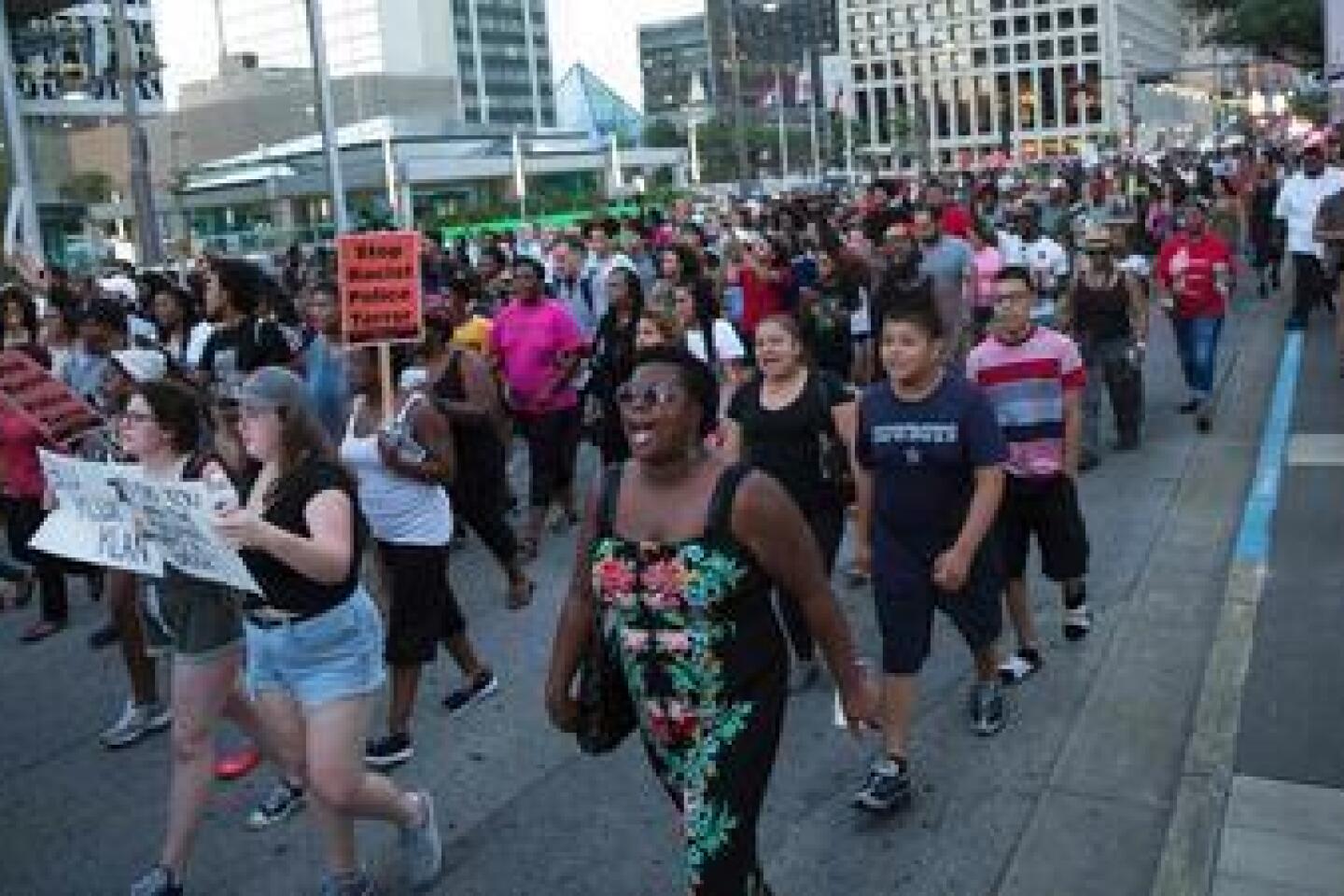Crises that arise during presidential campaigns often define the candidates.
Will this horrific week prove to be the crucible of the current campaign?
Violence has shuddered through America since Tuesday: First, two controversial shootings by police of African American men, captured on cameras and spread on social media; then the assassination of at least five Dallas police officers and the wounding of others by a sniper after a peaceful march protesting the earlier deaths.
At the very minimum, the bickering between Donald Trump and Hillary Clinton has been temporarily overshadowed, much as it was less than four weeks ago when a single assailant killed 49 people and wounded more than 50 others in an Orlando, Fla., nightclub.
That pause proved temporary and for all its horror, had little effect on the presidential race.
But in past decades, dramatic disorder has had a political impact. The convulsions of protests and violence in 1968 — albeit occurring in a vastly different country — helped swing the presidential election that year to the law-and-order candidate, Republican Richard Nixon.
The effect of the latest outbreak may be fully determined only when more specifics are known about the Dallas attack.
Already, however, the three days of shootings have served as a reminder of how events outside the campaign can overwhelm the carefully plotted strategies of the candidates. For a time, at least, the question of whom Trump will pick as a running mate and the details of Clinton’s handling of classified information in her emails while secretary of State seem unlikely to attract much attention.
Whether the effect goes deeper and persists also will depend on how a polarized public — and the candidates — frame the week’s deadly events with their fraught elements of racial tension and maintenance of public order.
Both candidates began shaping their responses — and the public’s view of events — on Friday.
Trump, who cancelled a planned Florida event, has built much of his campaign around the idea that America is no longer “safe.” He couples his denunciations of illegal immigration with claims that American cities are places of danger where his audiences — mostly older, white and nonurban — would rightly fear to walk.
1/103
Magnus, the 8-year-old son of slain Dallas Police Officer Lorne Ahrens, rides with his father’s coffin during the funeral Wednesday afternoon. Sr. Cpl. Ahrens and four other officers were killed in an attack during a Black Lives Matter protest on July 7.
(Barbara Davidson / Los Angeles Times) 2/103
Pallbearers carry the casket of Dallas Police Sr. Cpl. Lorne Ahrens at Restland Memorial Park in Dallas on Wednesday afternoon.
(Barbara Davidson / Los Angeles Times) 3/103
Magnus, the 8-year-old son of slain Dallas Police Officer Lorne Ahrens, speaks to officers after his father’s funeral Wednesday. Sr. Cpl. Ahrens was buried at Restland Memorial Park in Dallas.
(Barbara Davidson / Los Angeles Times) 4/103
Funeral services are held for Dallas Police Sr. Cpl. Lorne Ahrens at Prestonwood Baptist Church in Plano, Texas. (Barbara Davidson / Los Angeles Times )
5/103
People line up outside the funeral service for Dallas Police Sr. Cpl. Lorne Ahrens at Prestonwood Baptist Church in Plano, Texas.
(Barbara Davidson / Los Angeles Times) 6/103
Vice President Joe Biden, left, Laura Bush and former President George W. Bush join President Obama and First Lady Michelle Obama at the memorial service in Dallas for five slain policemen.
(Barbara Davidson / Los Angeles Times) 7/103
Dallas Police Chief David Brown, center, listens as President Obama speaks at the memorial service.
(Barbara Davidson / Los Angeles Times) 8/103
Police officers from across the country and civilians attend a visitation for slain Police Sgt. Michael Smith at Mary Immaculate Church in Farmers Branch, Texas.
(Barbara Davidson / Los Angeles Times) 9/103
A crowd gathers before the memorial at the Morton H. Meyerson Symphony Center in Dallas, where President Obama and former President George W. Bush spoke.
(Barbara Davidson / Los Angeles Times) 10/103
Police officers take part in the “Dallas Strong” candlelight vigil at City Hall on July 11, 2016, in honor of the five Dallas police officers killed last week.
(Barbara Davidson / Los Angeles Times) 11/103
Police officers at the vigil.
(Barbara Davidson / Los Angeles Times) 12/103
Kristy Zamarripa, daughter of slain Dallas Police Officer Patricio Zamarripa, is held by her grandmother in front of a photo of the officer at the vigil.
(Barbara Davidson / Los Angeles Times) 13/103
A woman wipes her tears in a section of seats reserved for family members of the slain police officers.
(Barbara Davidson / Los Angeles Times) 14/103
Dallas Police Officer Victor Guzman, who was at the sniper shooting scene, holds a candle. His wife, Ciprina, is in front of him.
(Barbara Davidson / Los Angeles Times) 15/103
Family and friends of fallen police officers take part in the vigil.
(Barbara Davidson / Los Angeles Times) 16/103
Officer Marc Macklemore tries to remain composed during a memorial for the slain officers at the vigil.
(Barbara Davidson / Los Angeles Times) 17/103
Heidi Smith, center, wife of slain Dallas Police Officer Sgt. Michael Smith, is comforted by her dauther Victoria, left, as they take part in a candlelight vigil at City Hall on Monday.
(Barbara Davidson / Los Angeles Times) 18/103
Rick Zamarripa, father of slain Officer Patrick Zamarripa, attends the vigil.
(Barbara Davidson / Los Angeles Times) 19/103
Five portraits of the officers killed last week are displayed at the vigil.
(Barbara Davidson / Los Angeles Times) 20/103
Honor guards put up the portraits.
(Barbara Davidson / Los Angeles Times) 21/103
Community members hold hands in prayer at a Dallas church on Sunday.
(Marcus Yam / Los Angeles Times) 22/103
Porsha Jackson, right, speaks during a community meeting at a Dallas church on Sunday.
(Marcus Yam / Los Angeles Times) 23/103
Prayers continue to be said July 10 as the memorial in front of Dallas police headquarters continues to grow.
(Barbara Davidson / Los Angeles Times) 24/103
Dallas police officers wipe tears following a prayer July 10.
(Barbara Davidson / Los Angeles Times) 25/103
People pray July 10 at Dallas police headquarters.
(Barbara Davidson / Los Angeles Times) 26/103
Black Lives Matter activists hold hands at a protest July 10 in Dallas.
(Barbara Davidson / Los Angeles Times) 27/103
Black Lives Matter demonstrators share a group hug with All Lives Matter activists July 10 in Dallas.
(Barbara Davidson / Los Angeles Times) 28/103
Samuel Barnes, left, who was dispatched with emergency medical services after the Dallas attack, watches a Black Lives Matter demonstration July 10.
(Barbara Davidson / Los Angeles Times) 29/103
Ella Fest, 3, looks at a makeshift memorial in downtown Dallas on Sunday.
(Barbara Davidson / Los Angeles Times) 30/103
A wounded Shetamia Taylor, center, tears up as she recalls the Dallas police officers who saved her after she was wounded during a sniper attack Thursday night in which five officers were killed. At the news conference at a Dallas hospital, Taylor is surrounded by her sister, Teresa Williams, her husband, Lavar Taylor, and her children behind her.
(Marcus Yam / Los Angeles Times) 31/103
Shetamia Taylor, right, who is recovering after being shot, hugs Angie Wisner, who helped save her son during the deadly attack when a gunman killed five police officers and wounded other officers and civilians in Dallas during a peaceful protest.
(Marcus Yam / Los Angeles Times) 32/103
Worshippers come together for a service and town hall meeting at the Potter’s House megachurch in Dallas on Sunday, days after five officers were killed by a sniper during a peacerful Black Lives Matter protest. Bishop T.D. Jakes told the mostly black congregation of the city’s police officers: “When wickedness raised its head, they stood up for our protection.”
(Barbara Davidson / Los Angeles Times) 33/103
Saundra Sterling, an aunt who raised Alton Sterling after his mother died, is welcomed by worshippers at the Potter’s House church in Dallas. Alton Sterling was shot to death by police in Baton Rouge, La., last week.
(Barbara Davidson / Los Angeles Times) 34/103
Elizabeth Holmes, 87, gives out hugs during a service at the Potter’s House church in Dallas, days after five law enforcement officers were killed by a sniper.
(Barbara Davidson / Los Angeles Times) 35/103
Father Stephen Jasso greets Rick Zamarripa, father of slain police officer Patrick Zamarripa, during Sunday Mass at All Saints Catholic Church in Dallas on July 10, 2016.
(Marcus Yam / Los Angeles Times) 36/103
A picture frame with two portraits of slain police Officer Patrick Zamarripa sits on the pew as family members stand to pray during Sunday Mass at All Saints Catholic Church, in Dallas on July 10, 2016.
(Marcus Yam / Los Angeles Times) 37/103
Rick Zamarripa, father of slain police Officer Patrick Zamarripa, weeps during Sunday Mass at All Saints Catholic Church in Dallas on July 10, 2016.
(Marcus Yam / Los Angeles Times) 38/103
Dallas residents add to the memorial for the slain police officers.
(Marcus Yam / Los Angeles Times) 39/103
People give hugs to Dallas police officers standing outside the memorial for slain officers in the recent attacks in Dallas.
(Marcus Yam / Los Angeles Times) 40/103
Tasha Lomoglio sits alone as she visits the memorial for slain police officers outside Dallas Police Headquarters.
(Marcus Yam / Los Angeles Times) 41/103
A memorial for the slain Dallas police officers.
(Marcus Yam / Los Angeles Times) 42/103
Community members pay their respects at the memorial for the slain officers in the recent attacks in Dallas.
(Marcus Yam / Los Angeles Times) 43/103
Police officer M. Argumedo shares encouraging words with Brielle Delgado, 8, at the memorial for slain police officers in Dallas, Texas.
(Marcus Yam / Los Angeles Times) 44/103
Tasha Lomoglio, of Dallas, pays her respects in front of a growing memorial at the Dallas police headquarters.
(Barbara Davidson / Los Angeles Times) 45/103
DART Police officers pray in front of the Dallas police headquarters on Saturday. (Barbara Davidson / Los Angeles Times)
46/103
DART Police officers pray in front of the Dallas police headquarters on Saturday. (Barbara Davidson / Los Angeles Times)
47/103
A woman weeps at a memorial outside the crime scene where 5 police officers were killed and 7 more wounded, in Dallas, Texas.
(Marcus Yam / Los Angeles Times) 48/103
Officers are deployed around Dallas police headquarters because of an unspecified threat.
(Barbara Davidson / Los Angeles Times) 49/103
Officers secure the scene around Dallas police headquarters because of an unspecified threat.
(Barbara Davidson / Los Angeles Times) 50/103
Police locked down the area around the Dallas headquarters because of an unspecified threat.
(Barbara Davidson / Los Angeles Times) 51/103
People wait for lock down to be lifter around Dallas police headquarters after an unspecified threat was made.
(Barbara Davidson / Los Angeles Times) 52/103
Dallas police officers check out an unspecified threat around the headquarters.
(Barbara Davidson / Los Angeles Times) 53/103
Mourners grieve in front of the Dallas Police Headquarters.
(Barbara Davidson / Los Angeles Times) 54/103
The MVPz, a Central Texas, Softball Team, pray in front of the Dallas Police Headquarters.
(Barbara Davidson / Los Angeles Times) 55/103
Assistant Police Chief, Gary Tittle, gets a hug at the Dallas Police Headquarters.
(Barbara Davidson / Los Angeles Times) 56/103
Seven-year-old Jacob Flanagan greets Assistant Police Chief, Gary Tittle, with his Mom, Jennifer Cobb, in front of the Dallas Police Headquarters.
(Barbara Davidson / Los Angeles Times) 57/103
Djuana Franklin is consoled by a passerby as she weeps at the memorial for slain police officers in Dallas. (Marcus Yam / Los Angeles Times)
58/103
Investigators walk in a formation on Lamar Street to comb through the crime scene outside El Centro College in Dallas where a gunman killed five police officers and wounded seven others.
(Marcus Yam / Los Angeles Times) 59/103
People pray in front of a growing memorial at the Dallas Police Headquarters.
(Barbara Davidson / Los Angeles Times) 60/103
Homeland Security Agent, Ron Miller, of San Antonio, works with his bomb sniffing dog, Mattie, along the Earle Cabel Federal Building in downtown Dallas.
(Barbara Davidson / Los Angeles Times) 61/103
Rachel Simon embraces her daughter Abigail Simon, 13, as they pay their respects to the slain officers at a memorial outside Dallas Police Department.
(Marcus Yam / Los Angeles Times) 62/103
Retired Army Sgt. Chandler Davis, pays his respects at the growing memorial in front of the Dallas Police Headquarters.
(Barbara Davidson / Los Angeles Times) 63/103
Investigators comb through the crime scene for evidence outside El Centro College on Lamar Street in Dallas where a gunman killed five police officers and wounded seven others.
(Marcus Yam / Los Angeles Times) 64/103
Flowers, handwritten notes, balloons, candles and other mementos are left on squad cars parked at the Dallas Police Department in a memorial to the slain officers.
(Marcus Yam / Los Angeles Times) 65/103
Djuana Franklin weeps for the slain police officers at a memorial at the Dallas police headquarters.
(Marcus Yam / Los Angeles Times) 66/103
Flowers, cards, balloons, candles and other mementos form a makeshift memorial at the Dallas Police Department.
(Marcus Yam / Los Angeles Times) 67/103
A large American flag flies at half mast framed by the Dallas skyline in the aftermath of the deadly police shooting.
(Marcus Yam / Los Angeles Times) 68/103
Roses are placed on a makeshift memorial near the shooting scene.
(Marcus Yam / Los Angeles Times) 69/103
From top left counter clockwise, Fermin Betancourt, Damien Betancourt, 10, Destiny Betancourt, 11, and Police Officer Yuridia Morales pay their respects at the memorial for slain Dallas officers.
(Marcus Yam / Los Angeles Times) 70/103
Police Officer Katherine Rhodes, right, embraces Officer Yuridia Morales at a memorial for the shooting victims.
(Marcus Yam / Los Angeles Times) 71/103
Flowers, notes, balloons and other mementos are left on squad cars outside Dallas Police headquarters in honor of the slain police officers.
(Marcus Yam / Los Angeles Times) 72/103
Shelby Garcia, 16, sticks a hand-written note onto the squad cars meant to memorialize the slain Dallas police officers.
(Marcus Yam / Los Angeles Times) 73/103
Kenneth Parsons leans on Veronica Jones as they pay their respects at a memorial for the fallen police officers in Dallas.
(Marcus Yam / Los Angeles Times) 74/103
Shelby Garcia, 16, writes a note for the slain Dallas police officers.
(Marcus Yam / Los Angeles Times) 75/103
Hand-written personal notes are left to honor the fallen police officers in Dallas.
(Marcus Yam / Los Angeles Times) 76/103
Dallas residents join in a “United to Heal” prayer vigil at the Cathedral Guadalupe the day after the sniper attack that left five officers dead.
(Barbara Davidson / Los Angeles Times) 77/103
An officer wipes a tear as fellow officers adjust flowers left on a police cruiser in front of police headquarters in Dallas. (Barbara Davidson / Los Angeles Times)
78/103
Daniel Bray embraces Emilie Bedell during an interfaith prayer event in Dallas for the victims of the mass shooting that killed five police officers and wounded seven others.
(Marcus Yam / Los Angeles Times) 79/103
Concord Church in Dallas hosts a gathering after the sniper attack on police by Micah Xavier Johnson of Mesquite, Texas.
(Barbara Davidson / Los Angeles Times) 80/103
DALLAS, TX July 8, 2016 Neftali Davila, of Sallas, prays as her husband Mayte holds their newborn, Mateo, as worshipper attend “A United To Heal Prayer Vigil” at the Cathedral Guadalupe July 8, 2016 following a sniper attack by 25-year-old Micah Xavier Johnson of Mesquite, Texas. that left 5 officers dead. (Barbara Davidson/Los Angeles Times) (Barbara Davidson / Los Angeles Times)
81/103
Stacy Powell, center, prays with others at the Concord Church in Dallas following the police shooting.
(Barbara Davidson / Los Angeles Times) 82/103
Texas Highway Patrol officers help out in downtown Dallas as investigators look for evidence from the sniper attack on police the night before.
(Barbara Davidson / Los Angeles Times) 83/103
Eleina Martinez, 5, touches Dallas Police Officer Arnie Pargas’ badge, draped with a black band, at a memorial outside police headquarters.
(Barbara Davidson / Los Angeles Times) 84/103
Community members pray during an interfaith prayer event for the victims of the mass shooting in Dallas.
(Marcus Yam / Los Angeles Times) 85/103
Tani Taylor claps for police officers during an interfaith prayer event for the victims of the mass shooting that killed five officers in Dallas.
(Marcus Yam / Los Angeles Times) 86/103
Izzy May sobs during an interfaith prayer service for the victims of the police shooting in Dallas.
(Marcus Yam / Los Angeles Times) 87/103
During a news conference Friday, Dallas Police Chief David Brown collects himself while talking about Thursday night’s deadly shooting.
(Mark Mulligan / Associated Press) 88/103
Noelle Hendrix places flowers near the scene of the shooting in downtown Dallas.
(LM Otero / Associated Press) 89/103
Investigators document the crime scene outside El Centro College, where a sniper killed five police officers and wounding 7 others in Dallas.
(Marcus Yam / Los Angeles Times) 90/103
Investigators examine the crime scene outside El Centro College in Dallas, where a sniper unleashed a barrage of bullets, killing at least five police officers and wounding seven others during a protest over recent police shootings in Minnesota and Louisiana.
(Marcus Yam / Los Angeles Times) 91/103
Investigators document the crime scene outside El Centro College in Dallas, where a sniper shot 12 police officers, killing five of them.
(Marcus Yam / Los Angeles Times) 92/103
Dallas police officers stand guard at a roadblock to the crime scene at El Centro College in Dallas.
(Marcus Yam / Los Angeles Times) 93/103
Investigators search the crime scene outside El Centro College in Dallas where a sniper unleashed a barrage of bullets, killing five police officers and wounding seven others.
(Marcus Yam / Los Angeles Times) 94/103
A Dallas police officer, who did not want to be identified, takes a moment as she guards an intersection after the deadly shooting.
(LM Otero / Associated Press) 95/103
Dallas police officers gather downtown after the deadly shooting.
(Ralph Lauer / EPA) 96/103
Dallas police officers face protesters on the corner of Ross Avenue and Griffin Street after the shooting.
(Ralph Lauer / EPA) 97/103
Police officers stand guard at a barracade following the sniper shooting in Dallas.
(Laura Buckman / AFP-Getty Images) 98/103
Dallas police protest (LM Otero / Associated Press)
99/103
Police stop a driver in downtown Dallas.
(LM Otero / Associated Press) 100/103
Dallas police stand watch after the shooting.
(LM Otero / Associated Press) 101/103
Earlier in the day, people rally in Dallas to protest the deaths of Alton Sterling and Philando Castile in Louisiana and Minnesota, respectively.
(Laura Buckman / AFP / Getty Images) 102/103
Marchers in Dallas.
(Laura Buckman / AFP / Getty Images) 103/103
A man lies on the ground after yelling, “Don’t shoot me,” at police during the rally.
(Laura Buckman / AFP / Getty Images) He could benefit if voters see this week’s killings as part of a general picture of national chaos — a crisis of authority requiring a tough response.
In a statement released early Friday, Trump largely cast the events in that vein, saying it was necessary to “restore law and order” and “the confidence of our people to be safe and secure in their homes and on the street.”
But he also used terminology rare for a candidate who has been criticized for months for using divisive racially-inflected rhetoric — and one who regularly lauds police while dismissing complaints about police violence.
He called the shootings by police of African American men in Louisiana and Minnesota “senseless” and said they remind “us how much more needs to be done.”
“Our nation has become too divided,” Trump said, adding that “racial tensions have gotten worse, not better.”
The words used by Trump and other Republicans seemed a cautionary nod to how the country has changed since Republican nominee Nixon profited from his law-and-order approach. Reince Priebus, the national Republican party chairman, included the two killings by police and the Texas shootings in a statement describing them all as “tragedies.”
Notably, neither Trump nor Priebus had commented on the African-American shootings until Friday.
“All life is precious and it grieves us to see it lost in the many ways it has been this week. All of these tragedies need to be investigated and justice needs to be served in an open and transparent way,” Priebus wrote.
If a whiter and more conservative America embraced the law-and-order message in the past, current-day America, with its more polyglot face, may well respond by seeking out a more deliberate, less unpredictable leader in Clinton. She also has made efforts to reduce gun violence a central tenet of her campaign for more than a year, giving her an authenticity on that topic that Trump lacks.
A search for steadiness in a troubled time boosted then-Sen. Barack Obama and hurt Sen. John McCain in 2008 when the Republican’s haphazard reaction to the nation’s economic collapse helped define him as a riskier bet for voters. The calmer response by Obama, then still a relatively unknown figure nationally, helped voters see him as capable in the face of calamity.
Clinton on Friday canceled a planned Pennsylvania event with Vice President Joe Biden, but in interviews expressed her condolences to both the families of the Dallas police officers and the men killed in Louisiana and Minnesota.
“This is deeply troubling and it should worry every single American,” she said on CNN, calling on all Americans “to do much more” to listen to and respect each other but adding that white Americans have a special need to listen to the problems faced by African Americans.
“Let’s start putting ourselves in each other’s shoes again and really coming together as Americans,” she said. “We just have to make up our minds that we are going to bring our country together.”
Clinton also pointed to police training proposals she forwarded last year that would lessen the number of civilian shootings at the hands of officers.
But voters’ views of Trump and Clinton are so negative — and supporters of both are already so dug in — that even their responses to a week such as this may not change voters’ perceptions.
For more on politics »
Another problem facing the presidential candidates as they seek to serve as unifying figures in the aftermath of the week’s violence: its elemental parts inspire great division.
Segments in the country see the shootings of African American men as a demonstration of a biased criminal justice system. Others give the benefit of the doubt to police officers who are integral protectors of society.
The division has played out with strong support from young and minority Americans for the Black Lives Matter movement — and far less support for it among older, white Americans, a divide that echoes the Clinton-Trump split among voters.
President Obama has sought to bridge that gap. Before the Dallas violence erupted, he spoke in Poland, where he had traveled for a NATO summit, of the shootings in Louisiana and Minnesota. He suggested both African American victims and diligent police officers should be embraced.
“This is not just a black issue. It’s not just a Hispanic issue. This is an American issue that we should all care about. All fair-minded people should be concerned,” he said of the shootings by police.
In the next sentence, he praised police officers with words that would echo painfully just hours later.
“They’ve got a dangerous job. It is a tough job,” he said. “And as I’ve said before, they have a right to go home to their families, just like anybody else on the job.”
After Thursday night, at least five of them will never again go home to their families in Dallas, a fate shared by men in Baton Rouge, La., and Falcon Heights, Minn. The challenge ahead for the presidential candidates — and a steep one given the often dismal contours of this campaign — is to persuade the nation that it can mourn all seven, simultaneously, with something approaching unity.
[email protected]
Twitter: @cathleendecker. For more on politics, go to latimes.com/deckerand subscribe to the free daily newsletter.
ALSO
As Dallas police hunt for snipers, politicians start to weigh in
As police shootings continue, bystanders get more sophisticated at filming altercations
The shootings of Alton Sterling and Philando Castile – through the eyes of children
UPDATES:
2:07 p.m.: This article was updated with additional quotes and details.
This article was originally published at 7:27 a.m.
